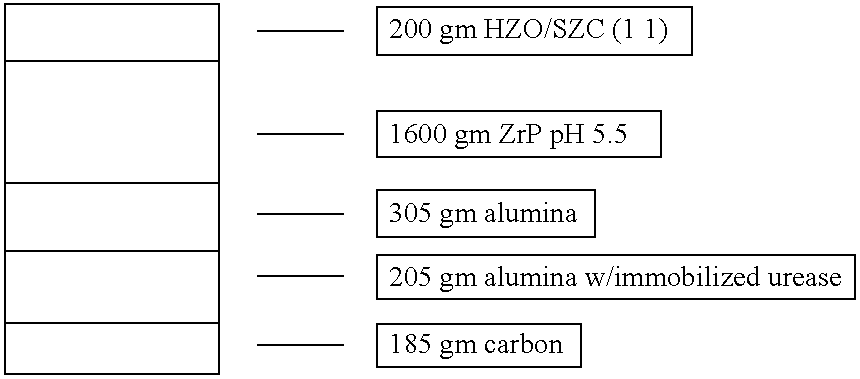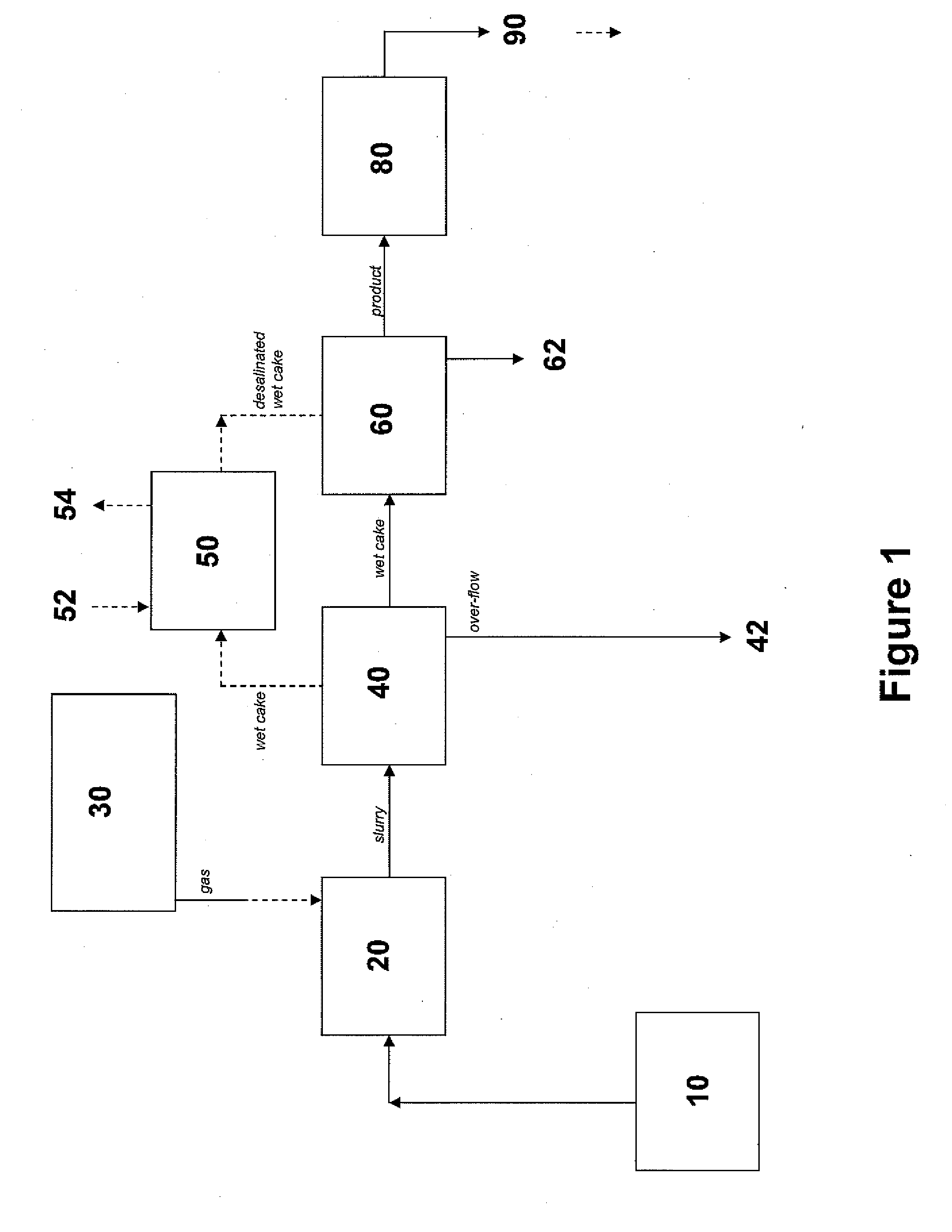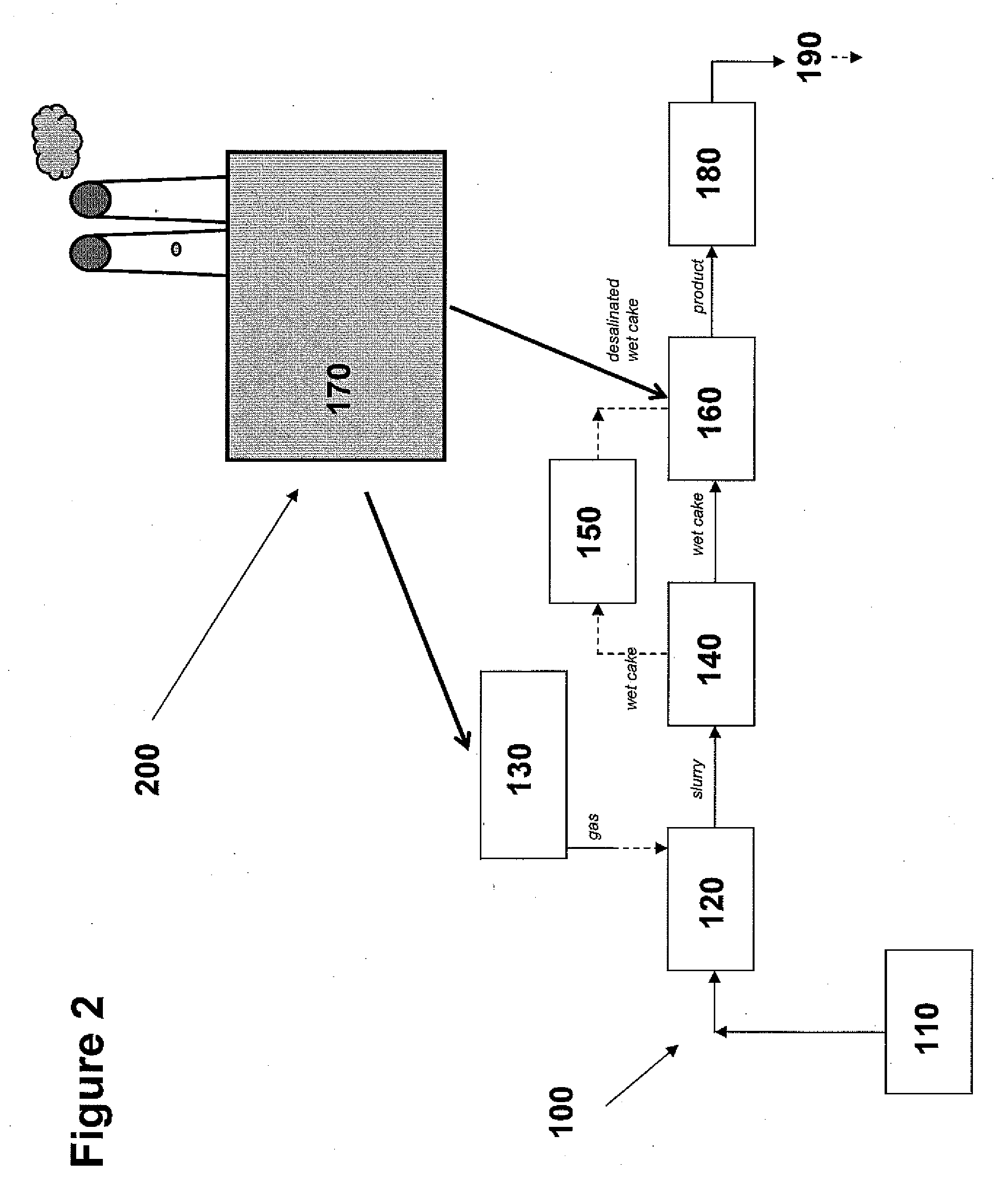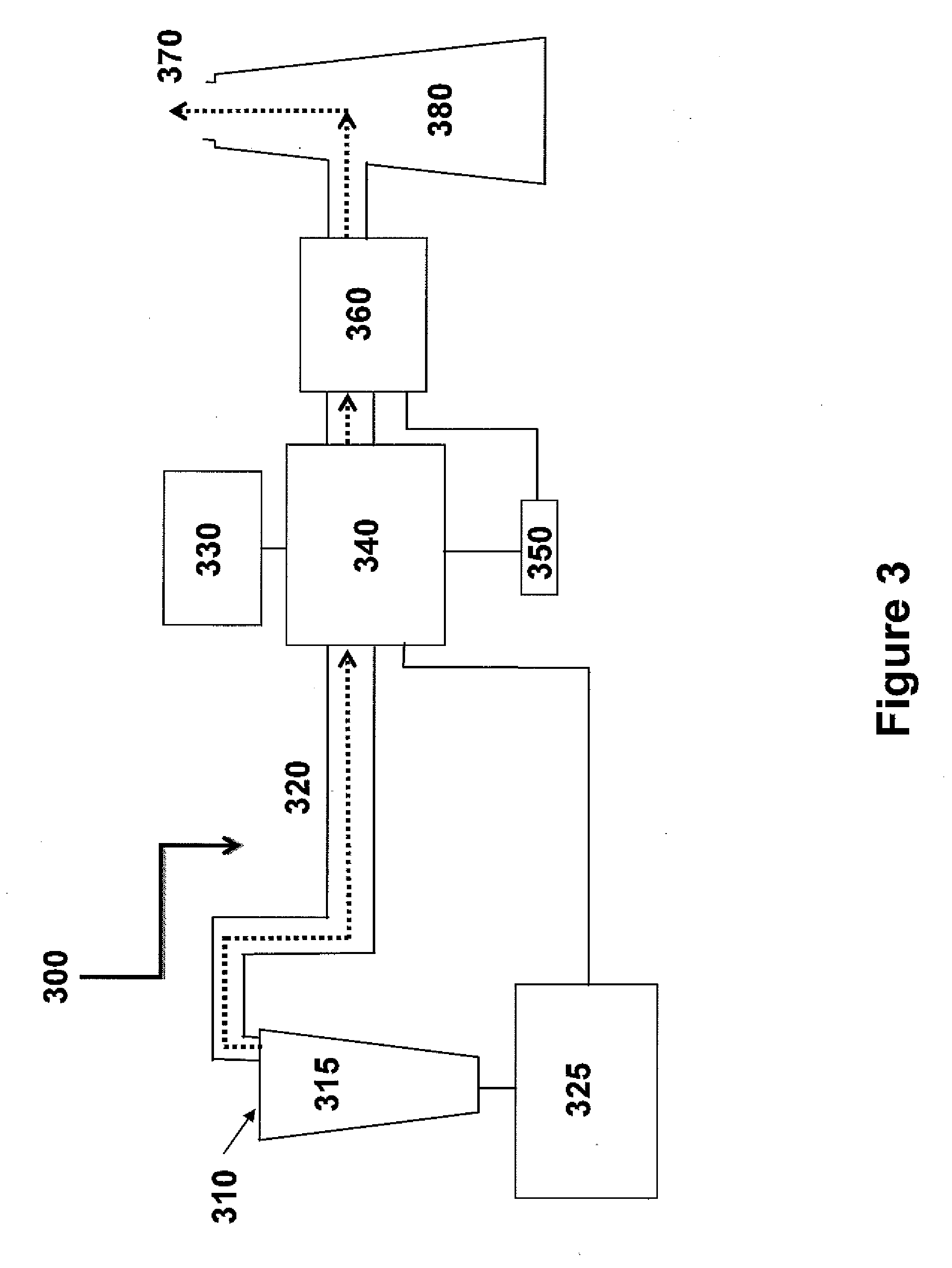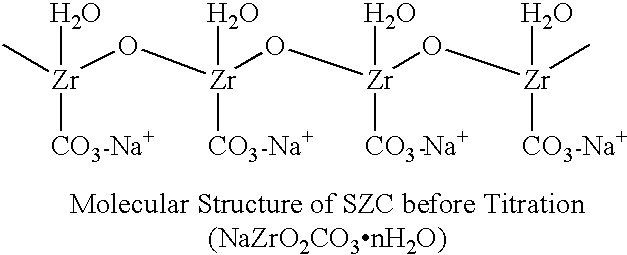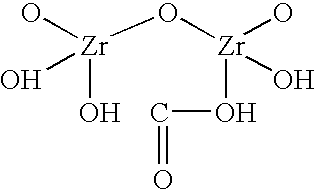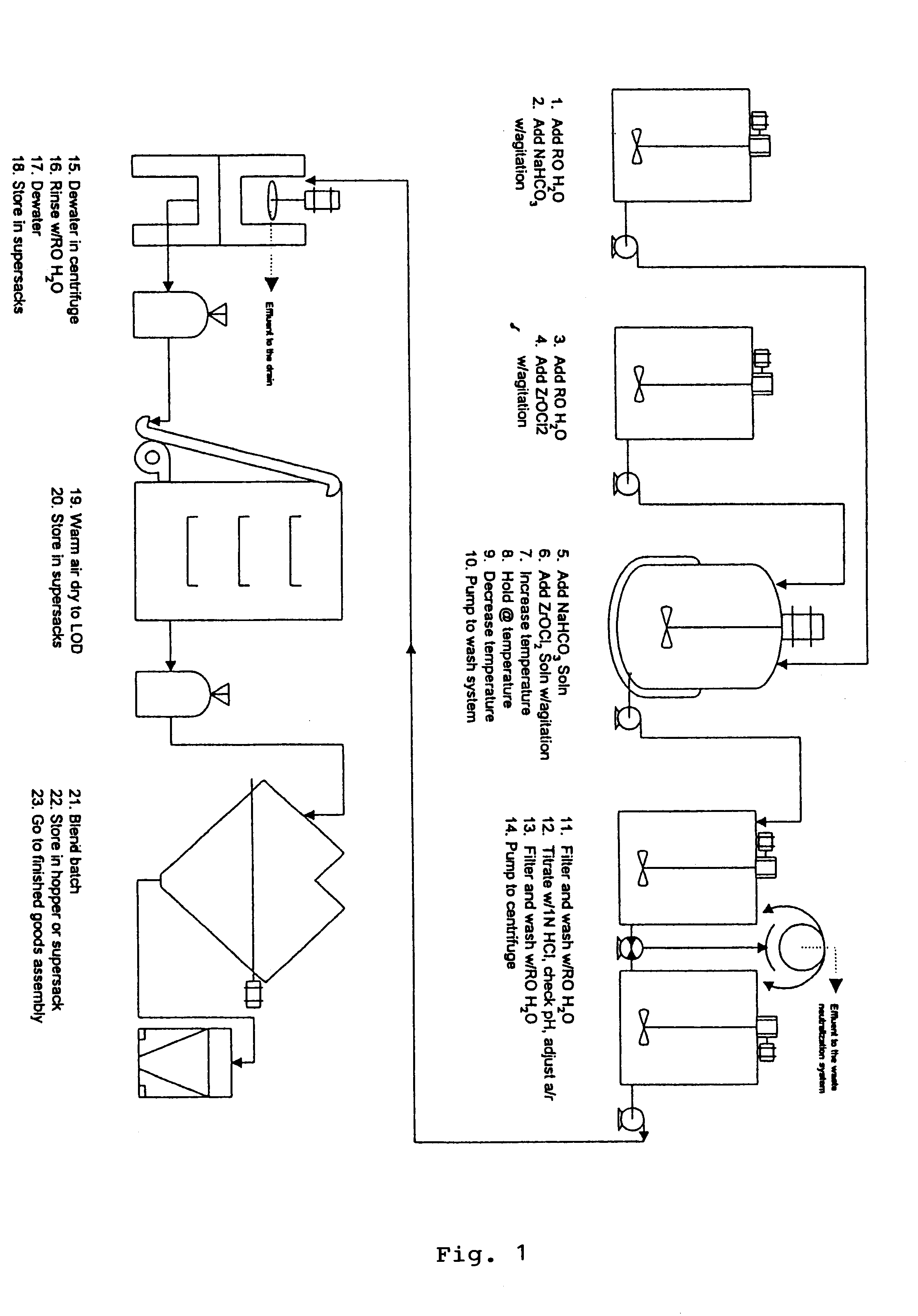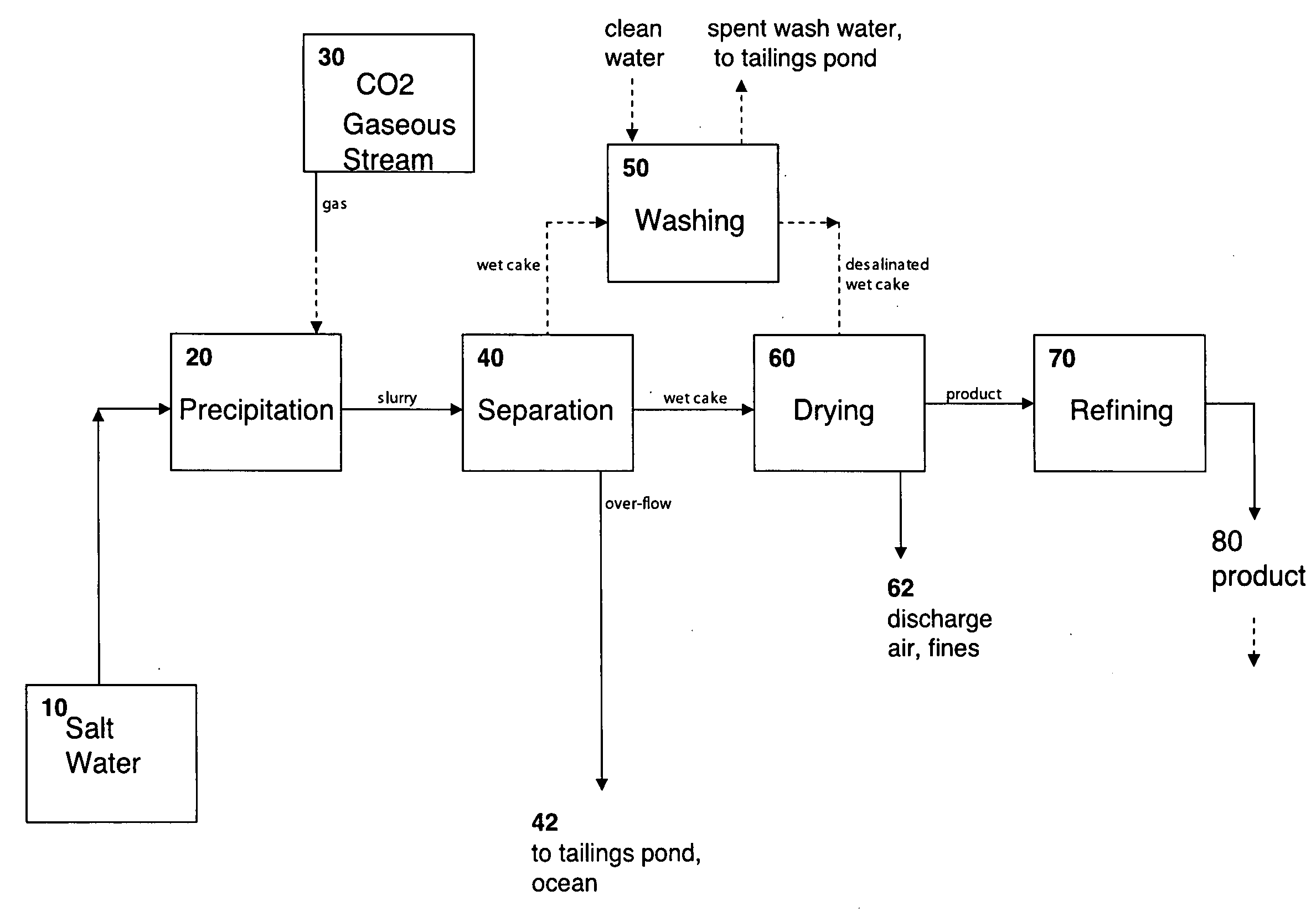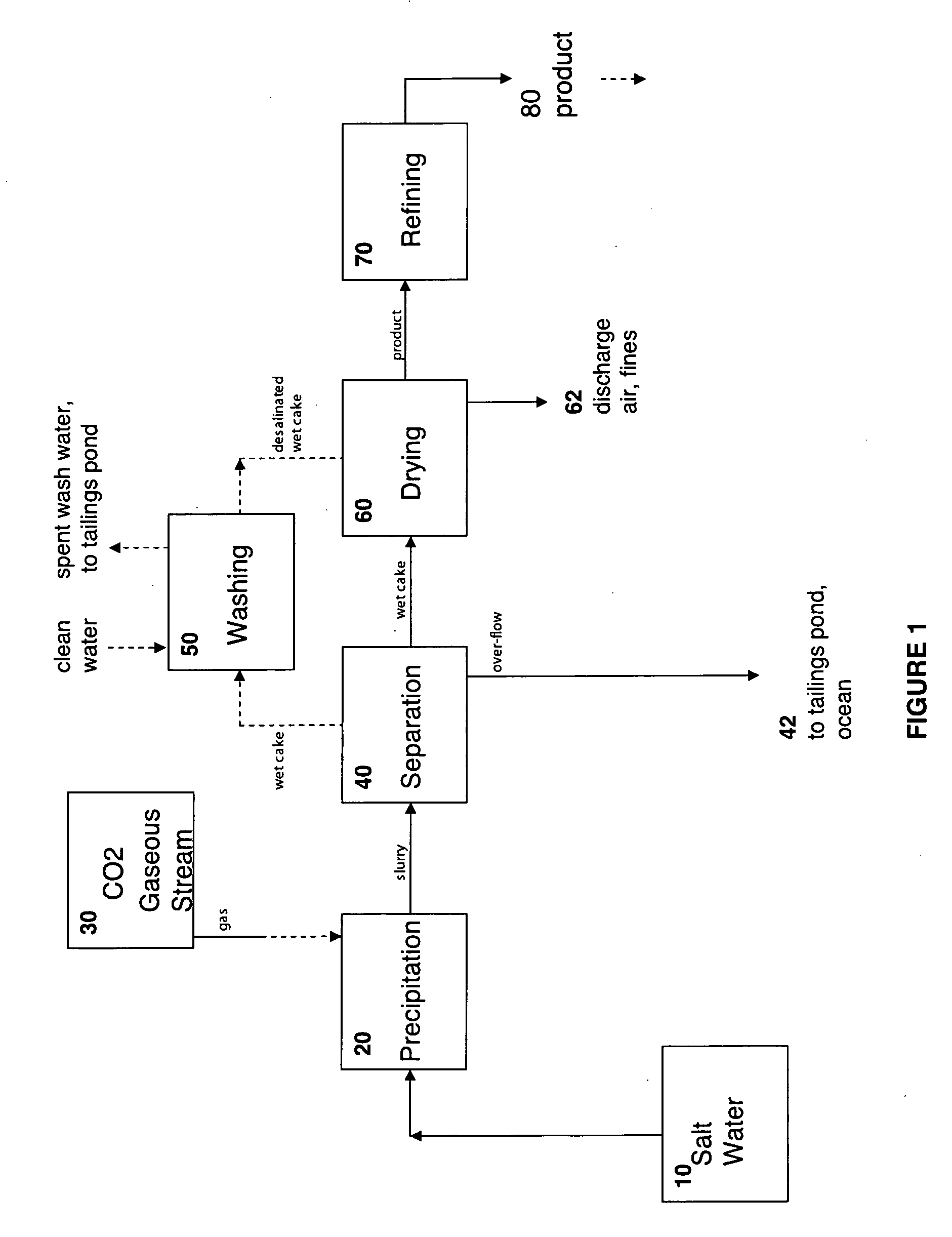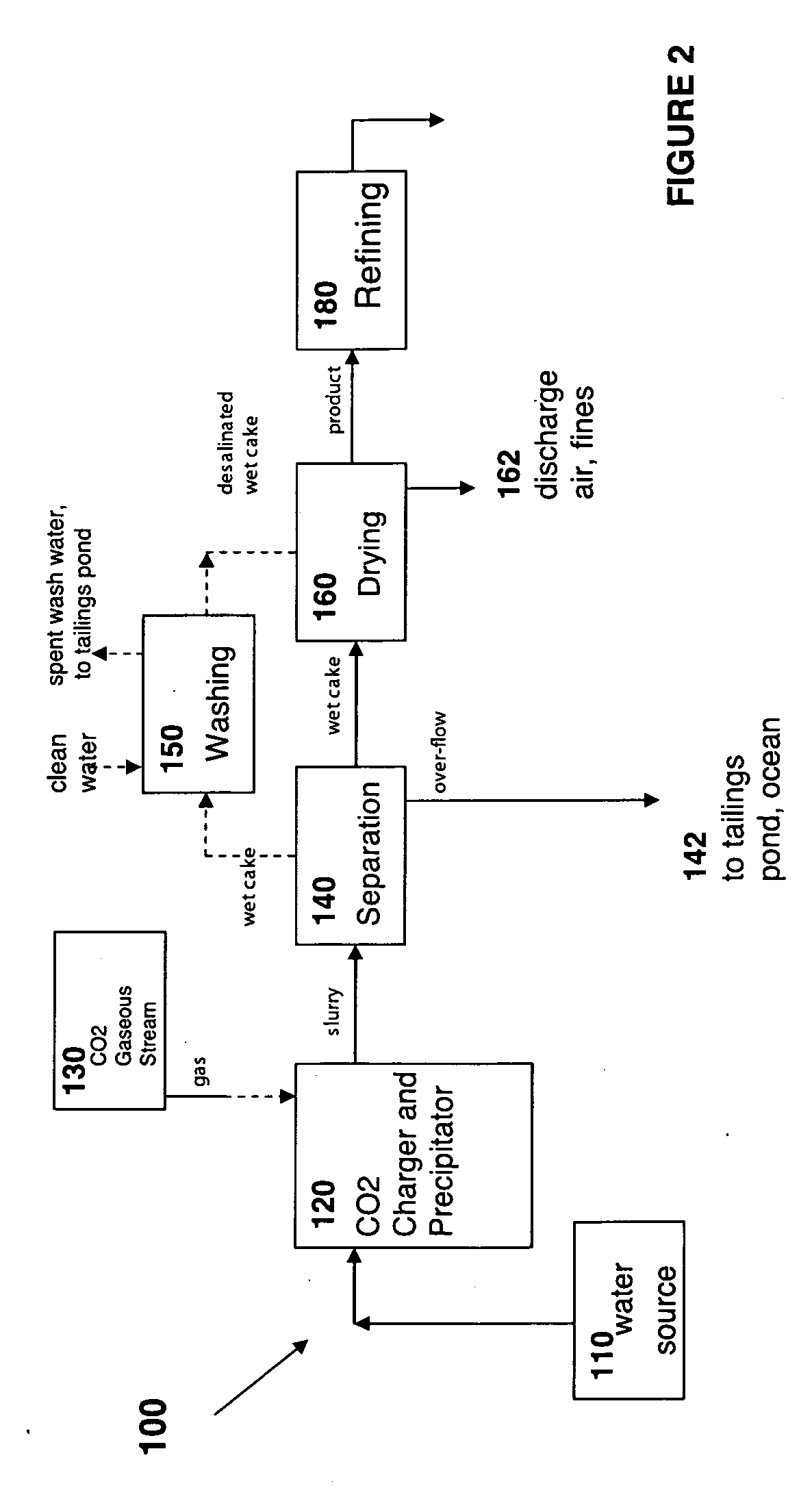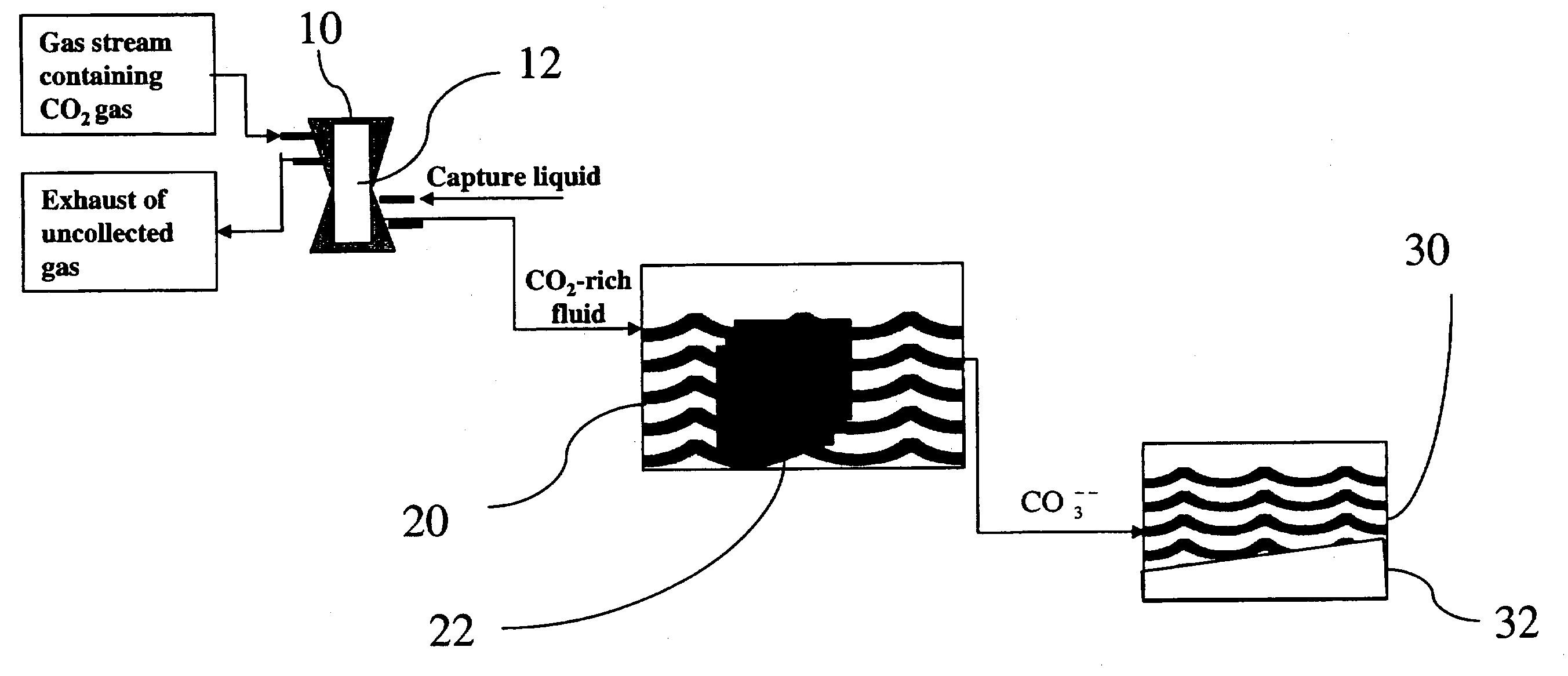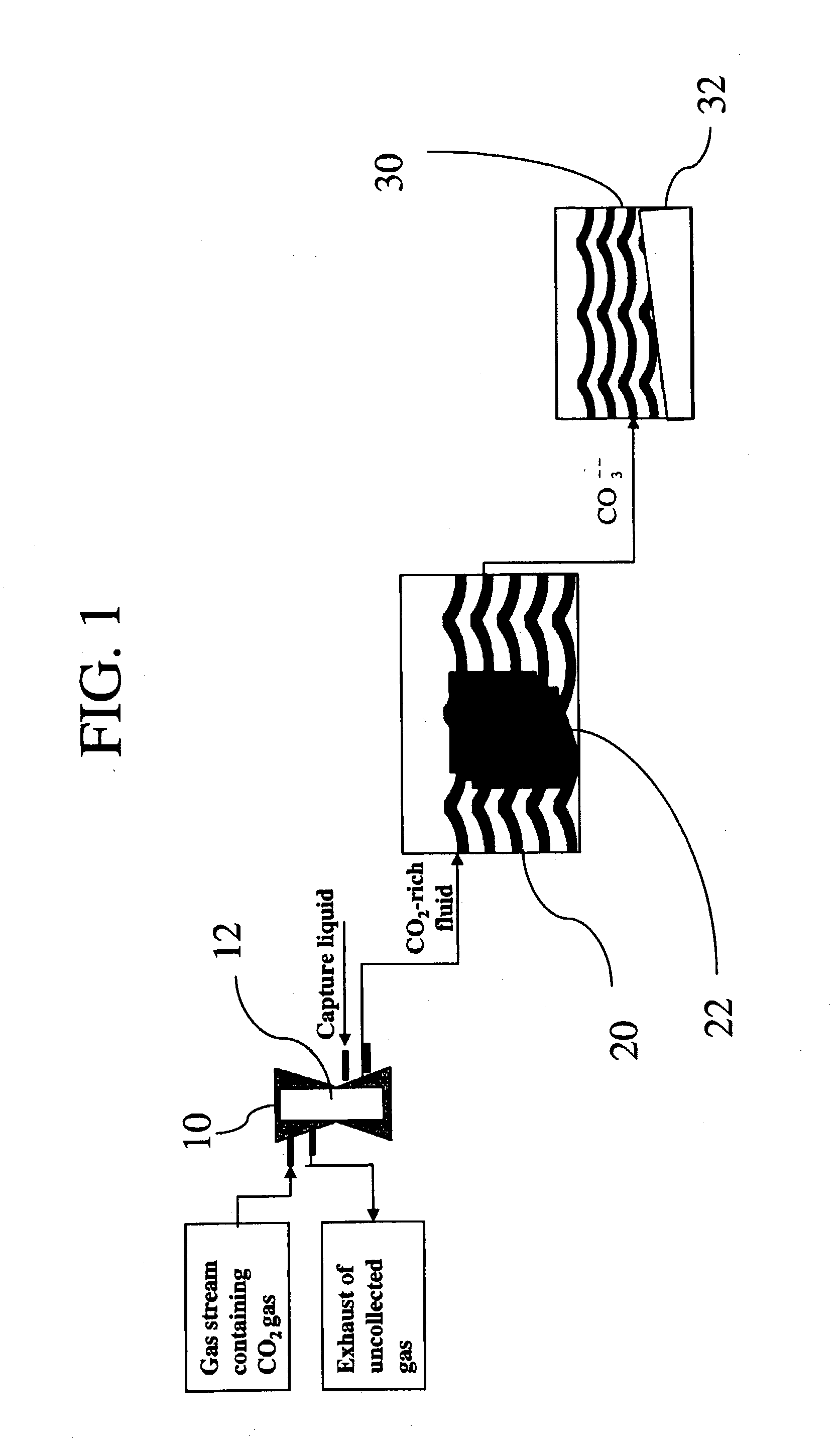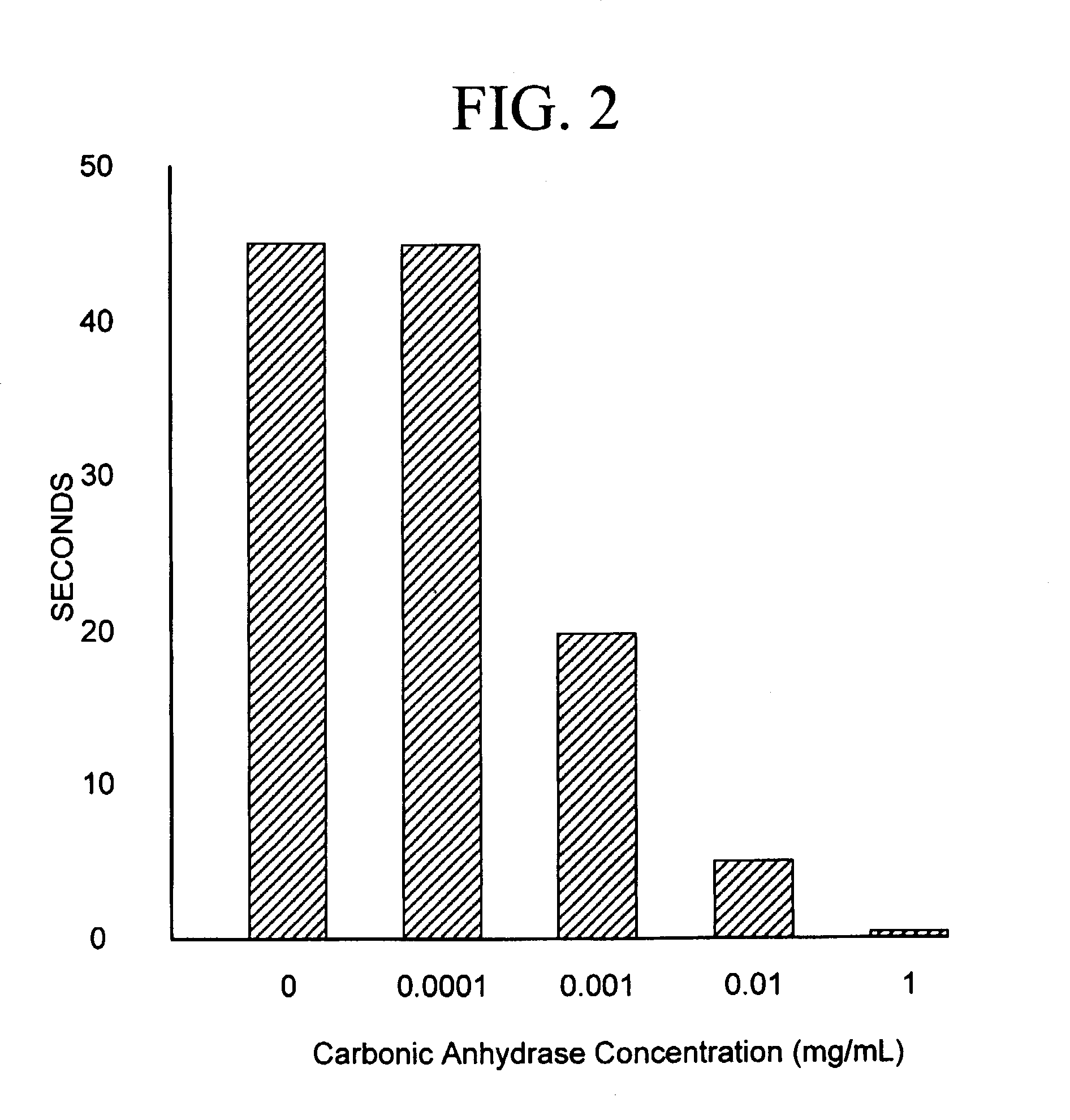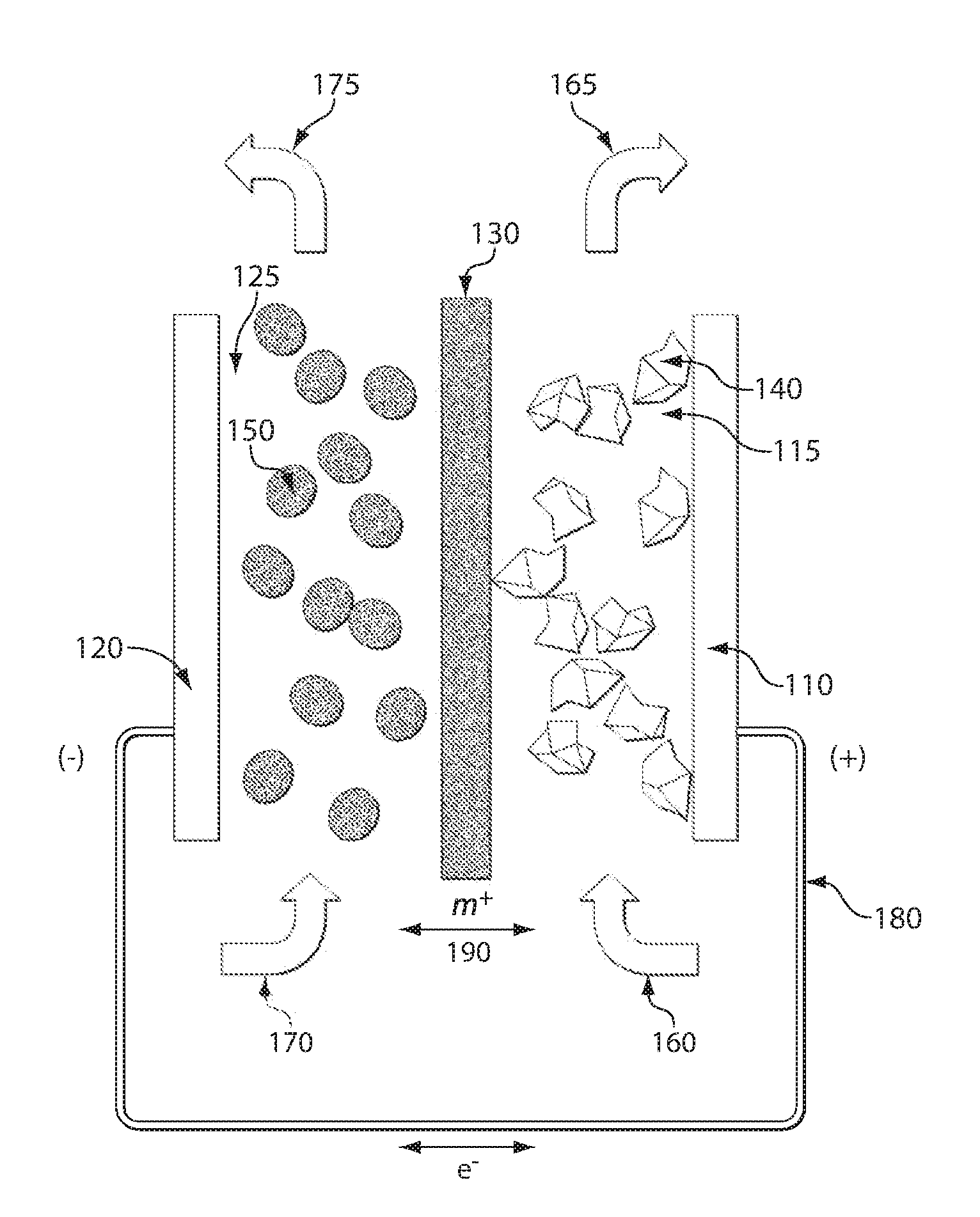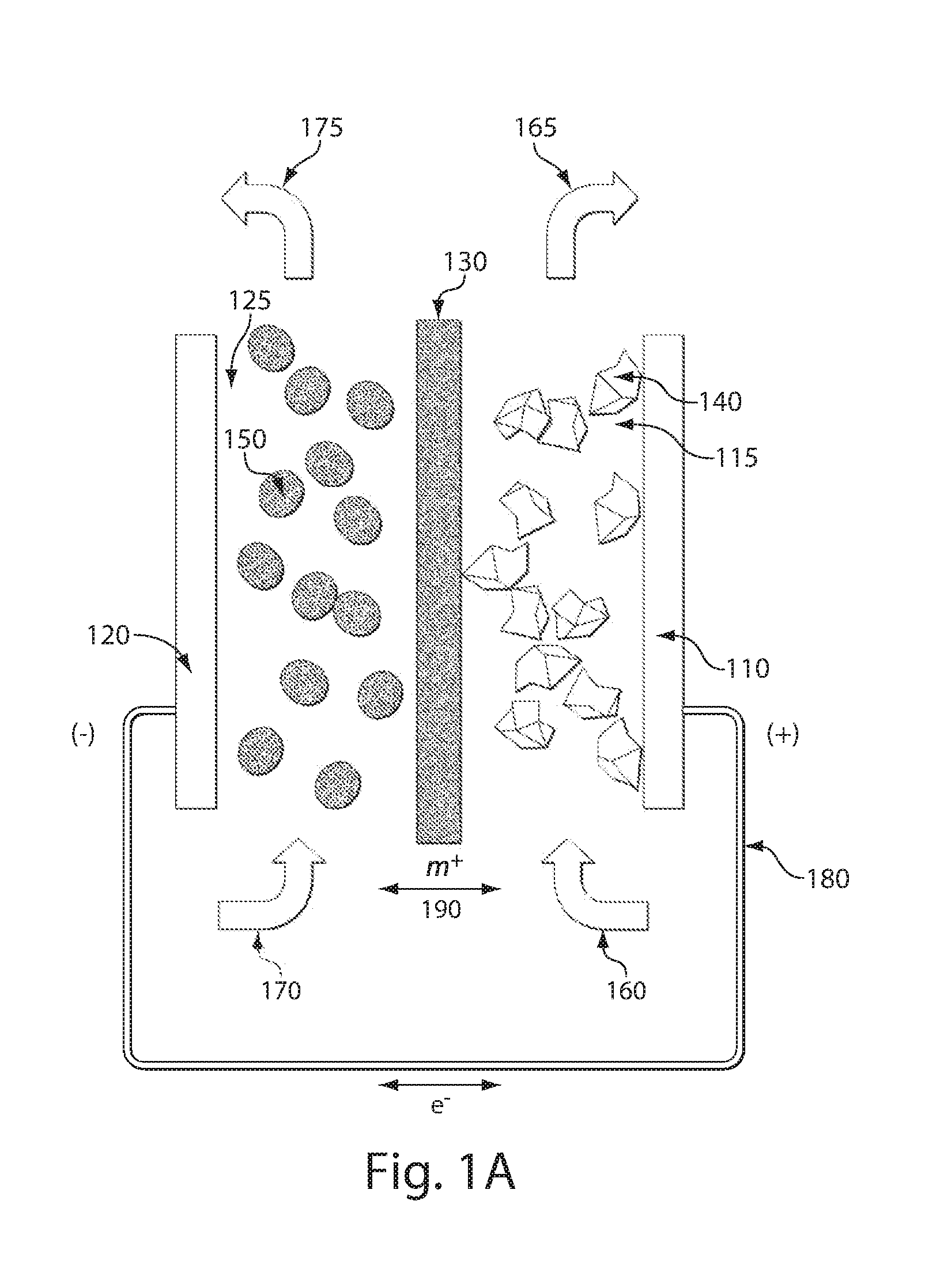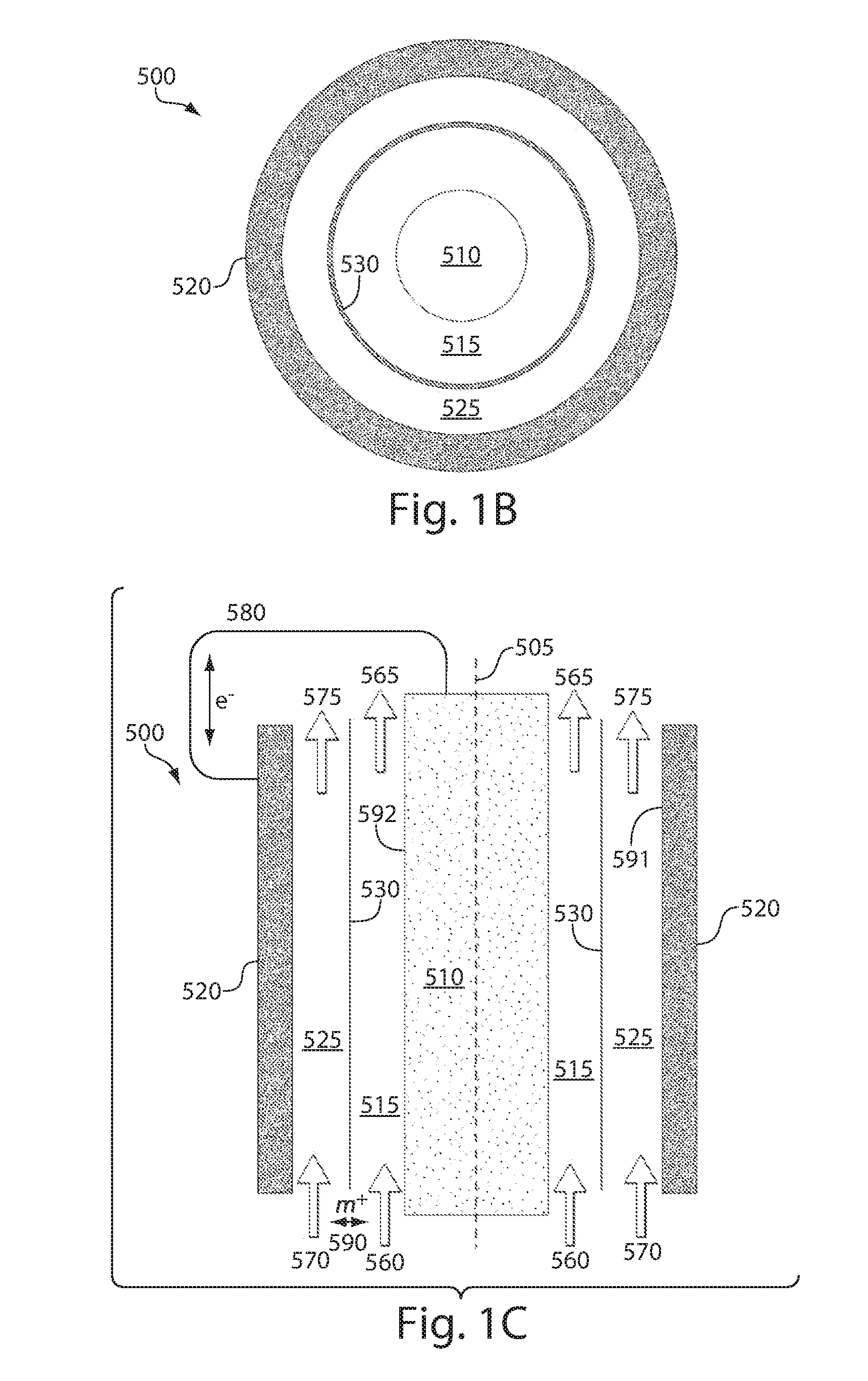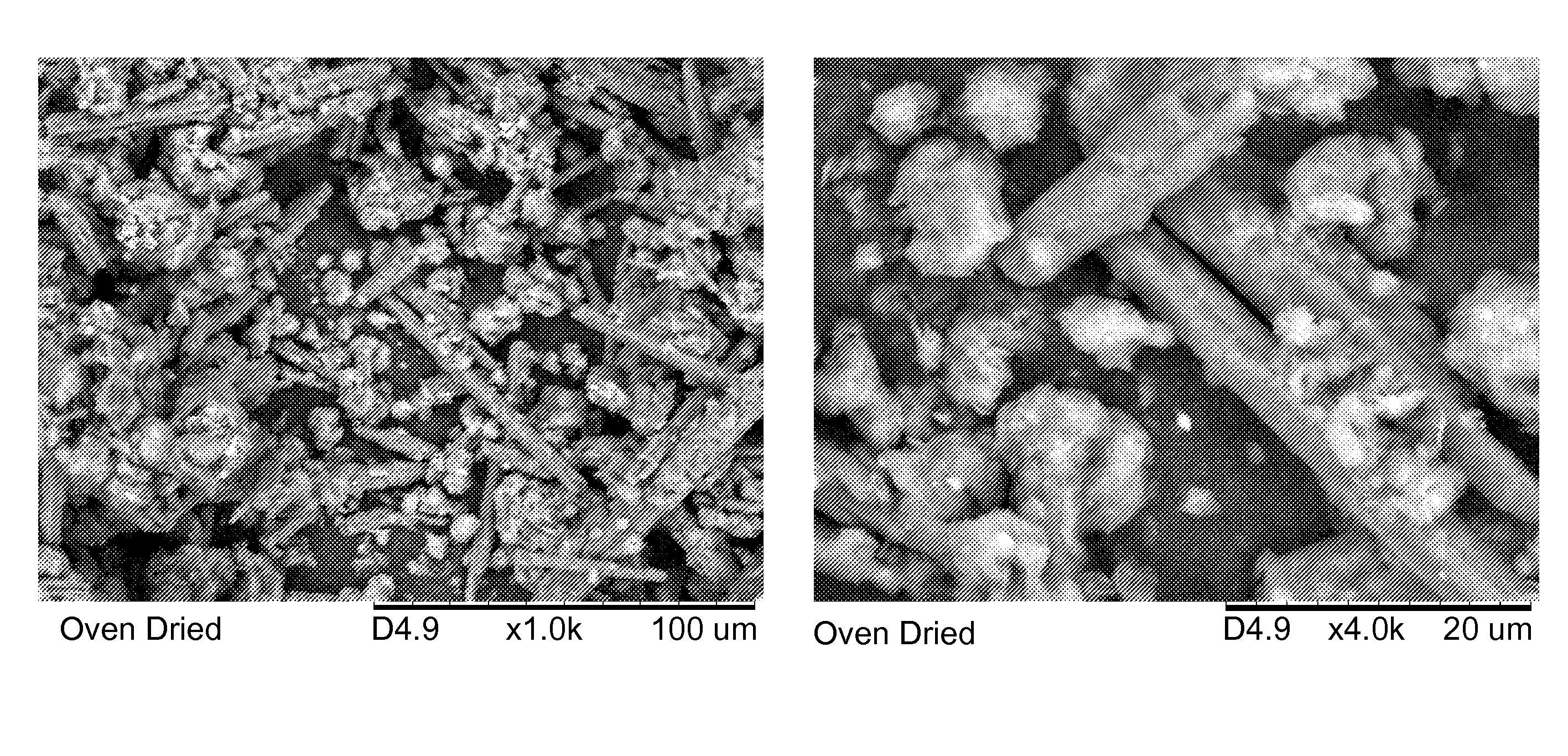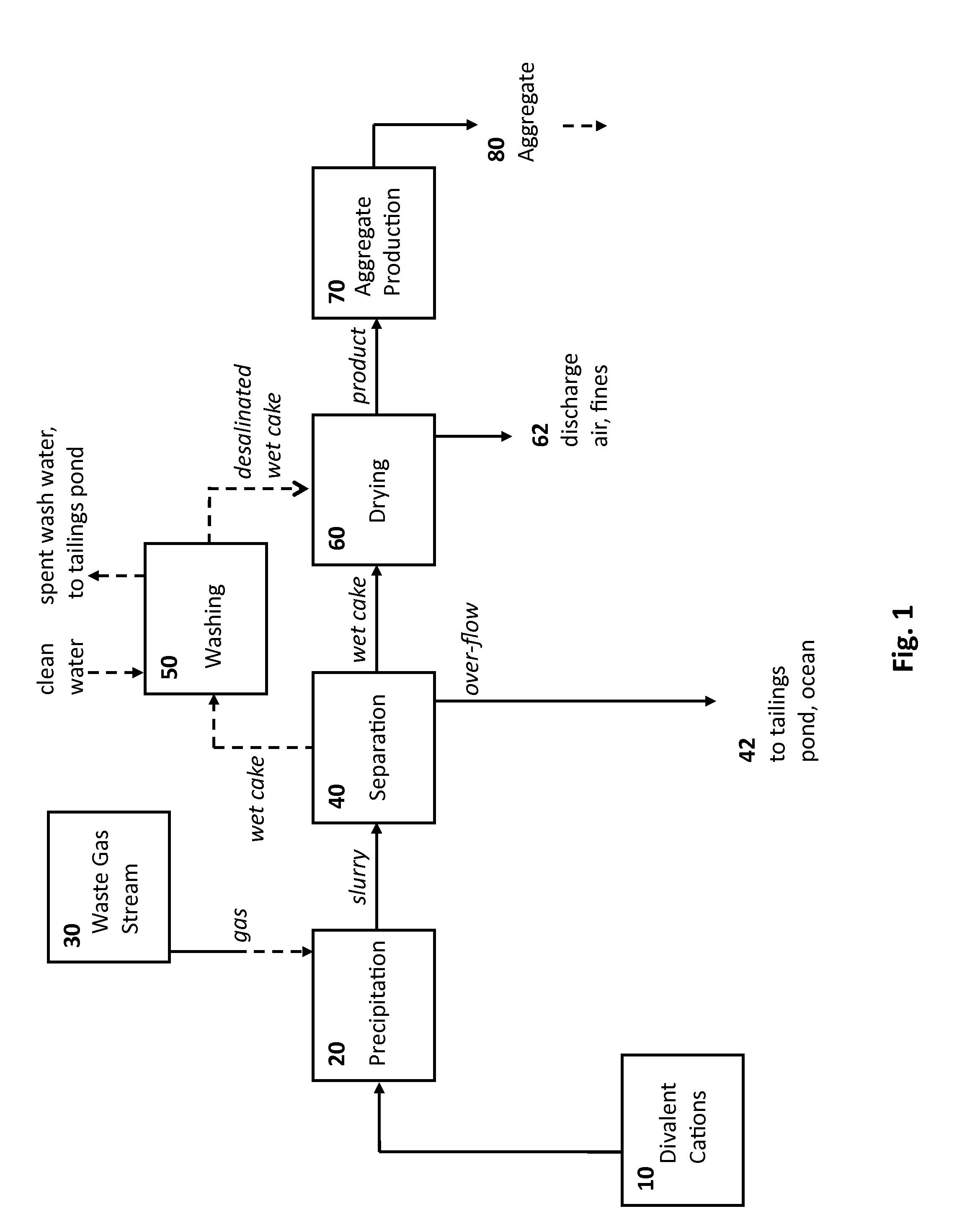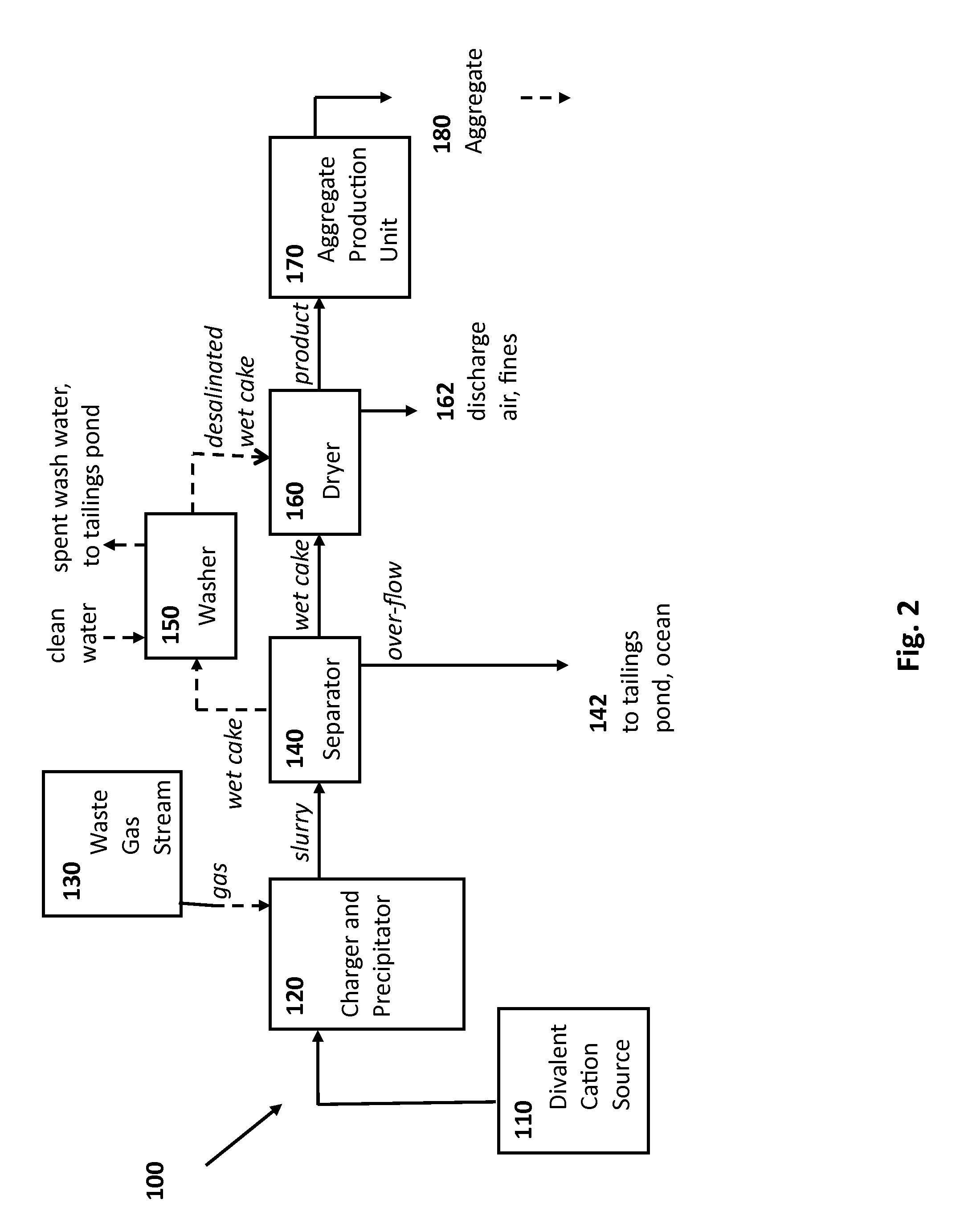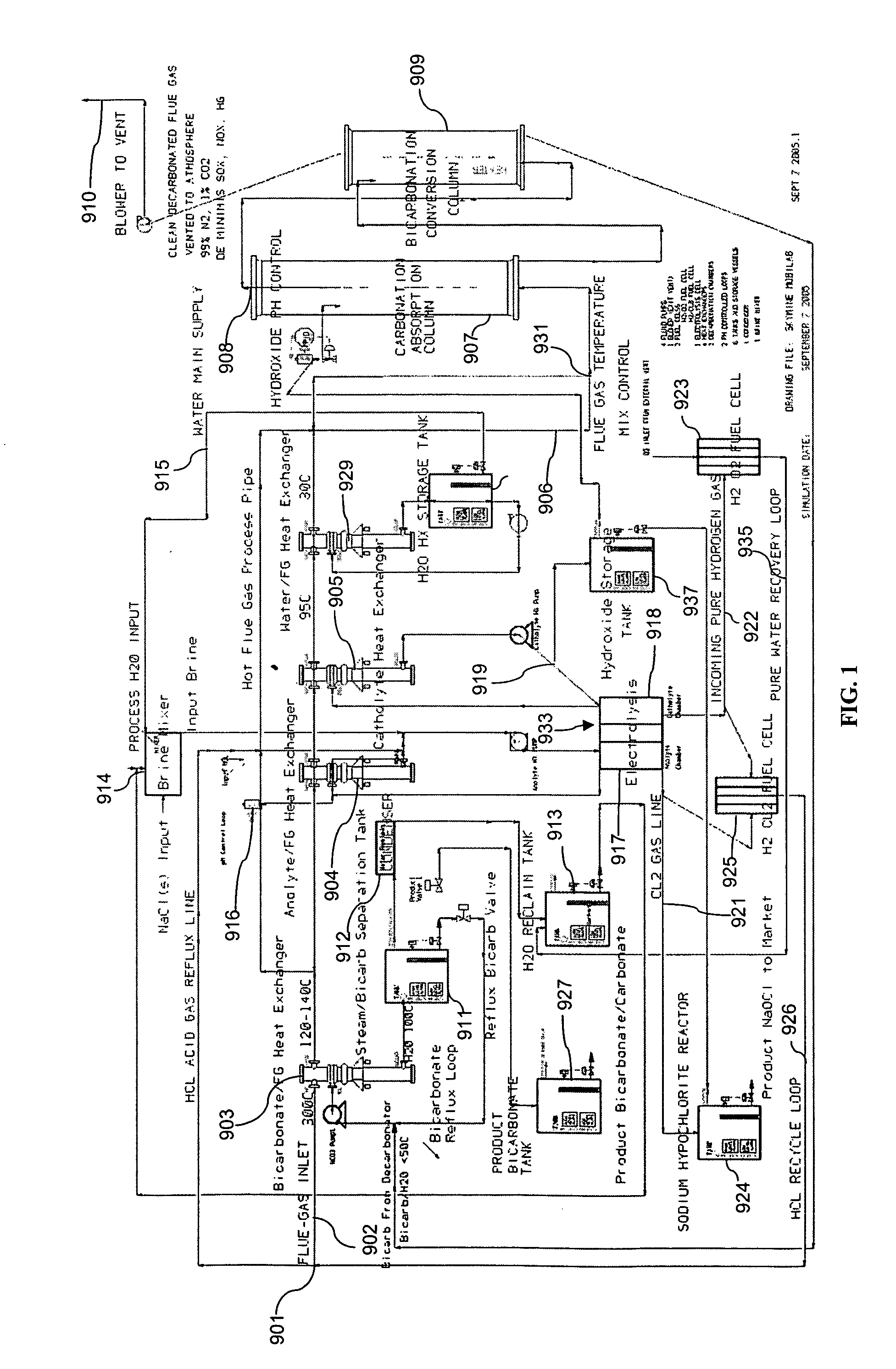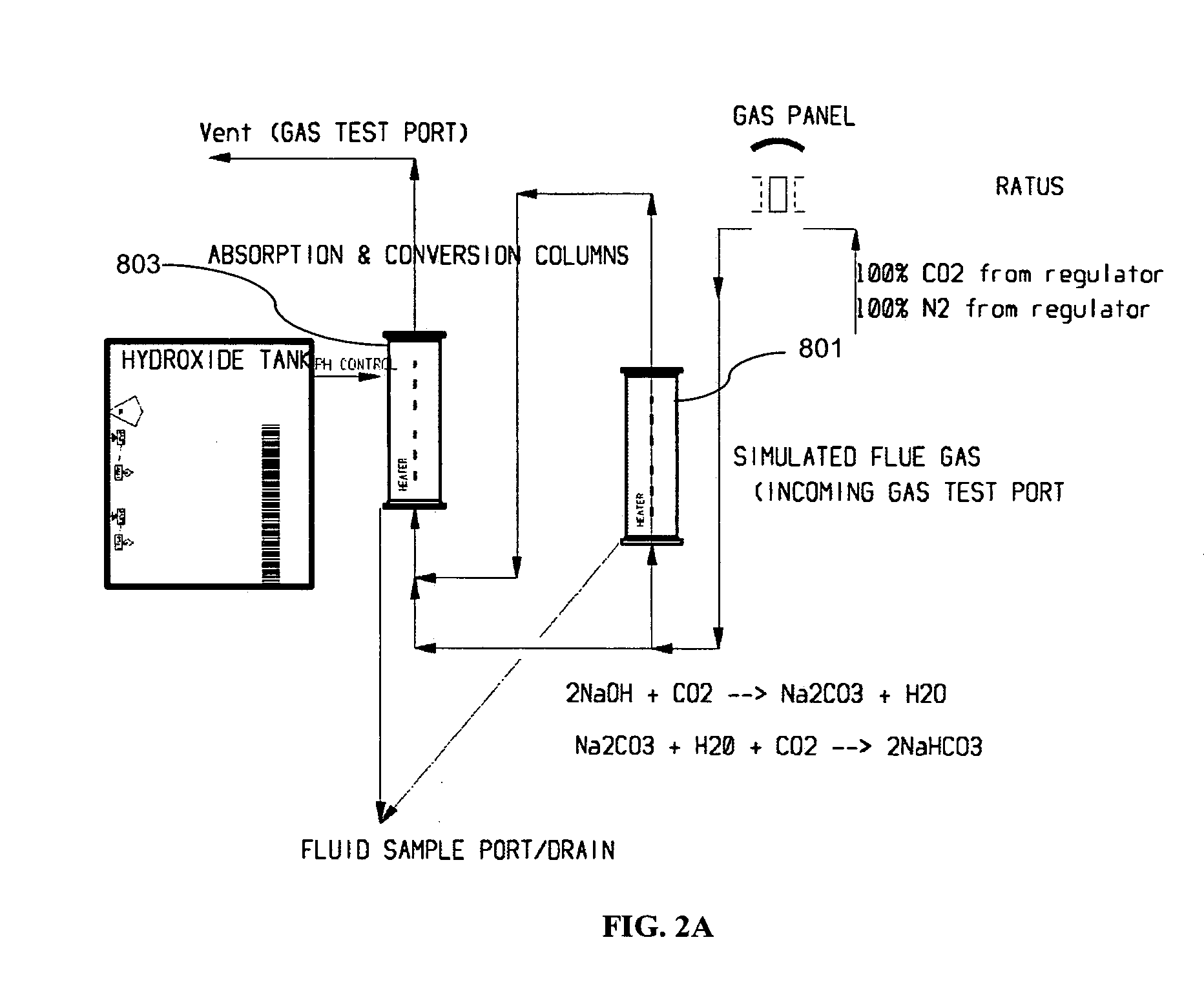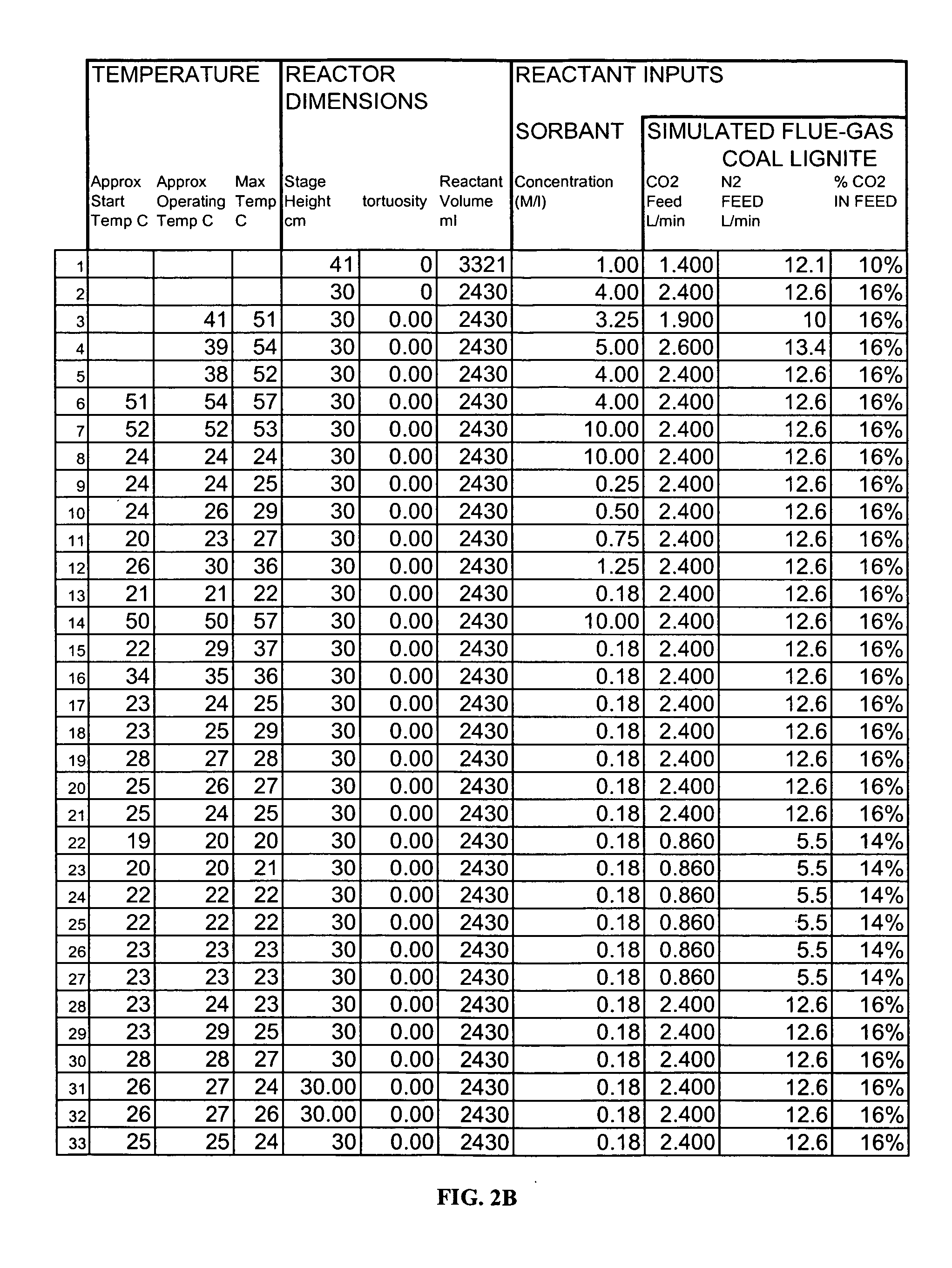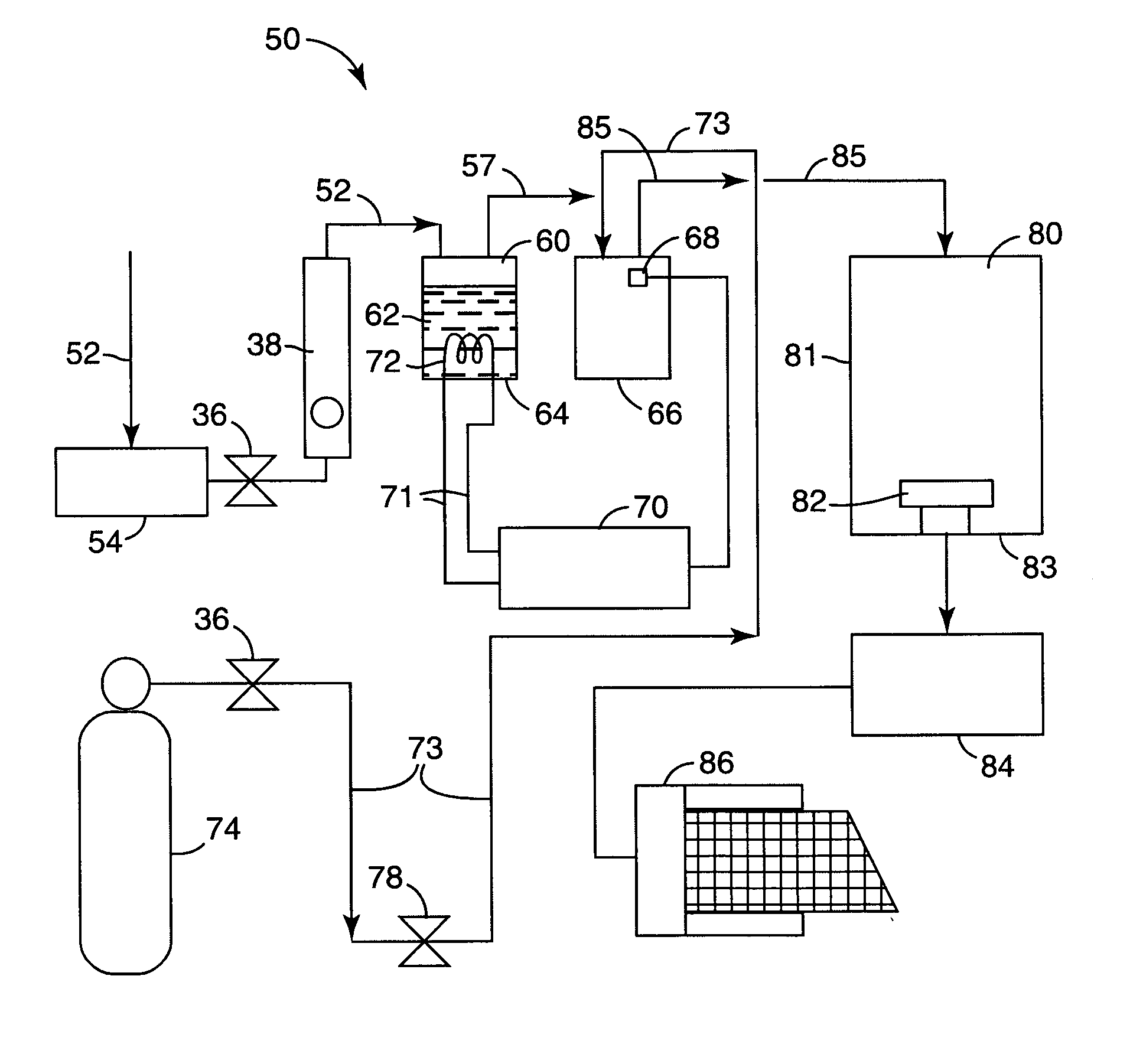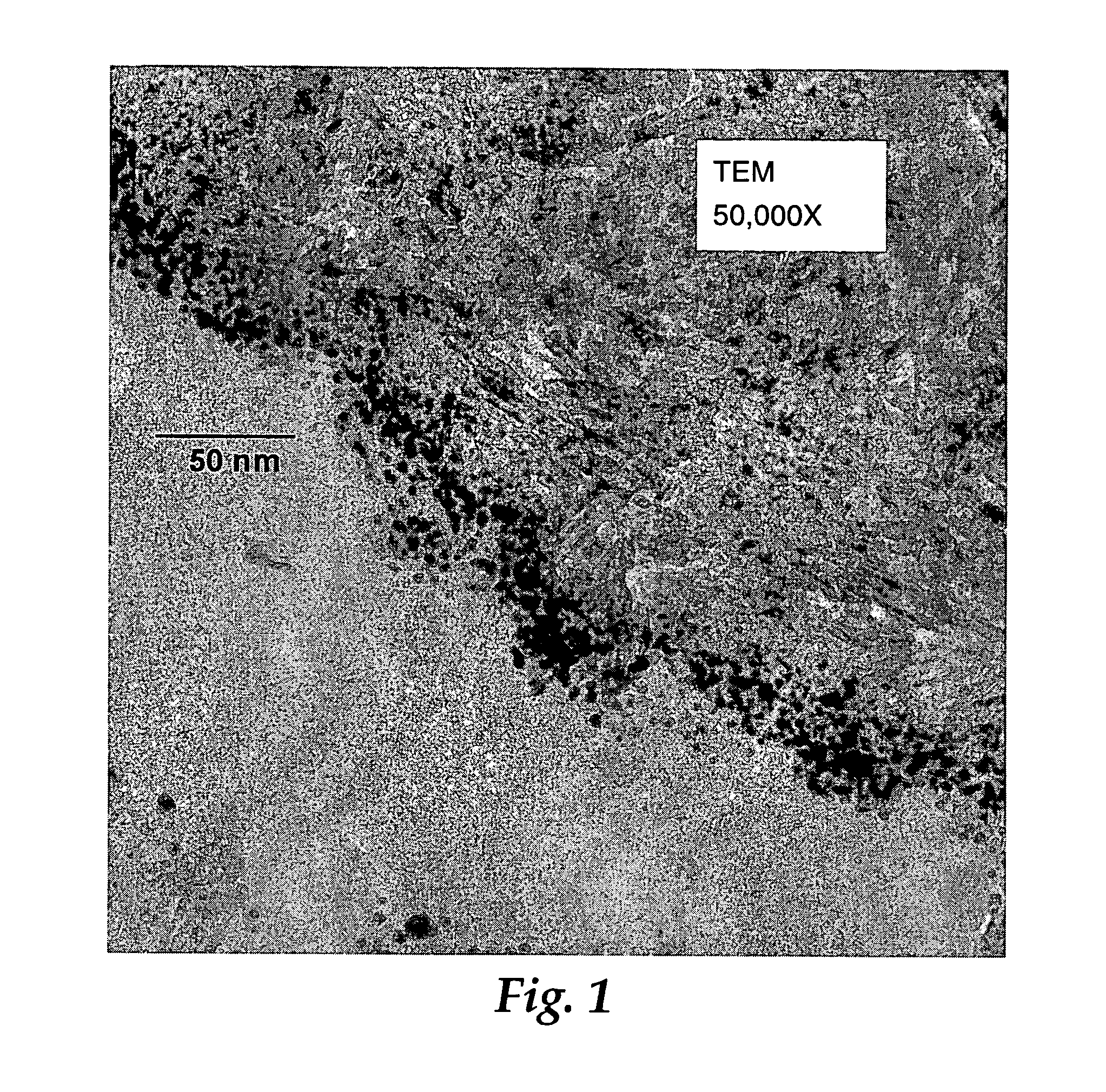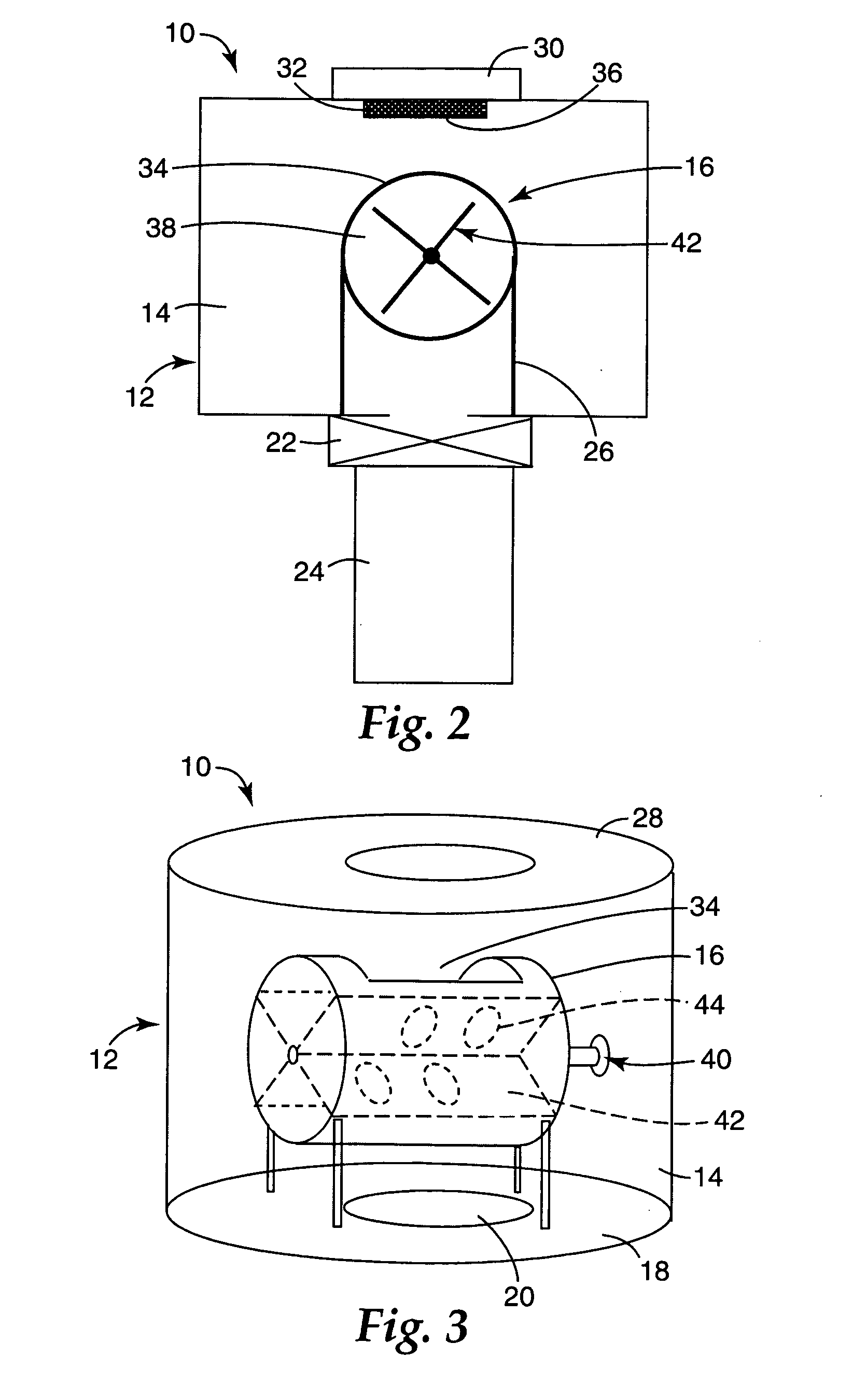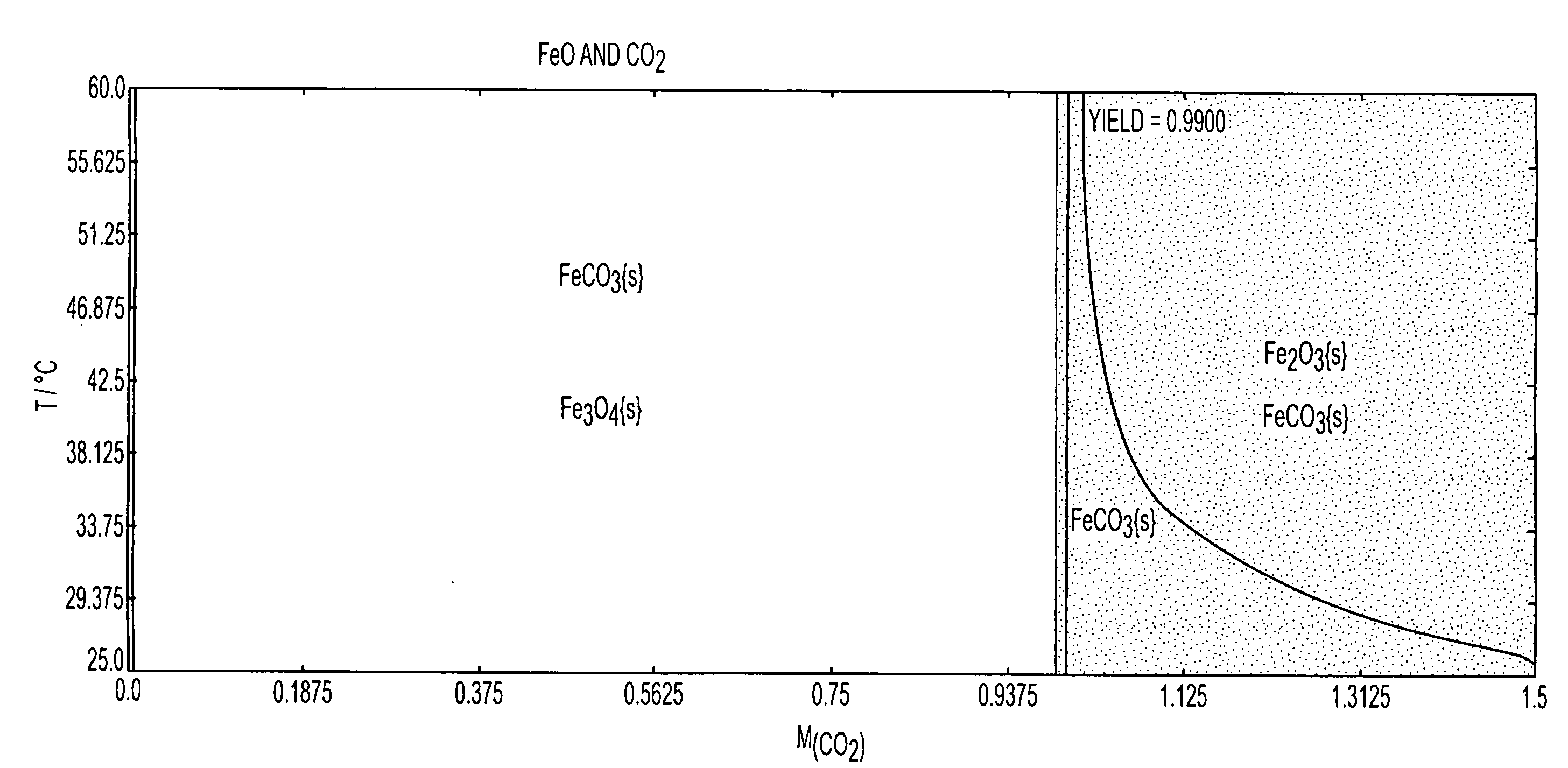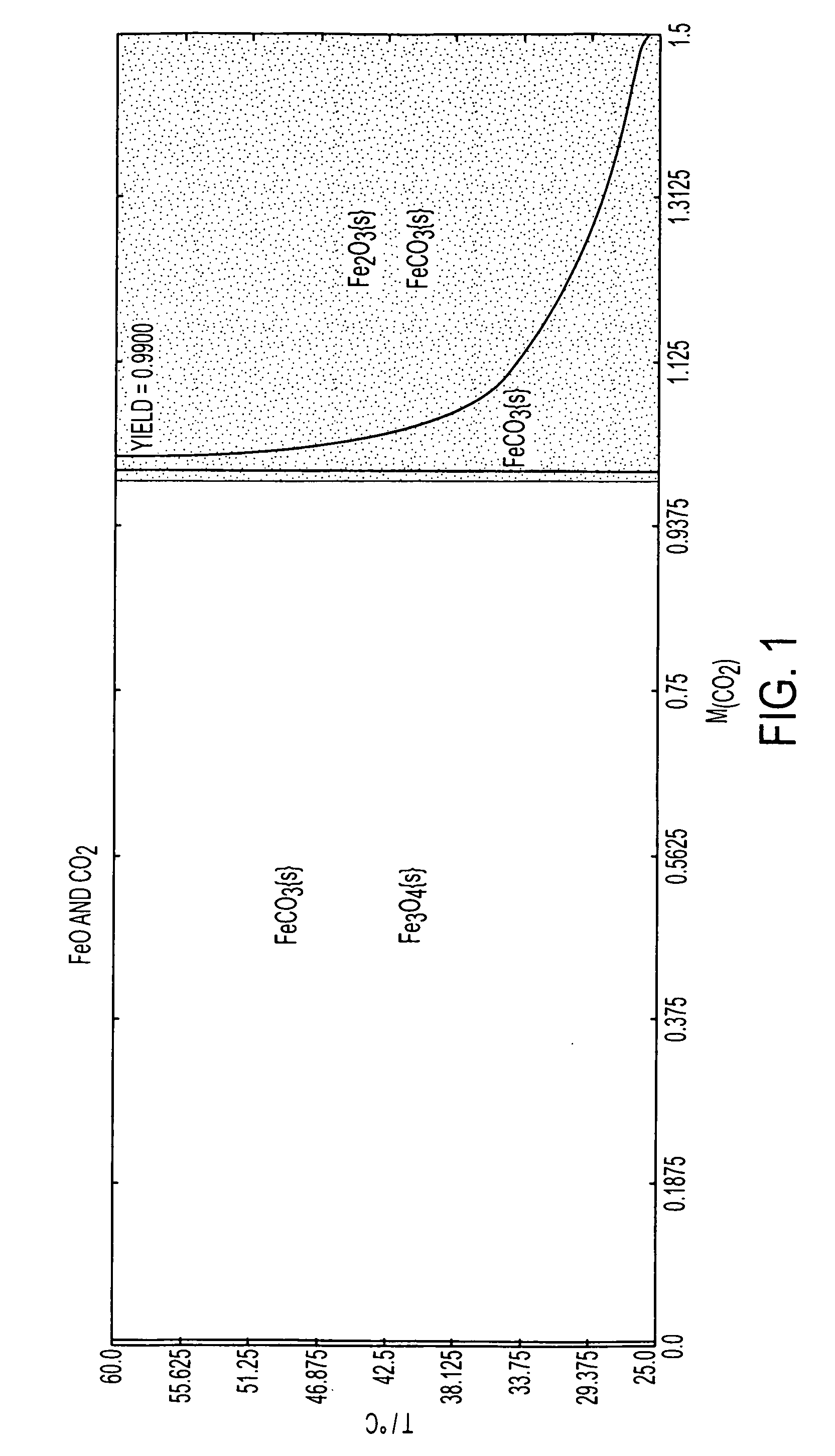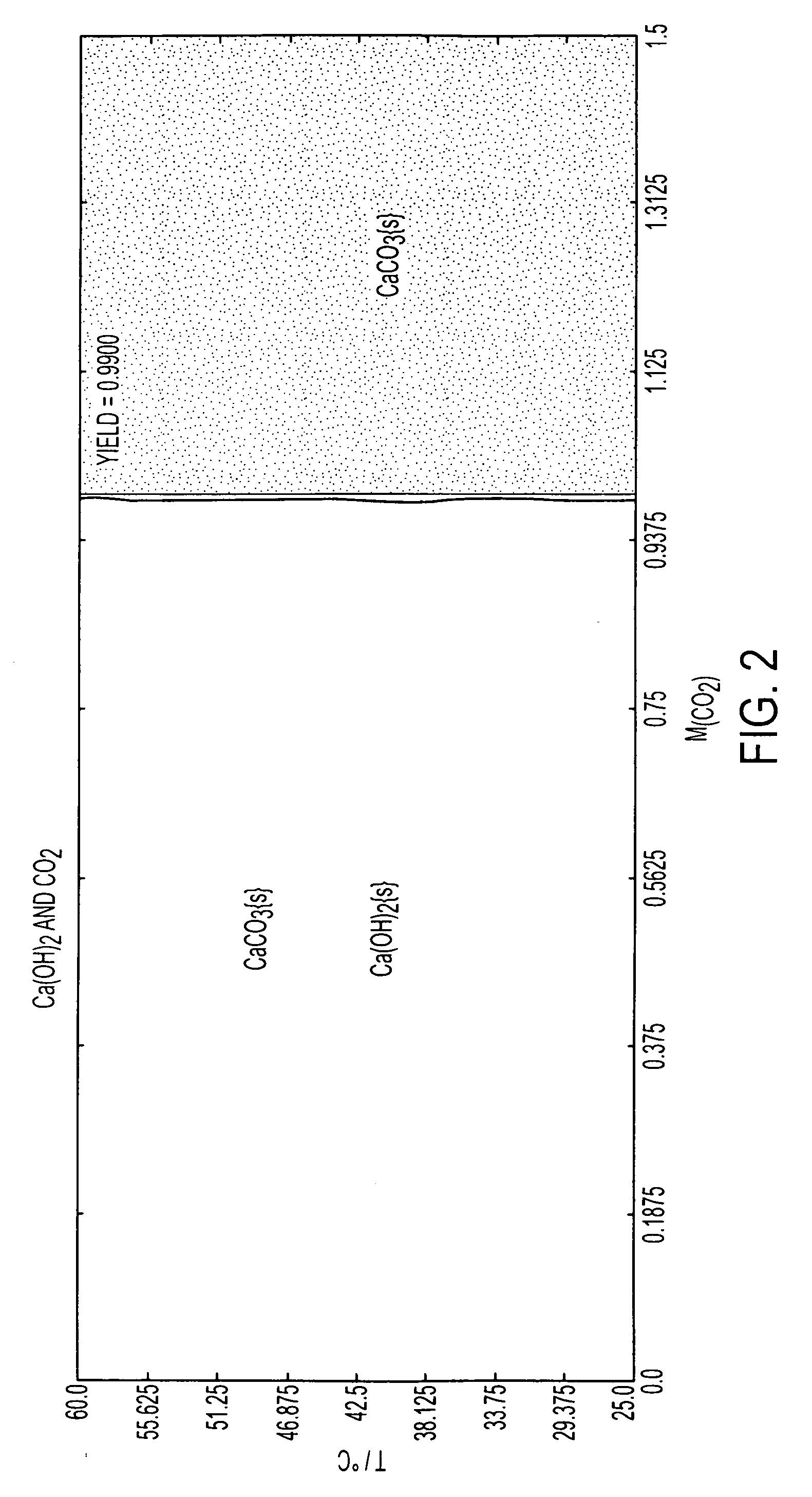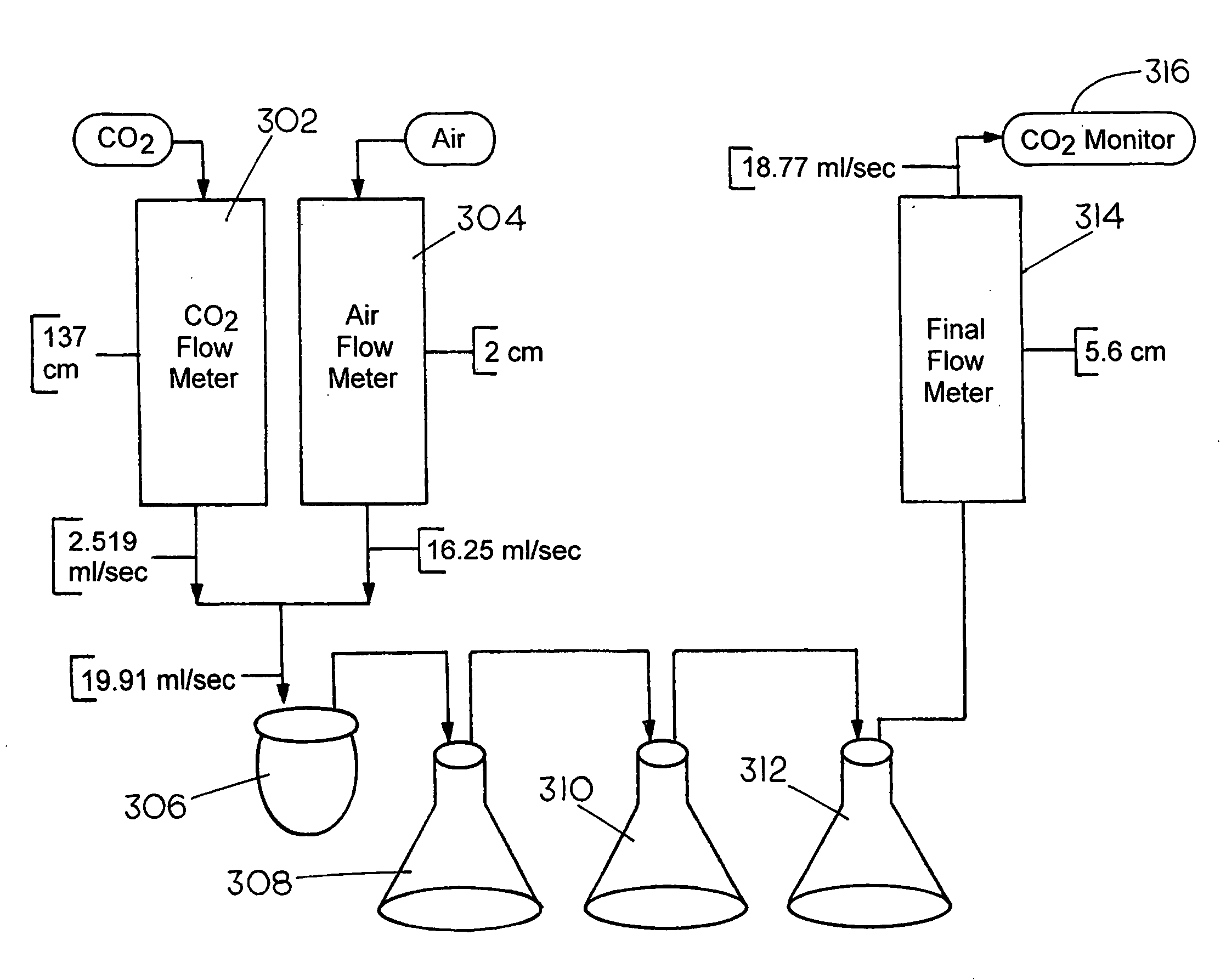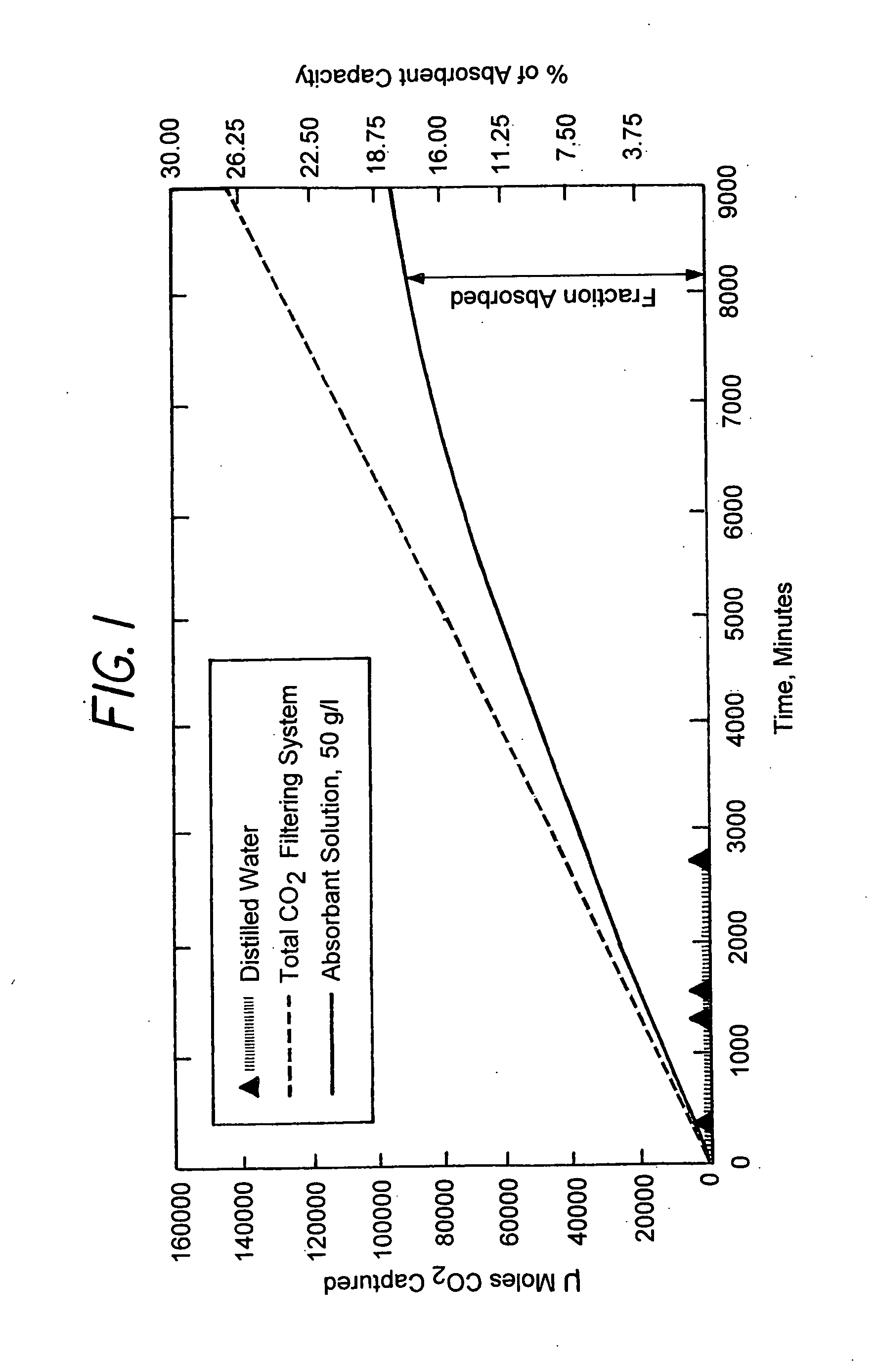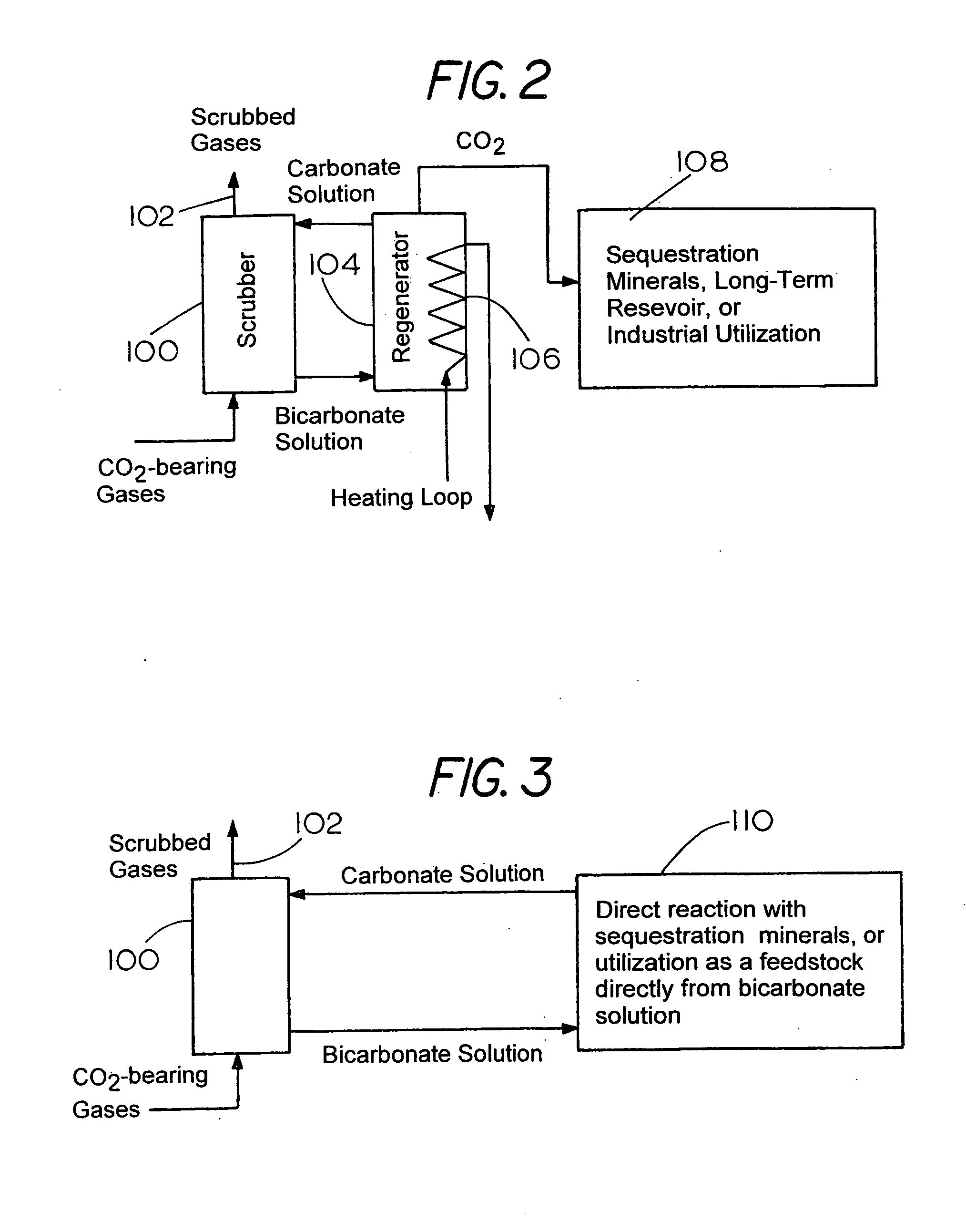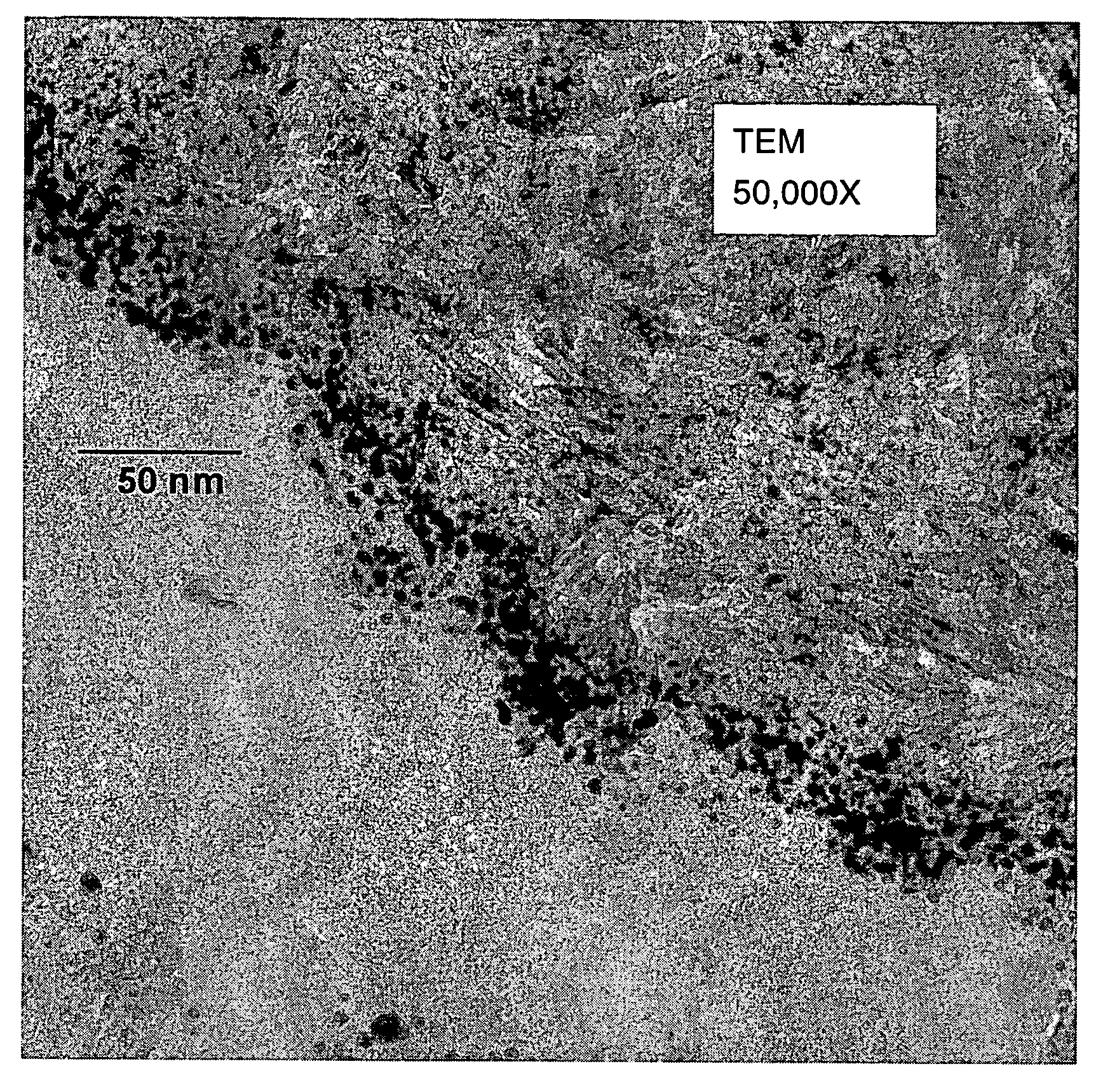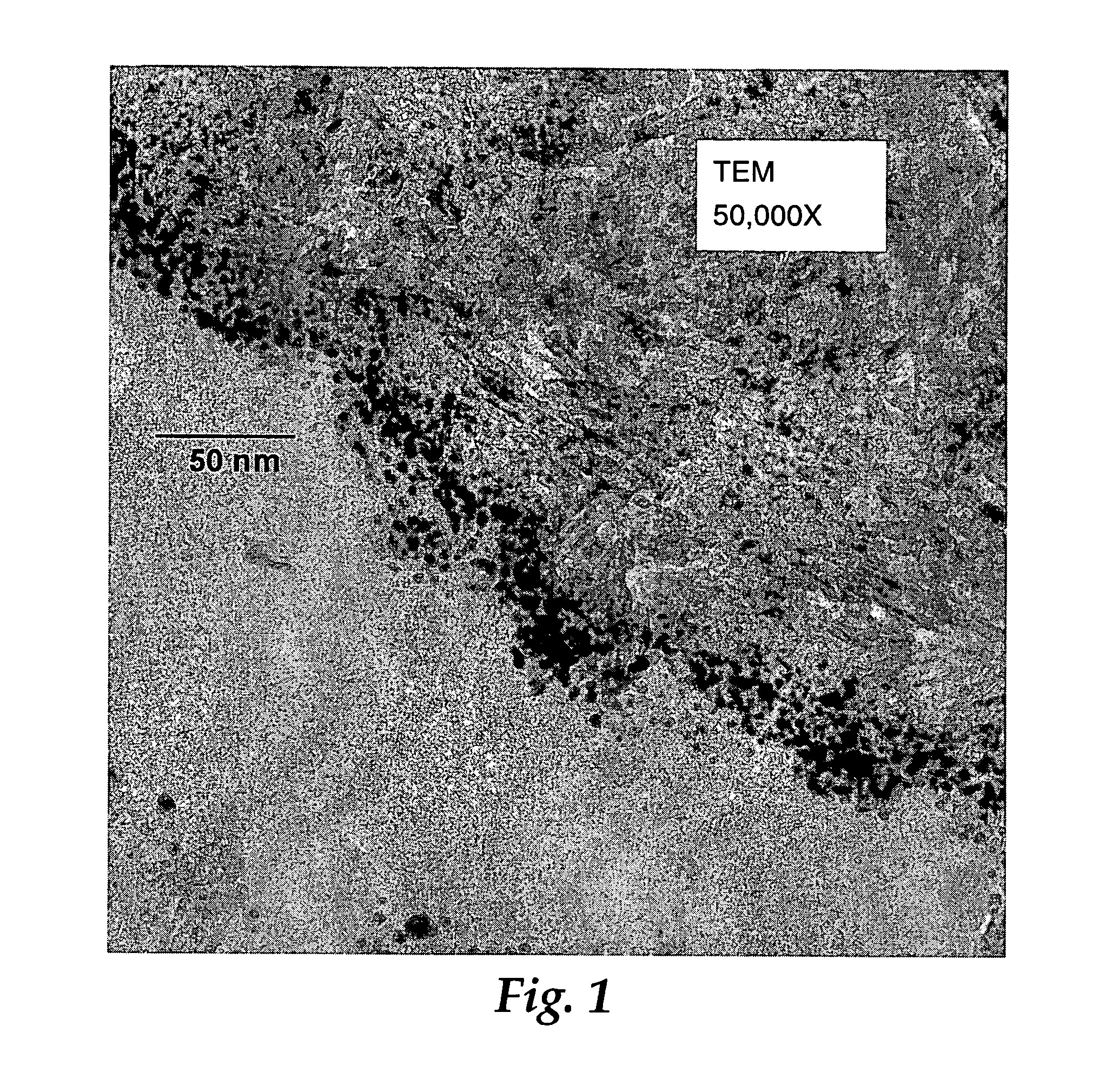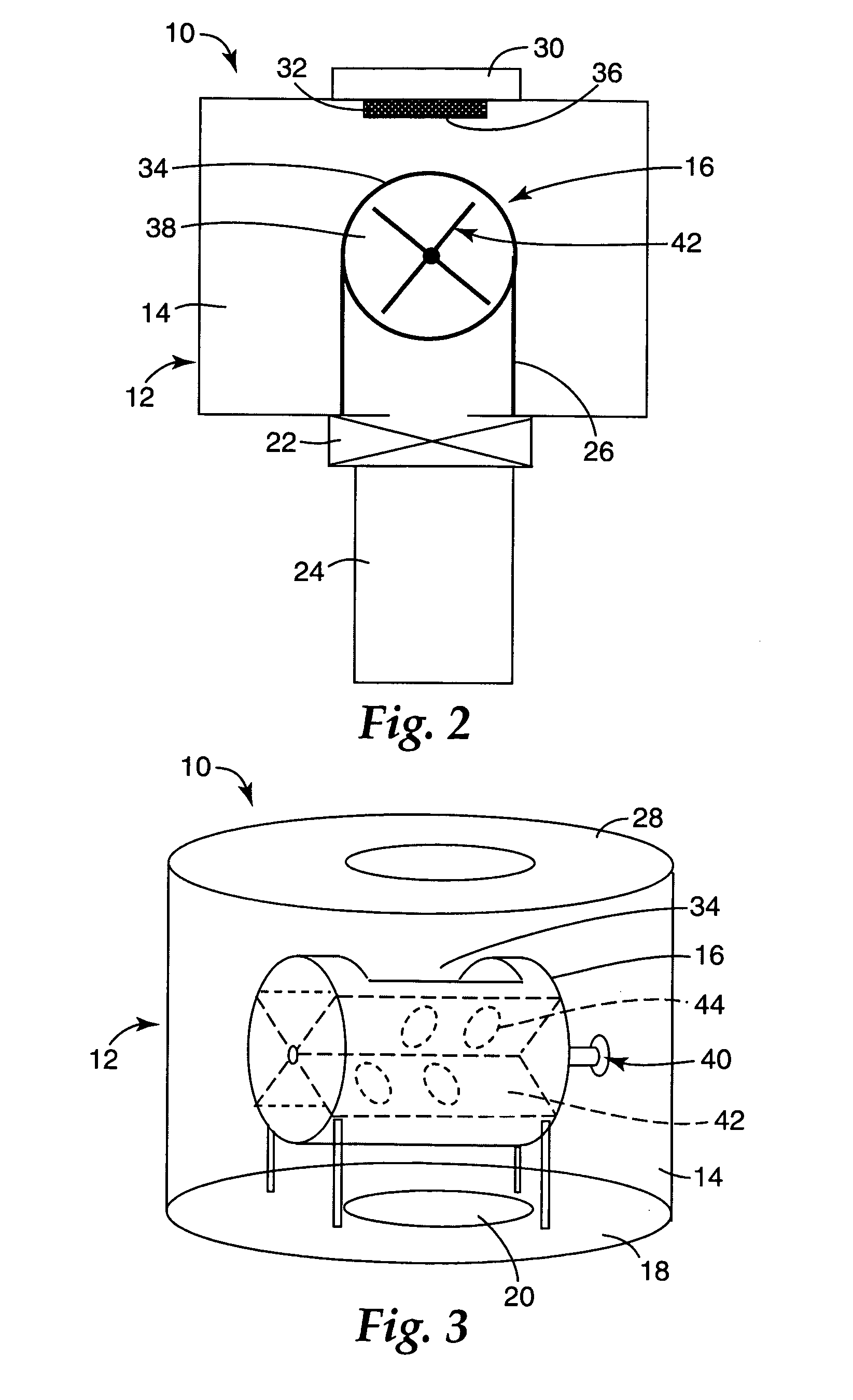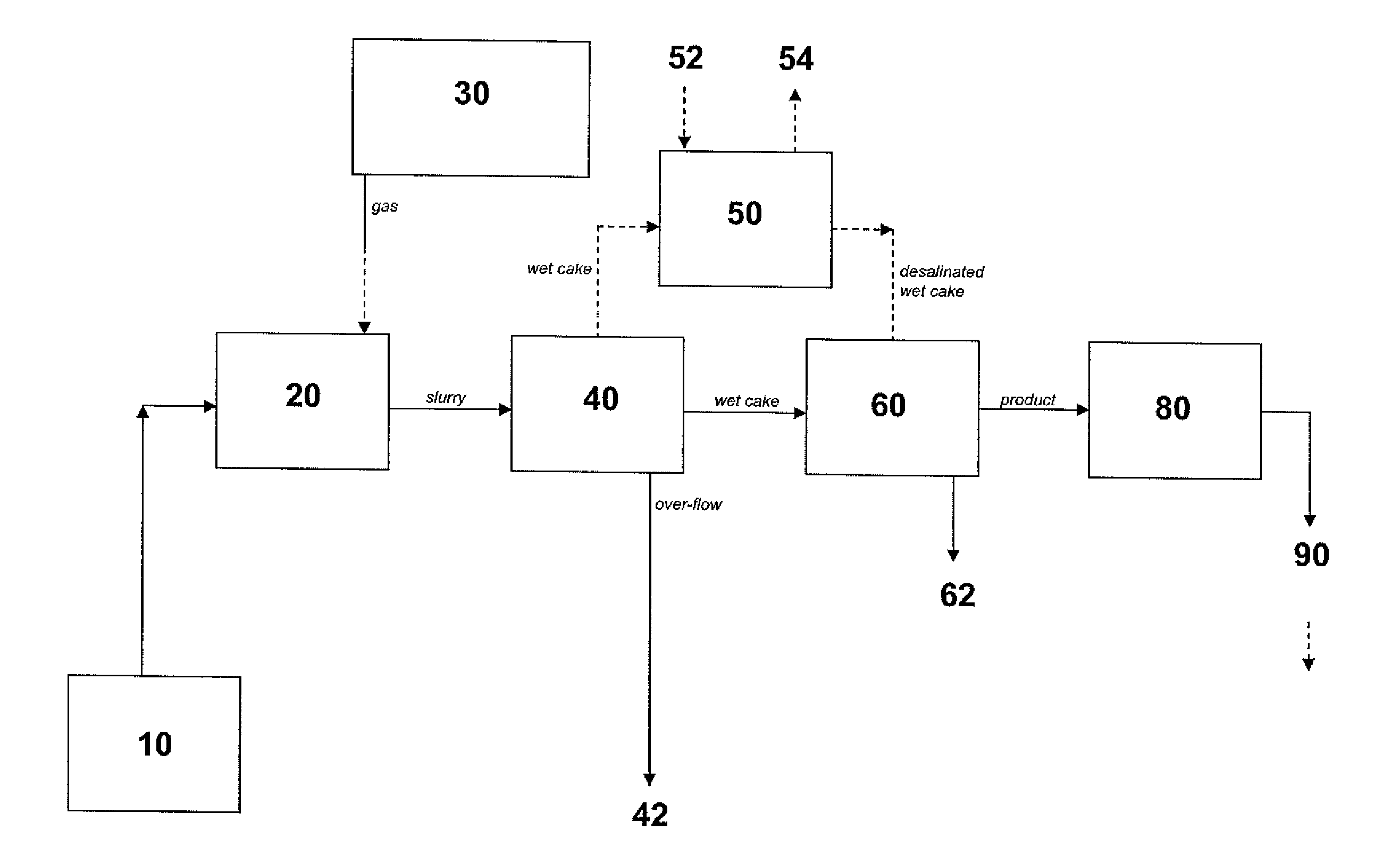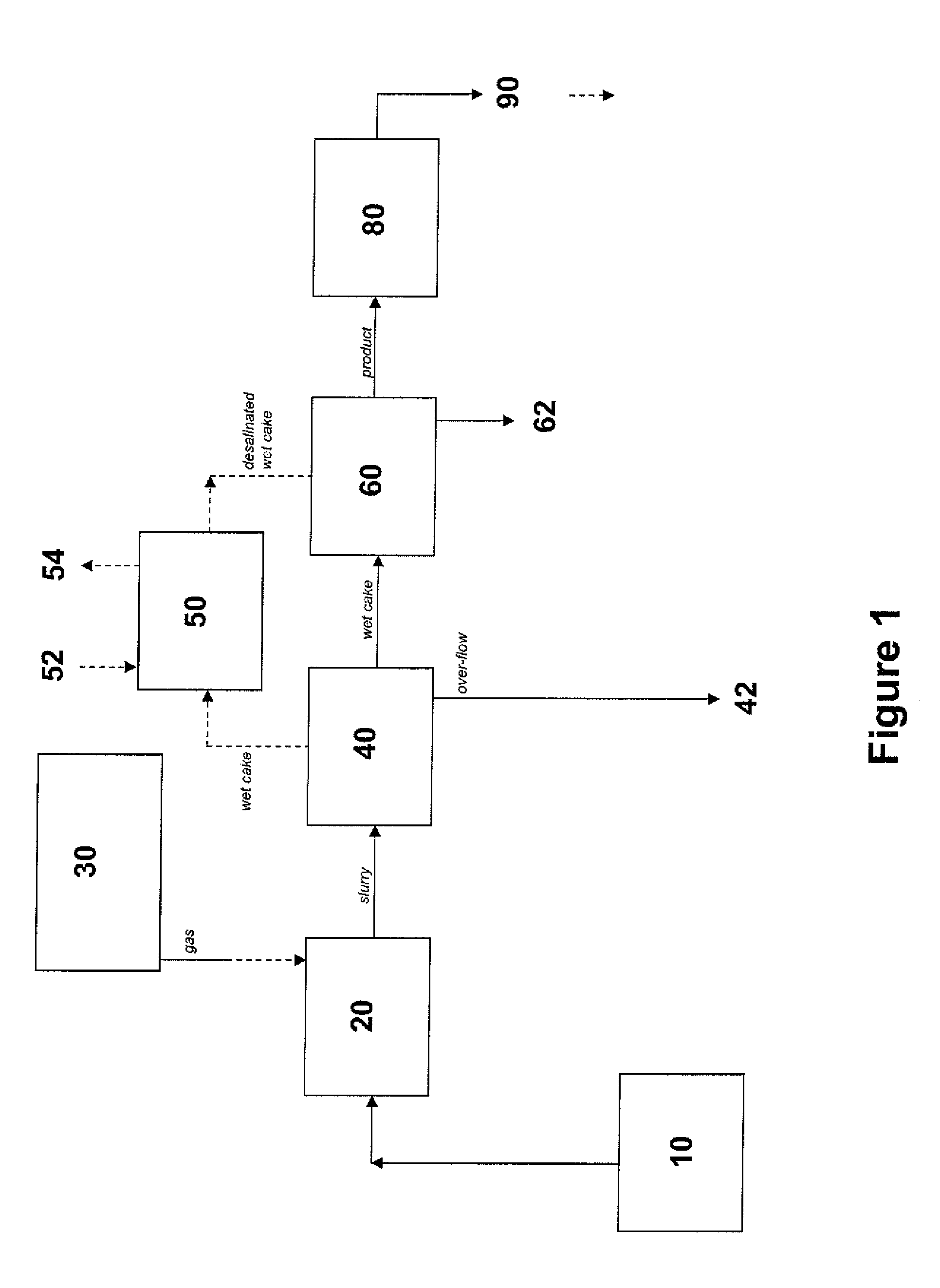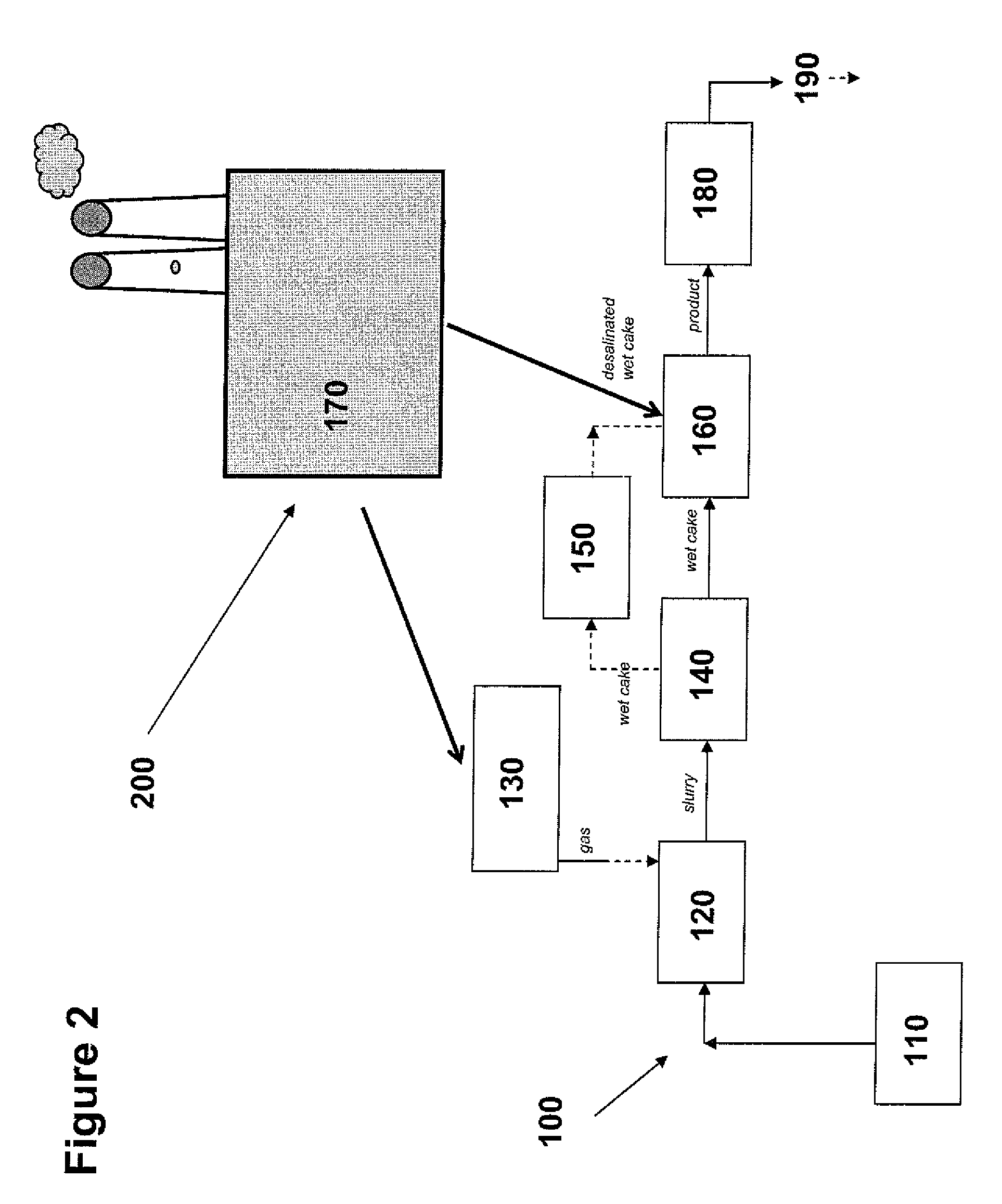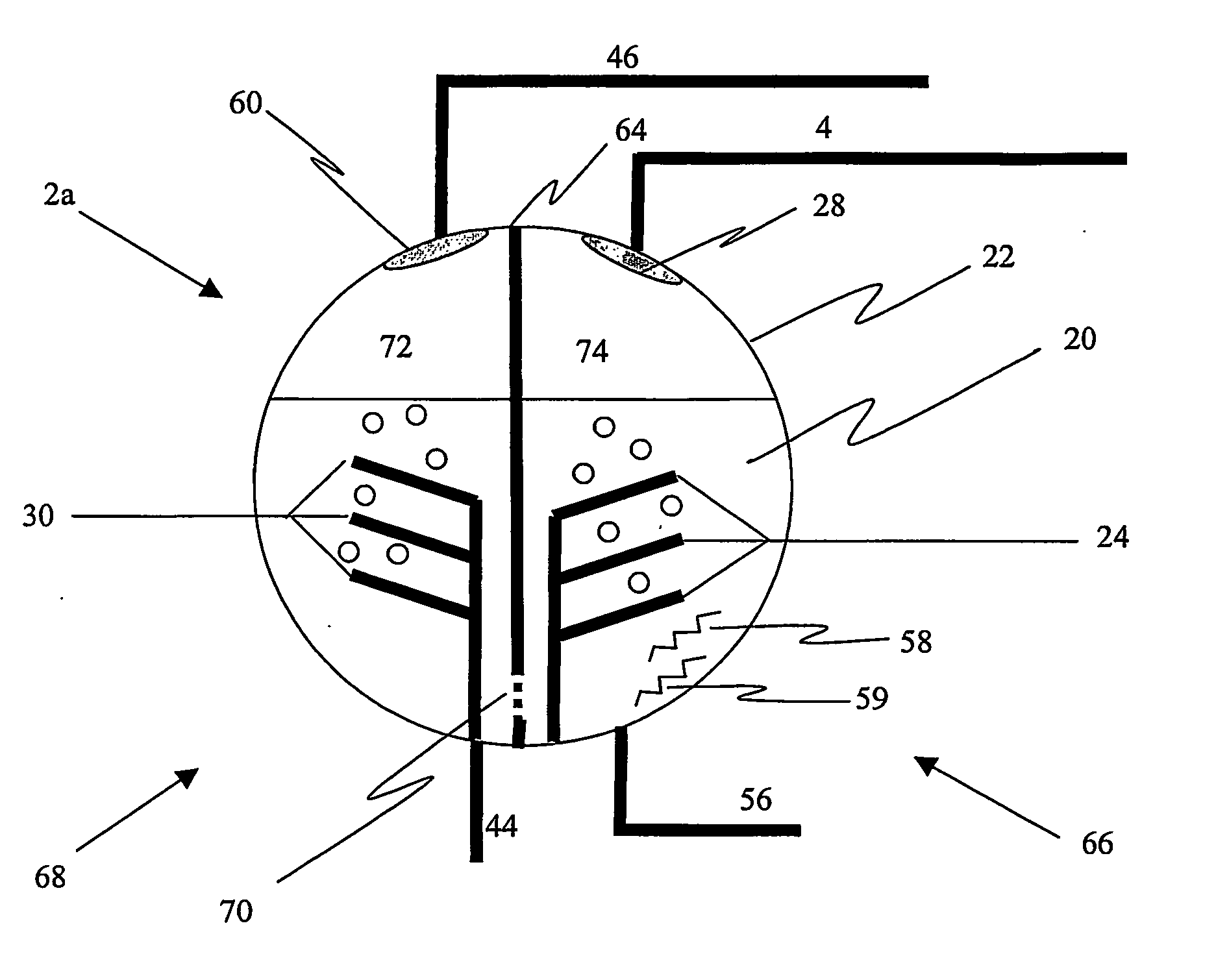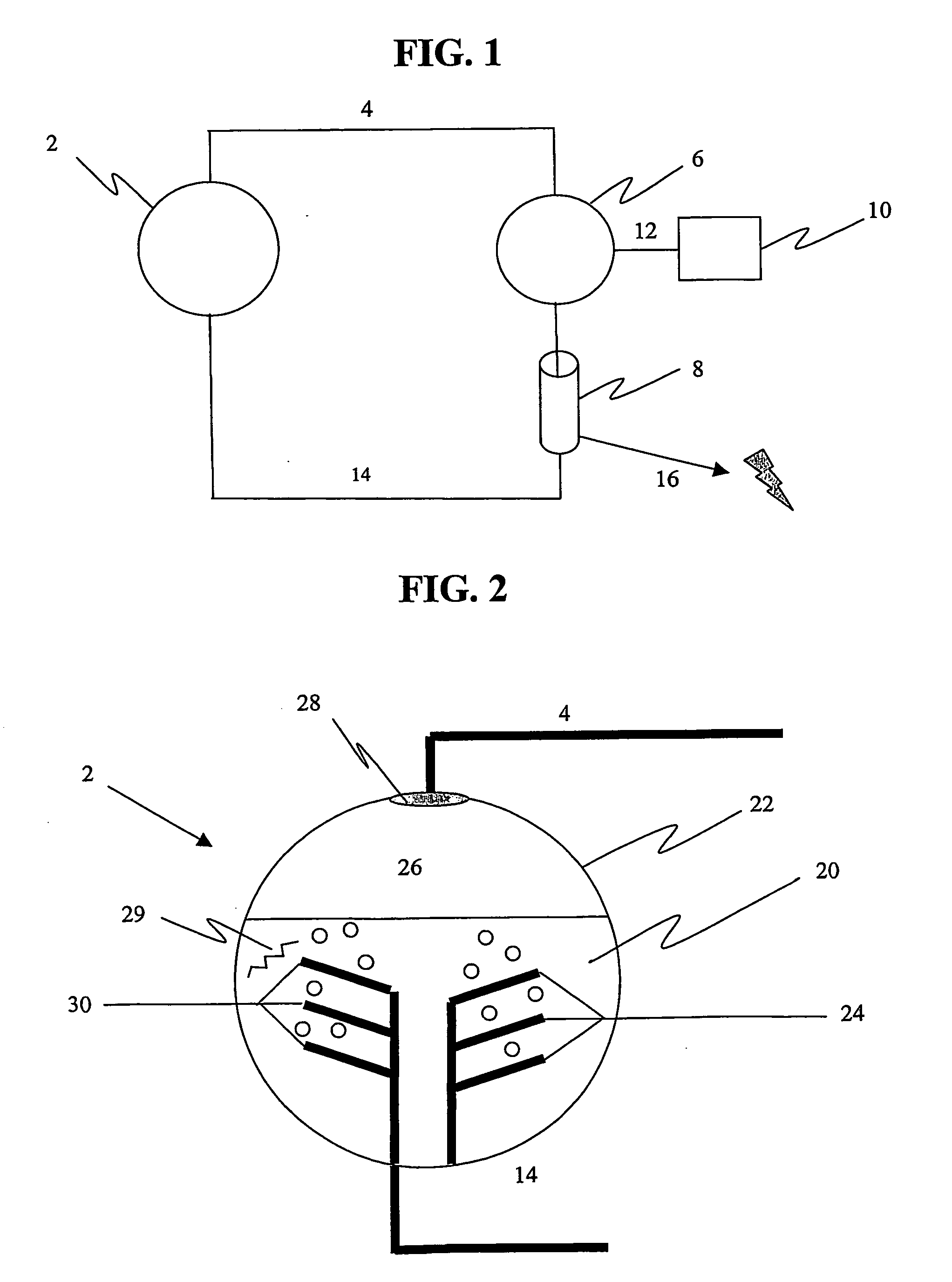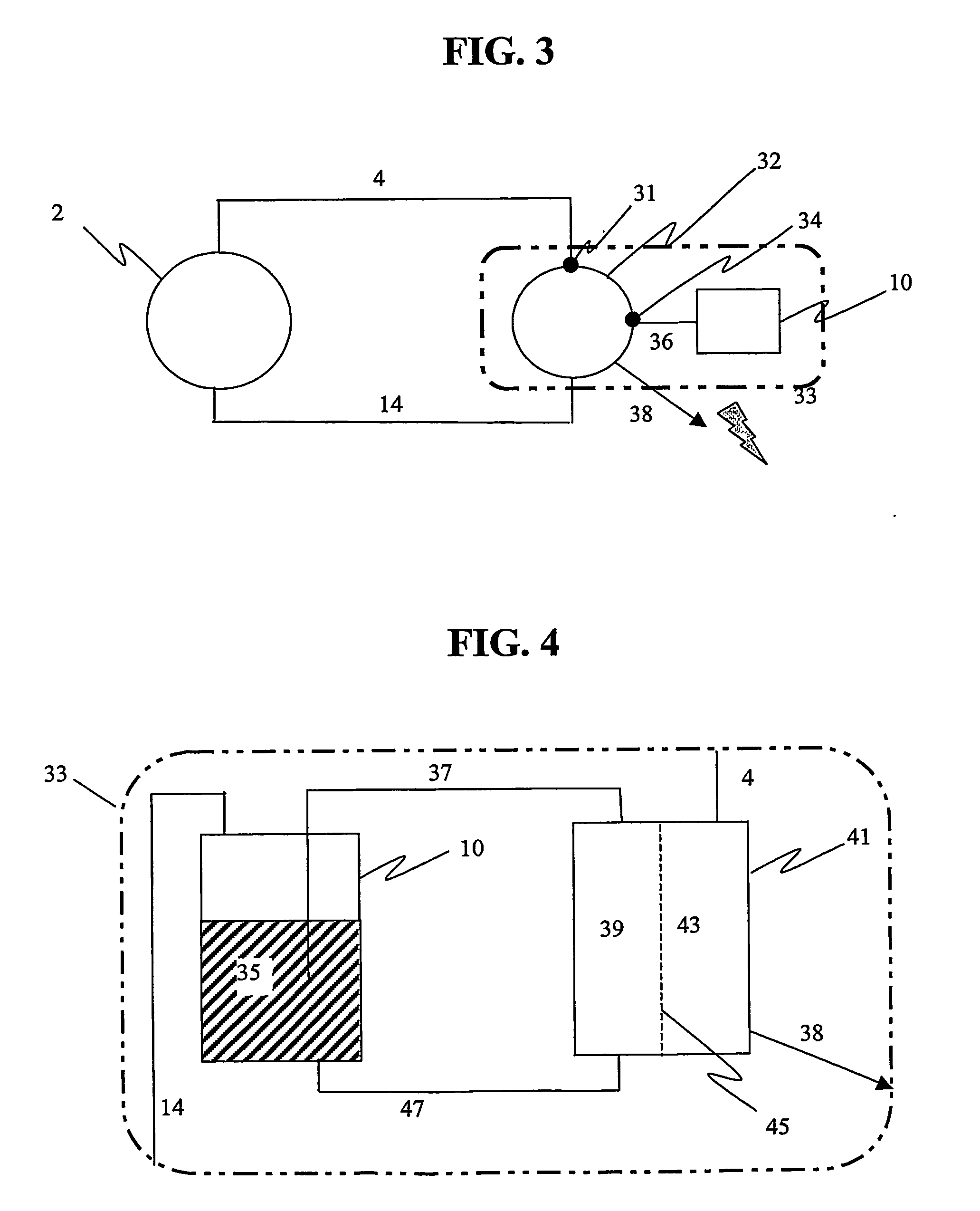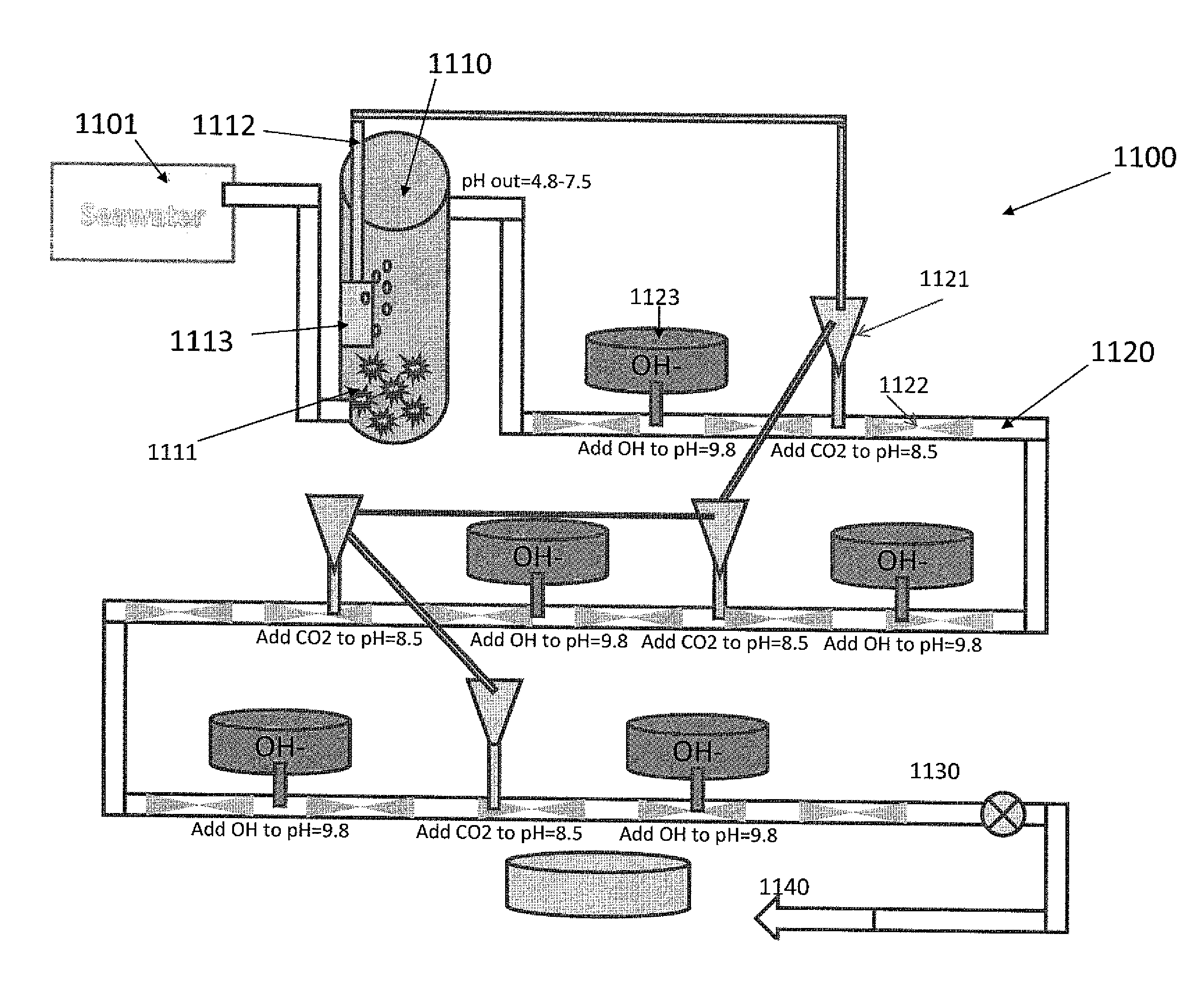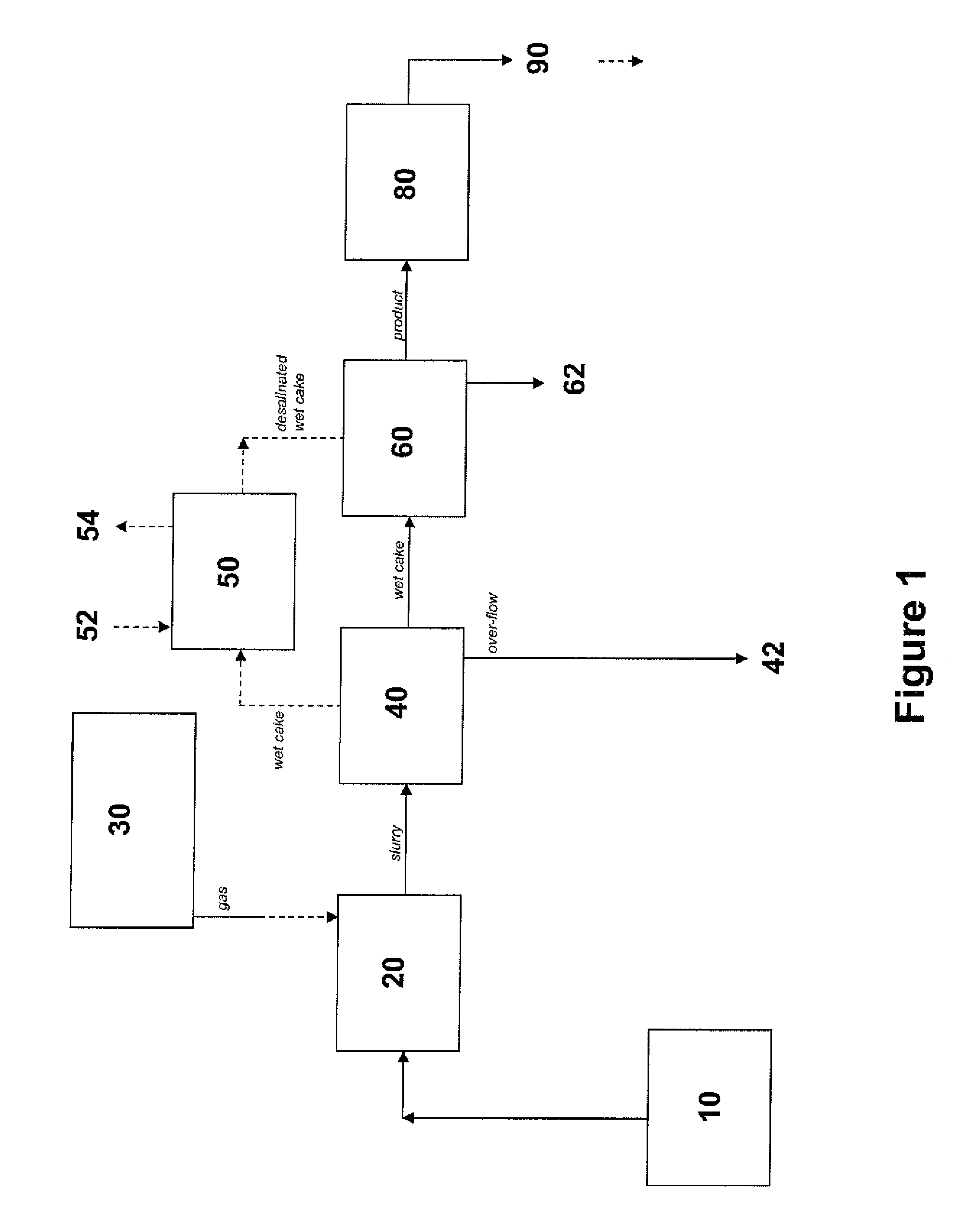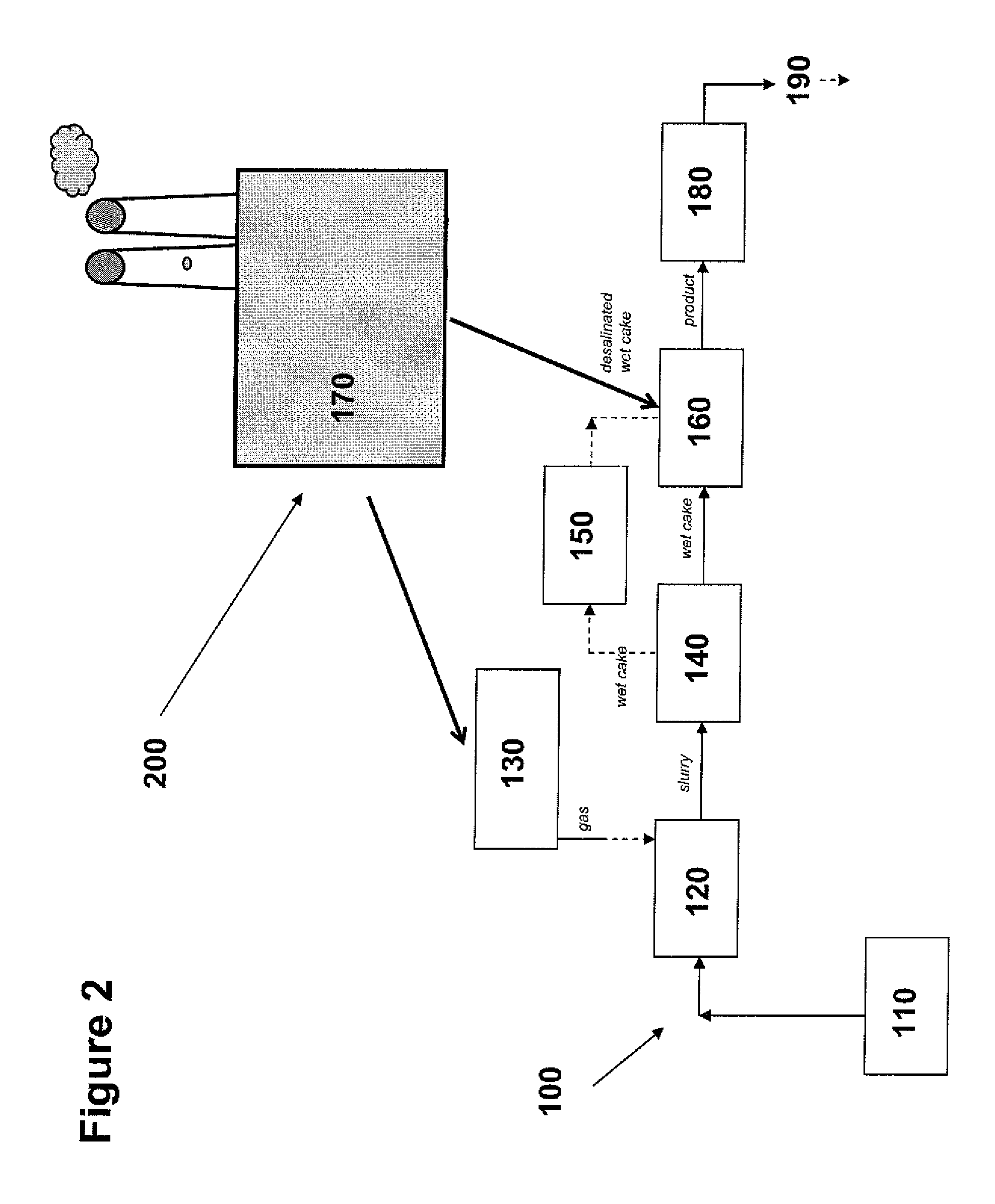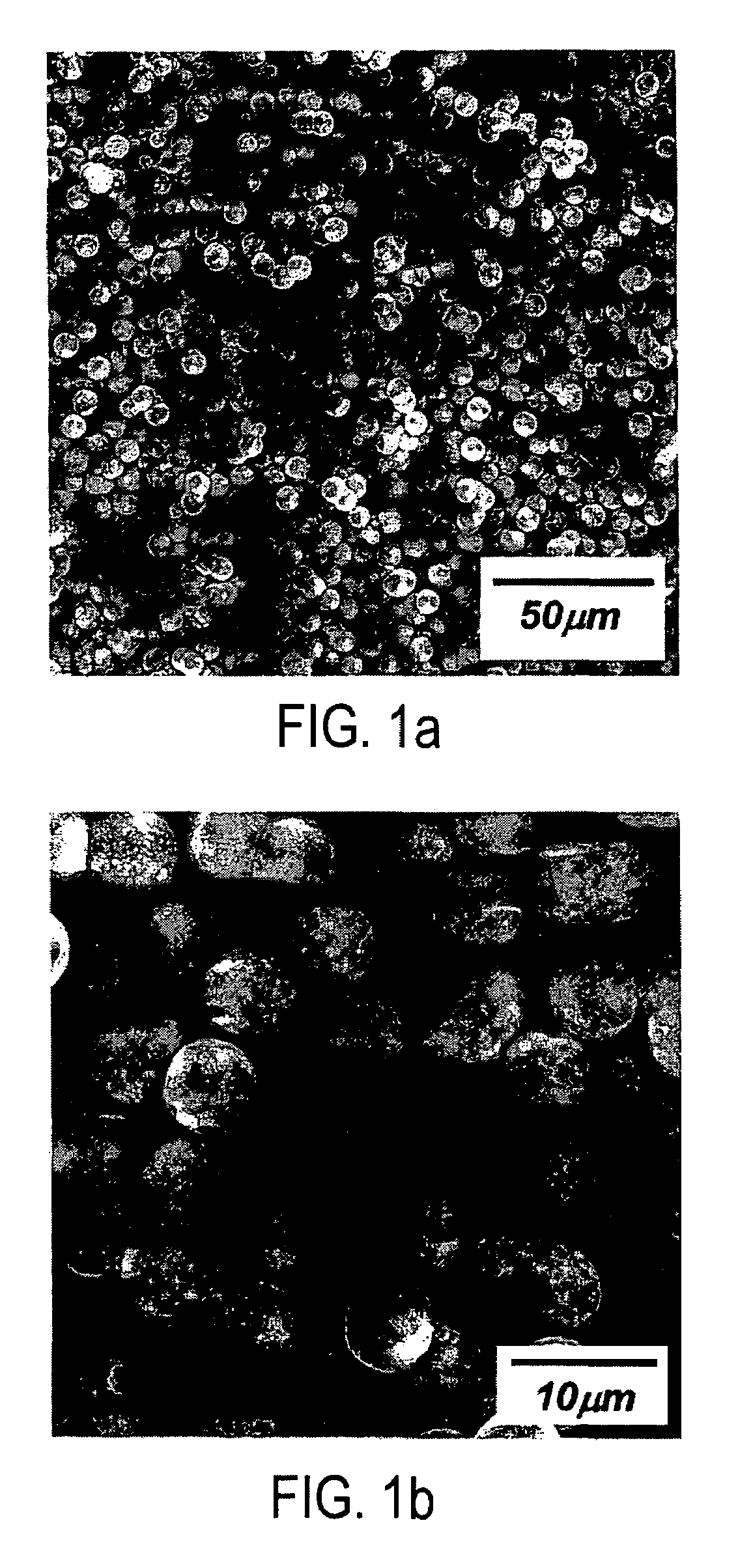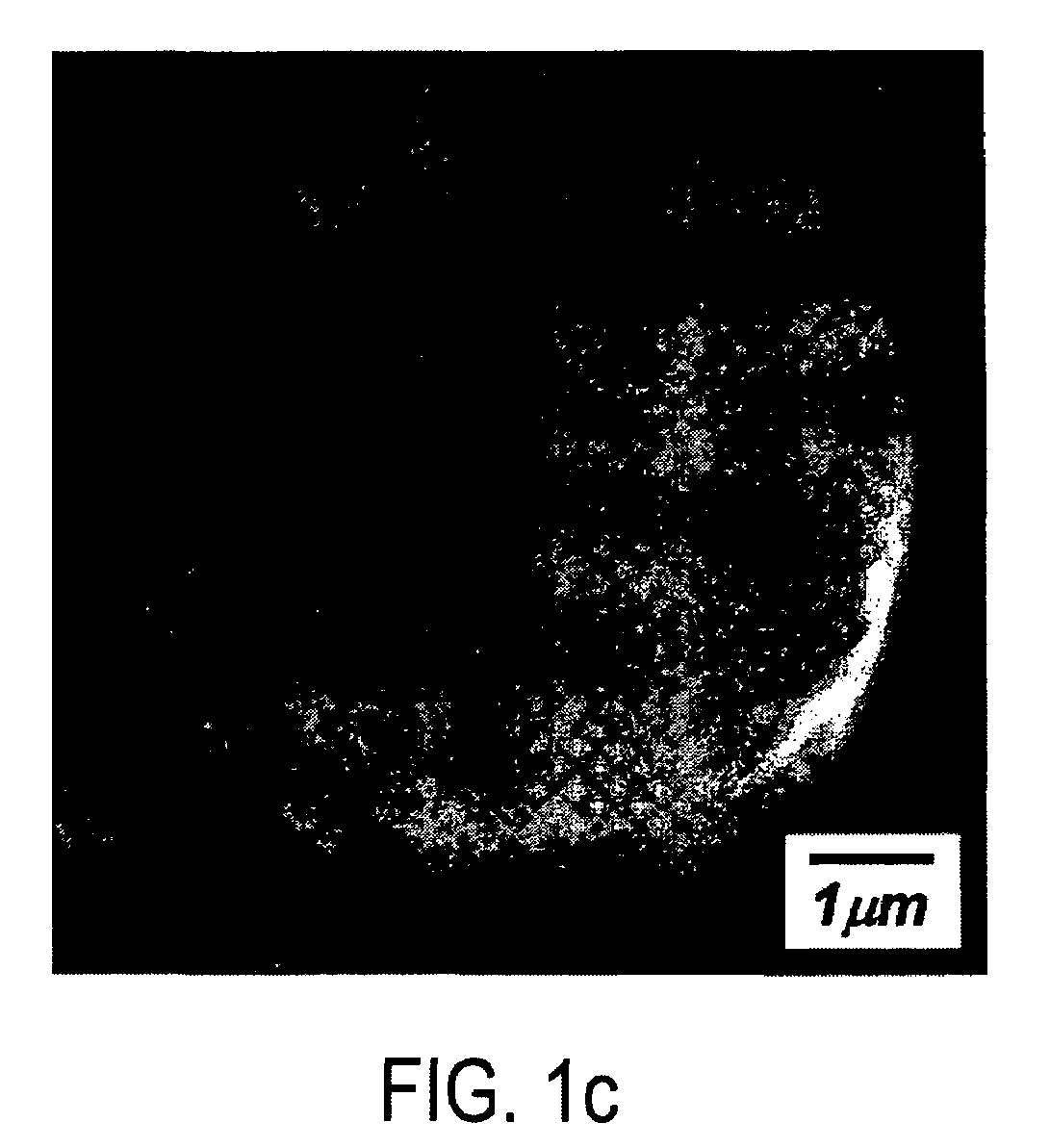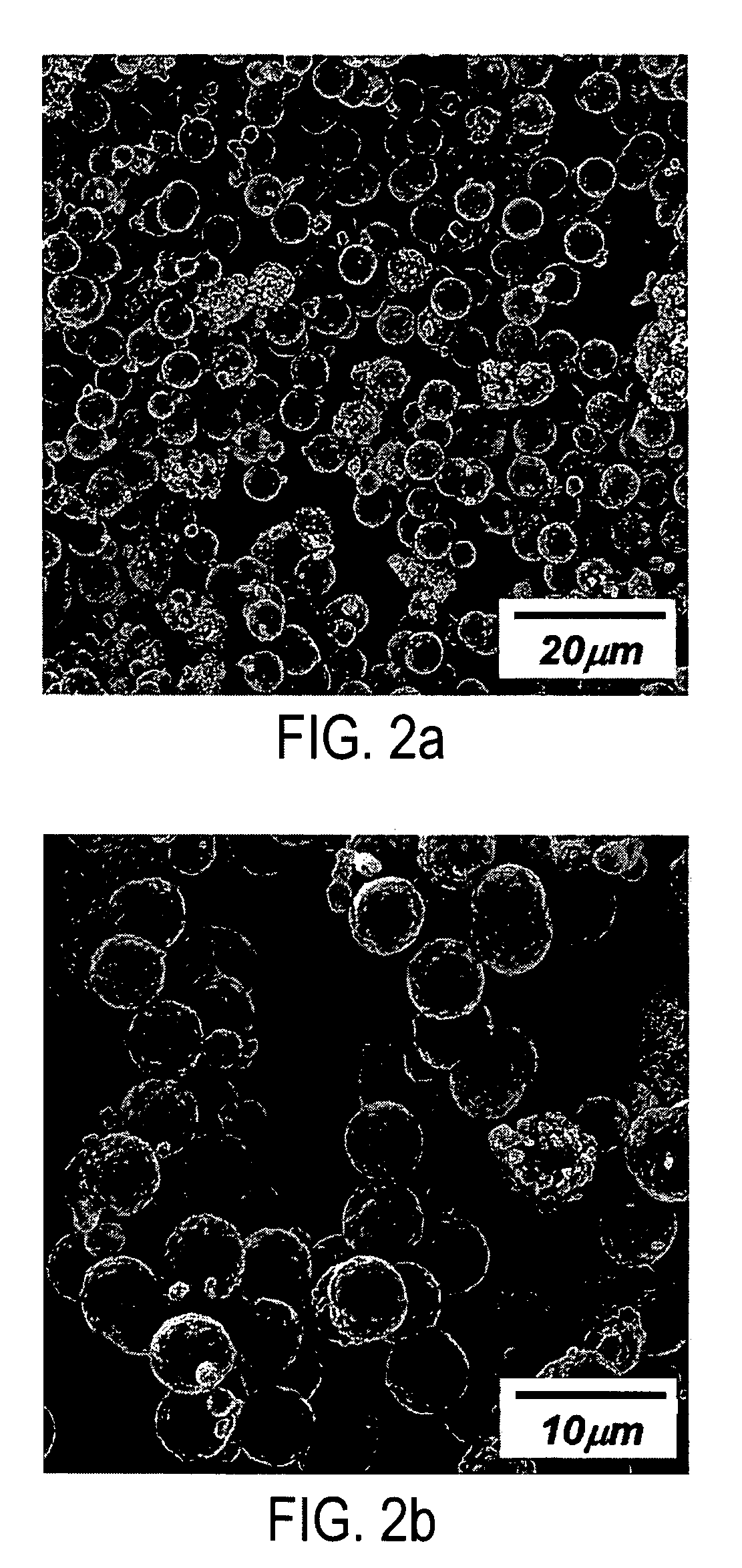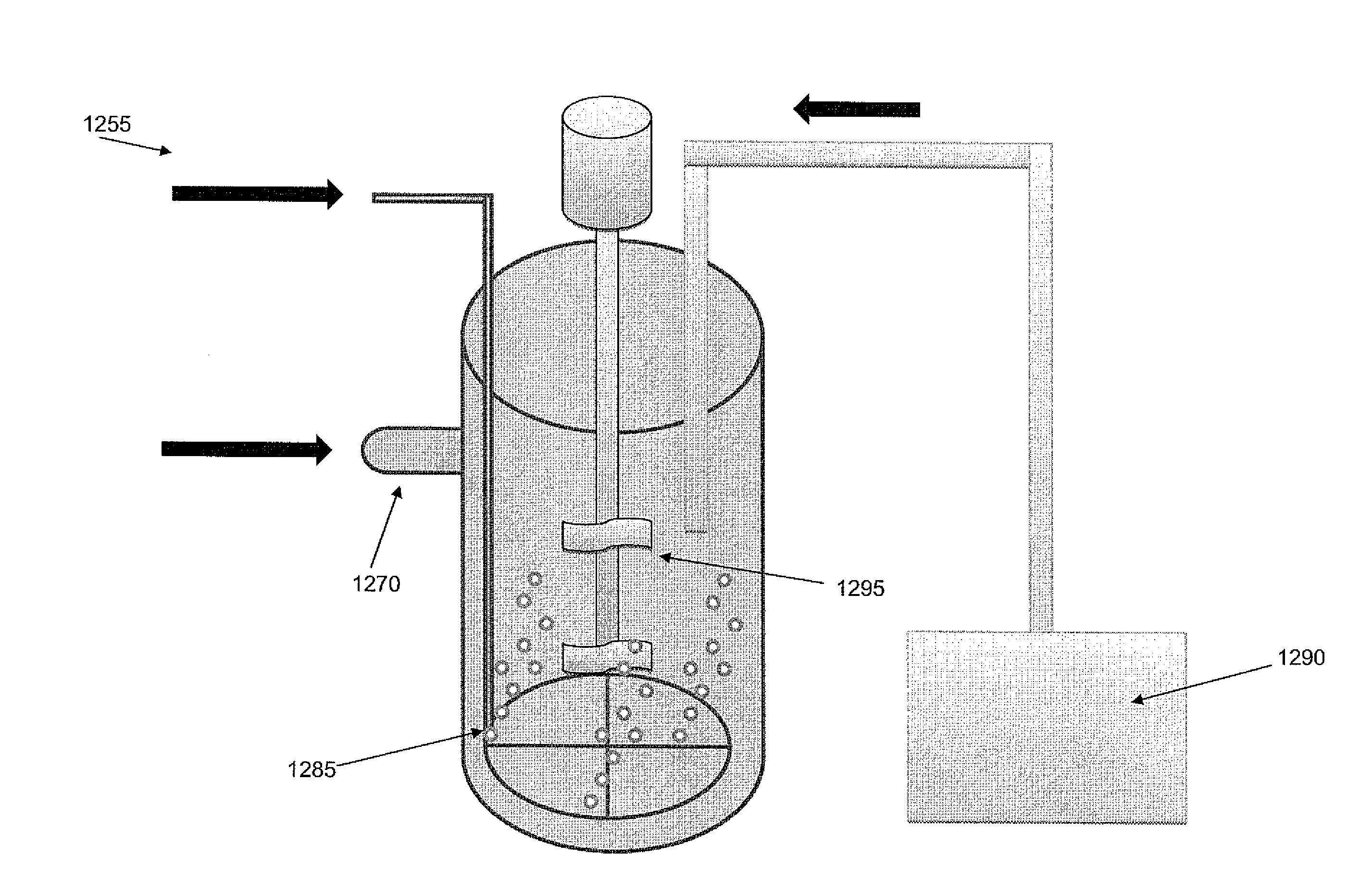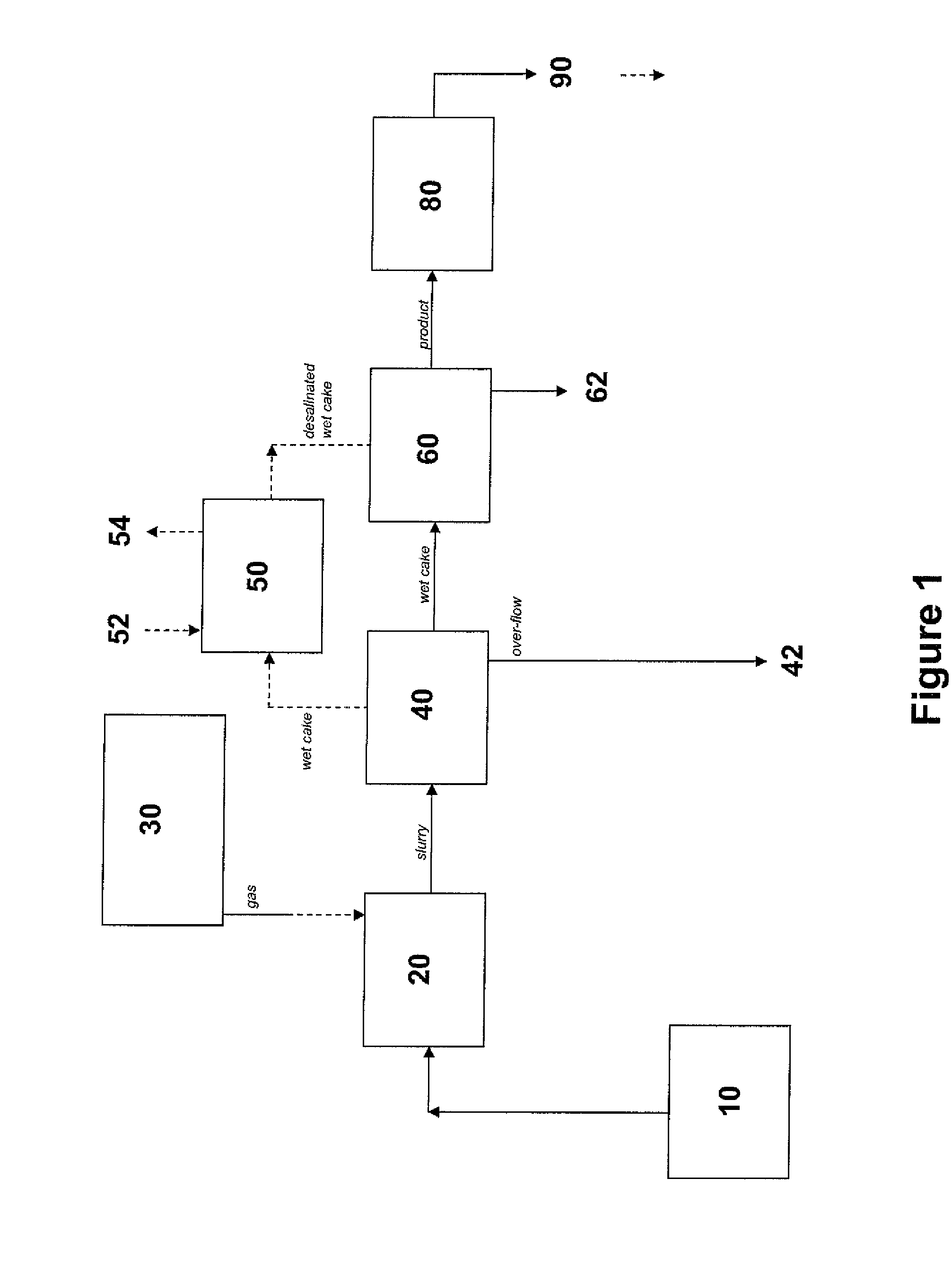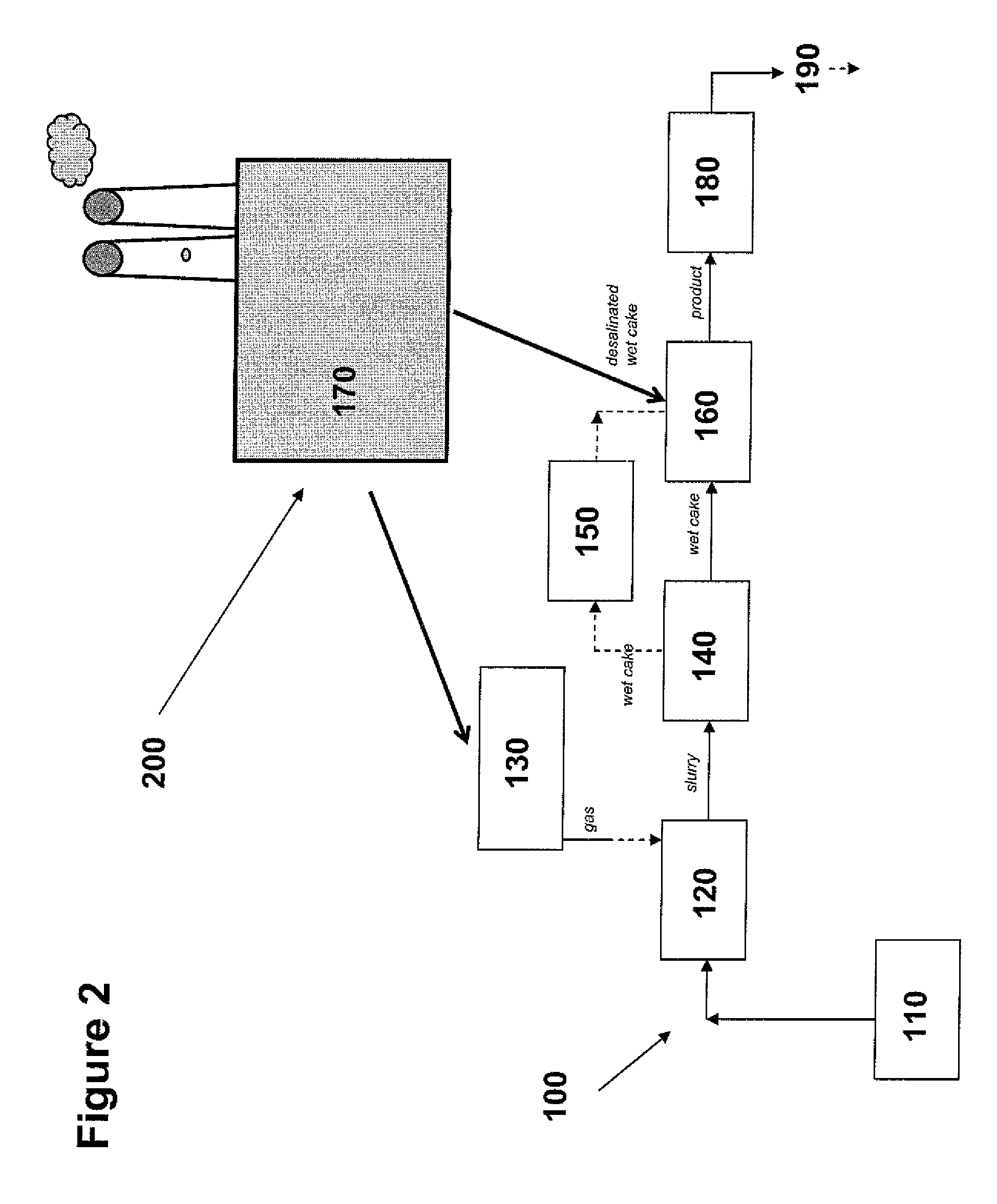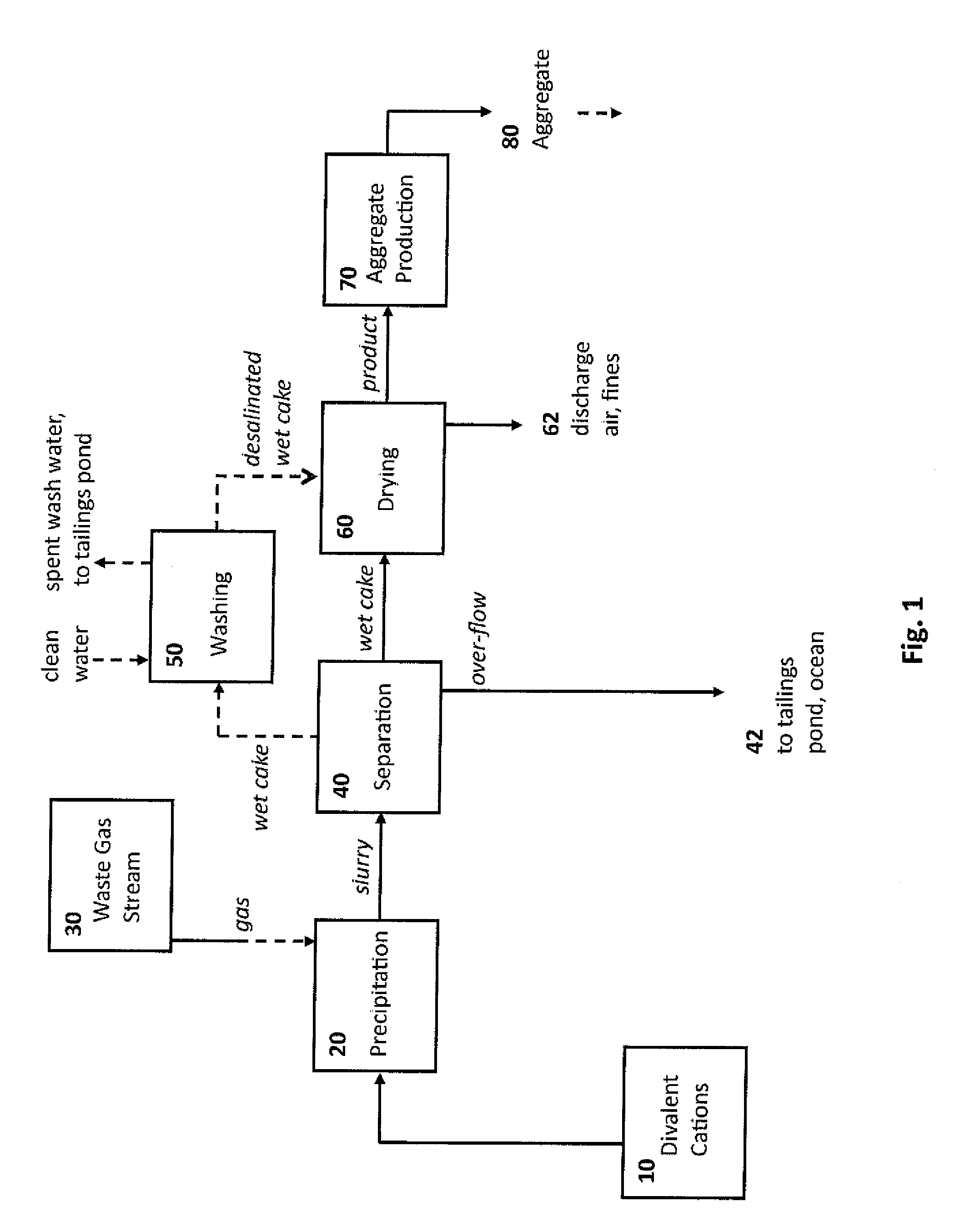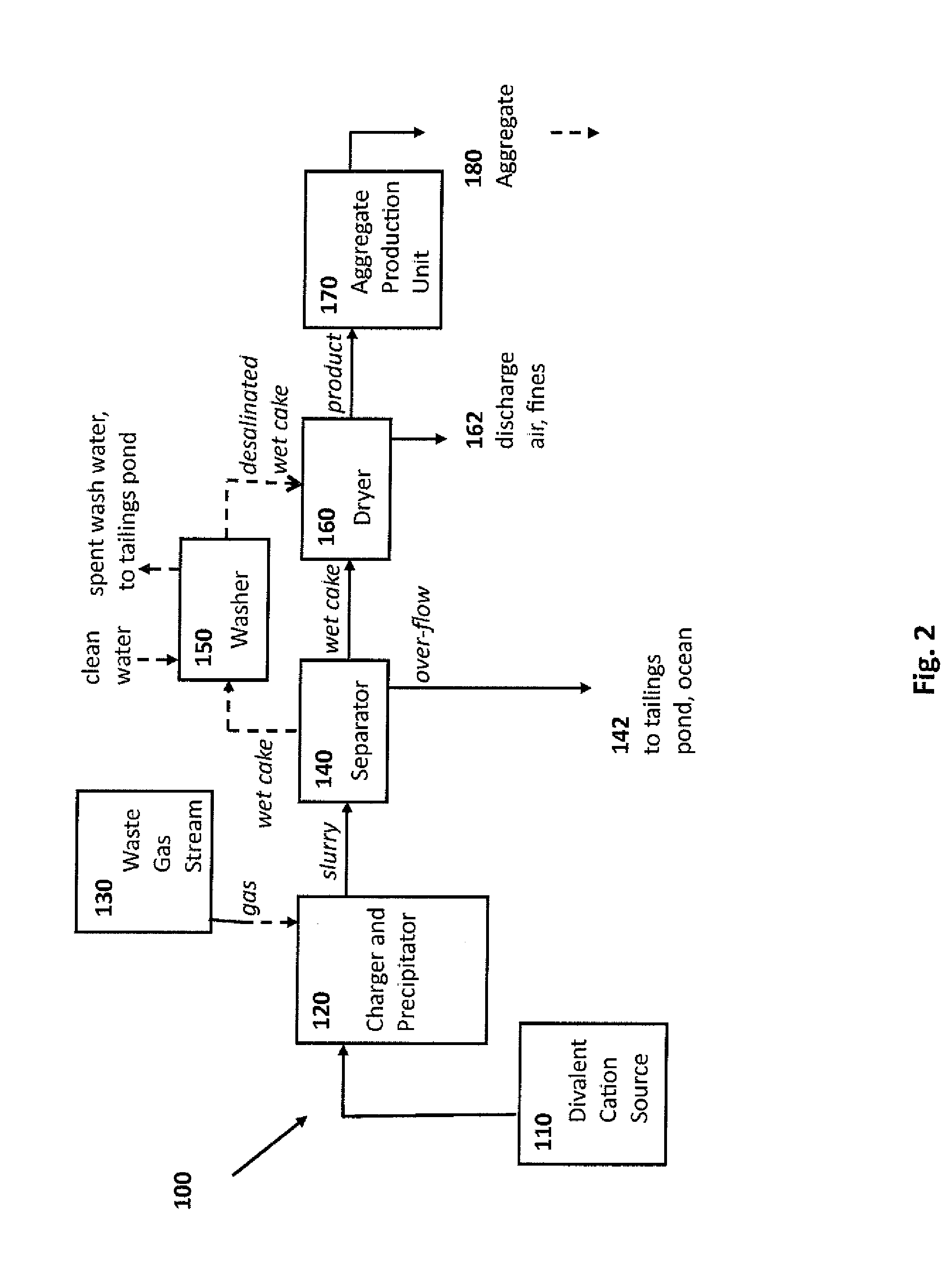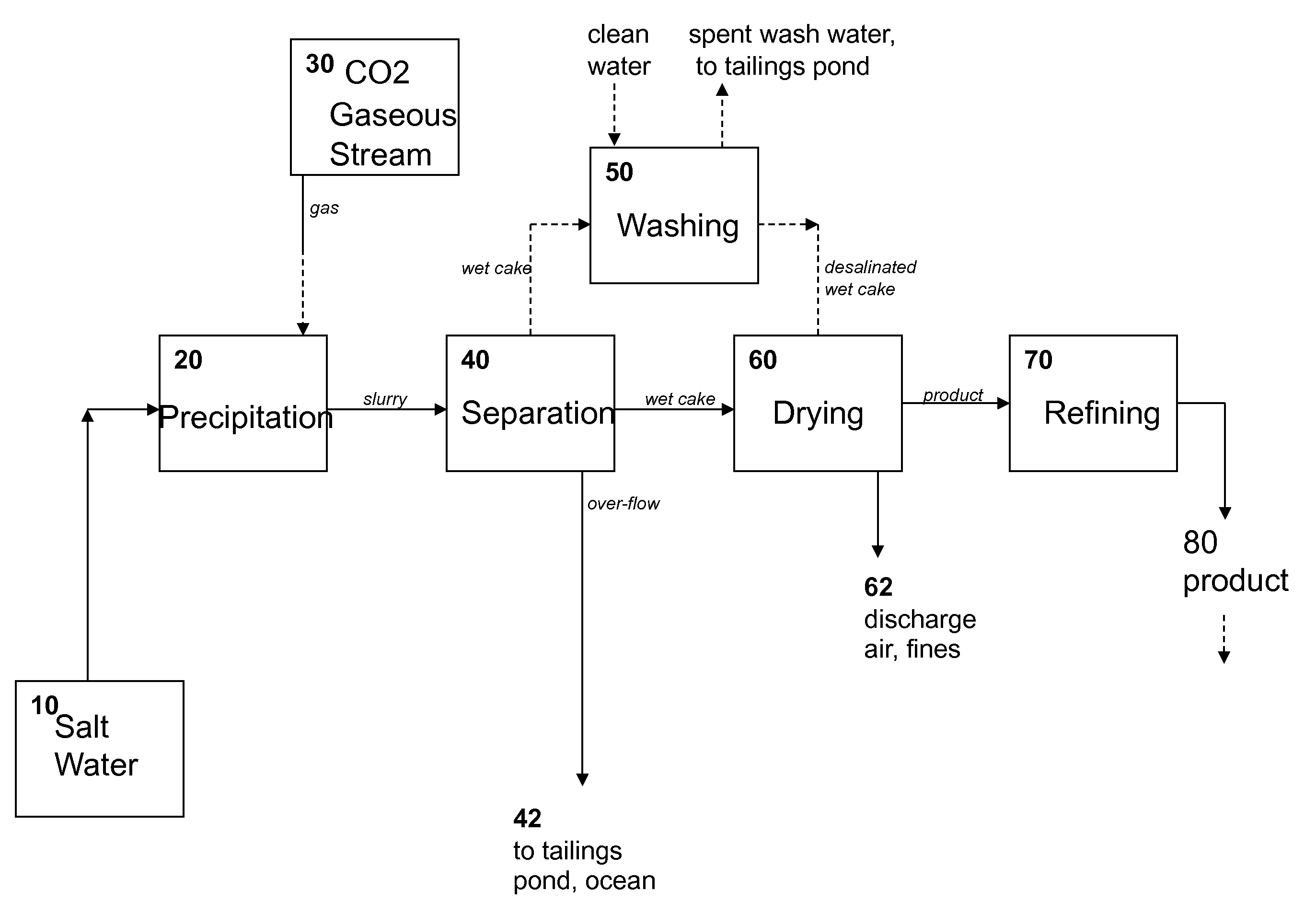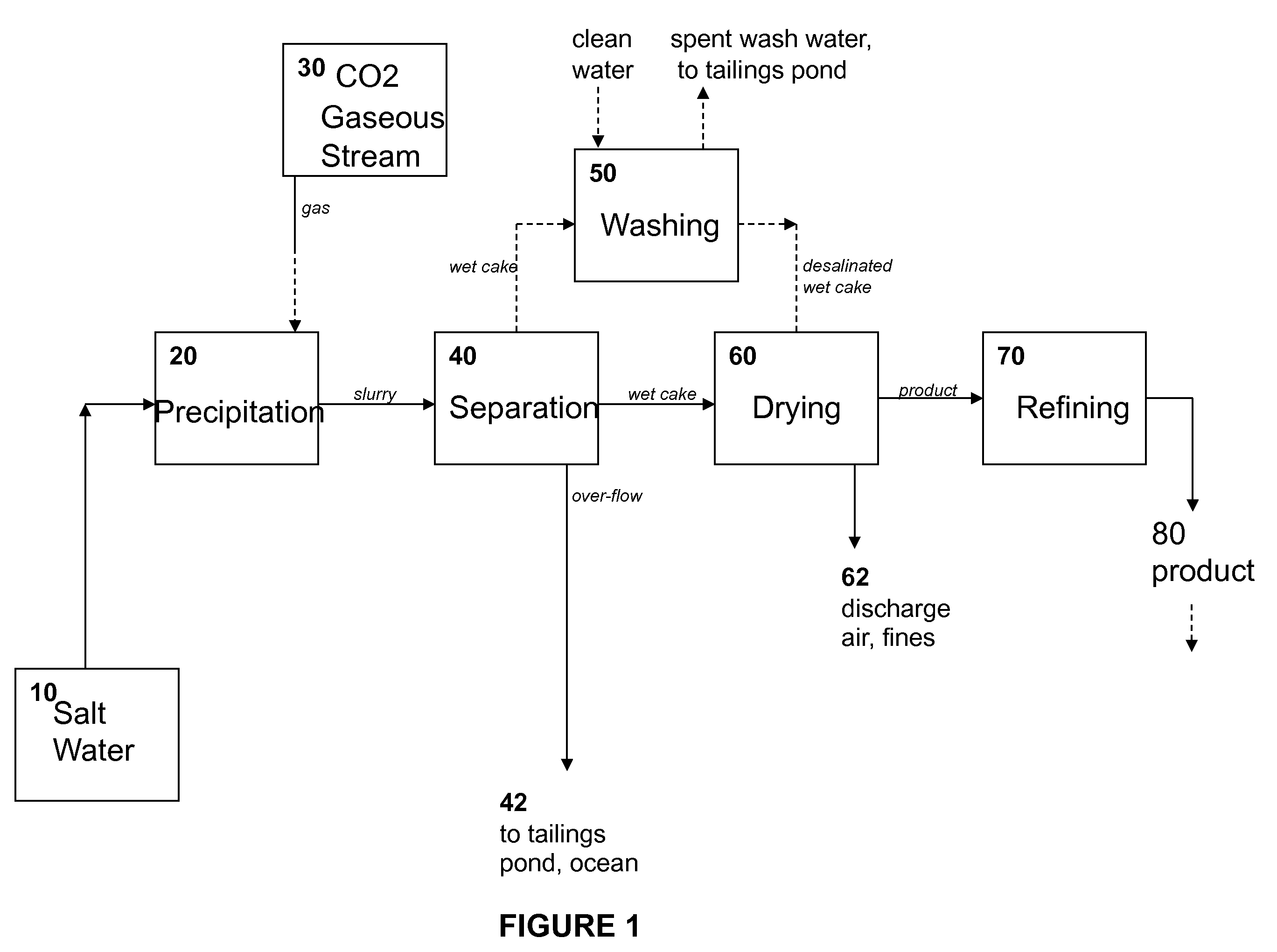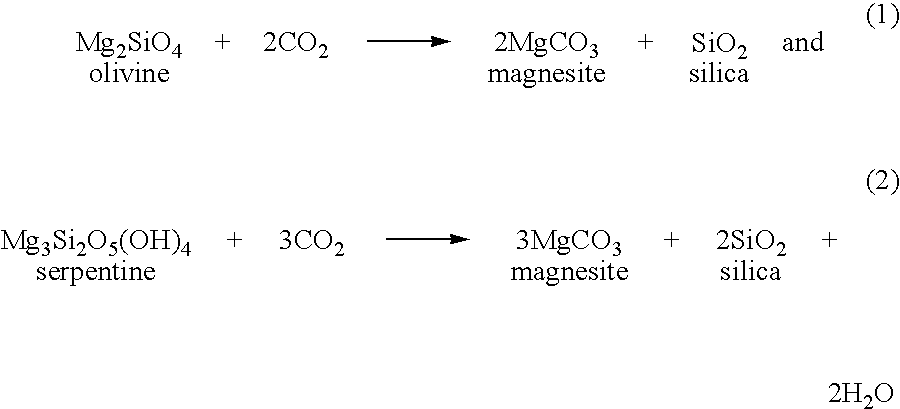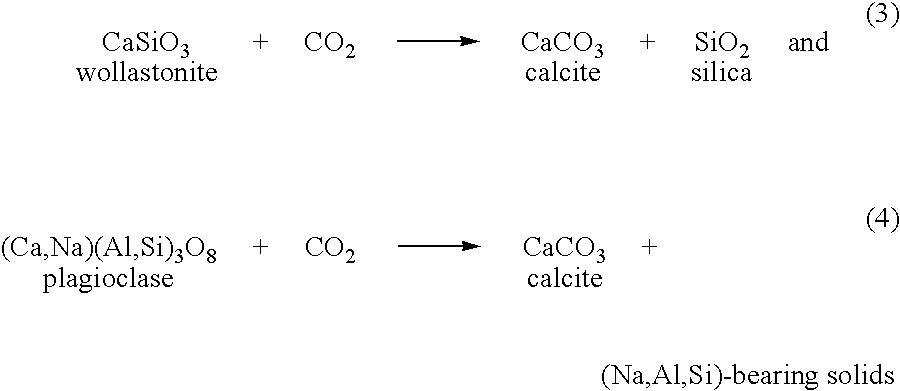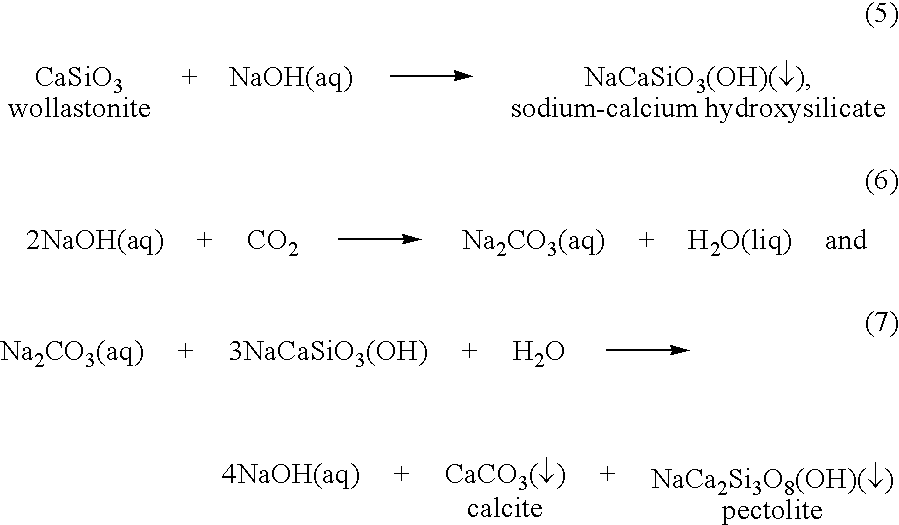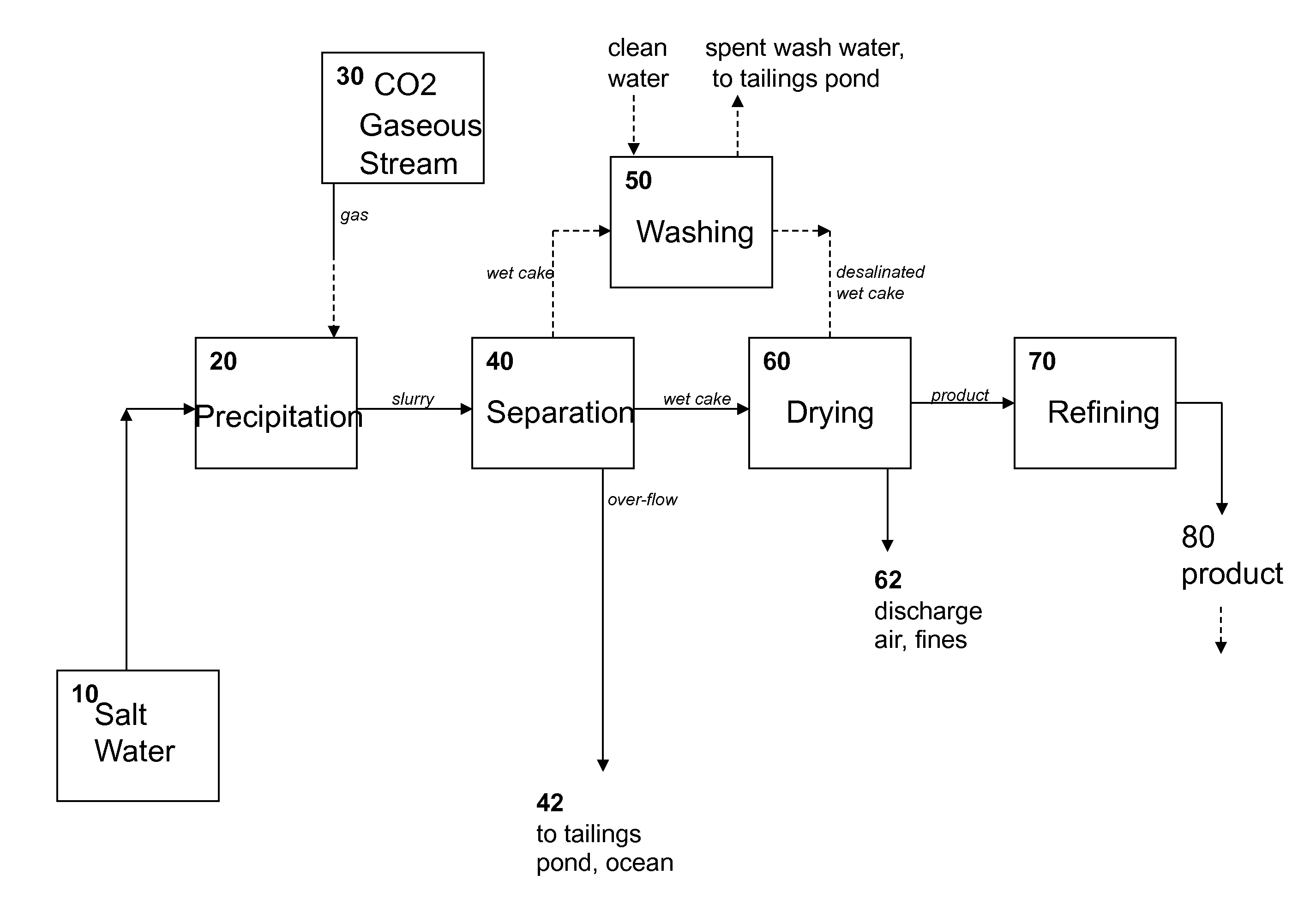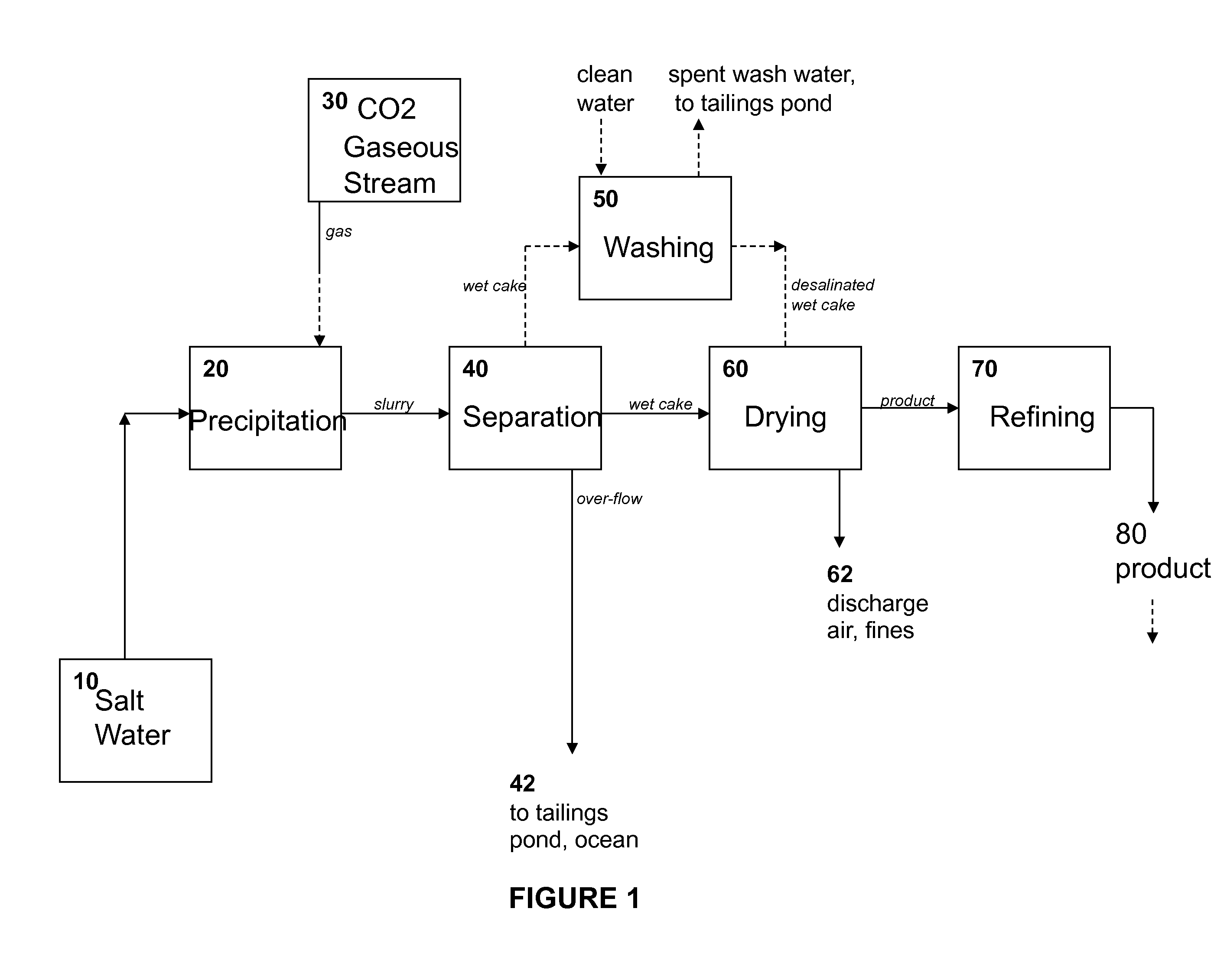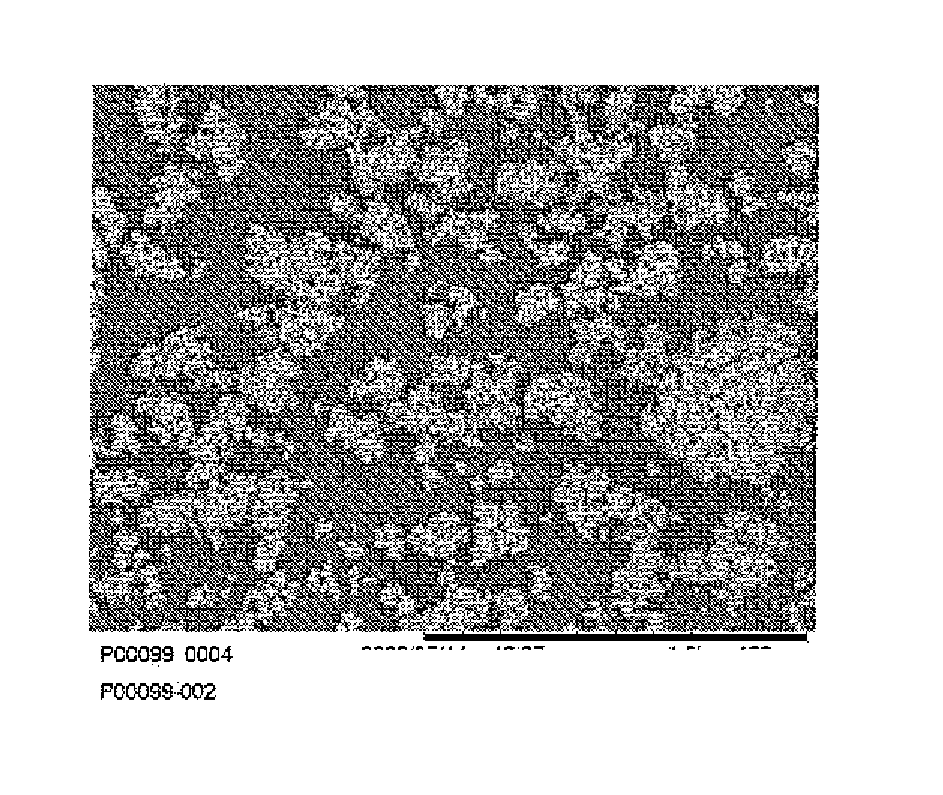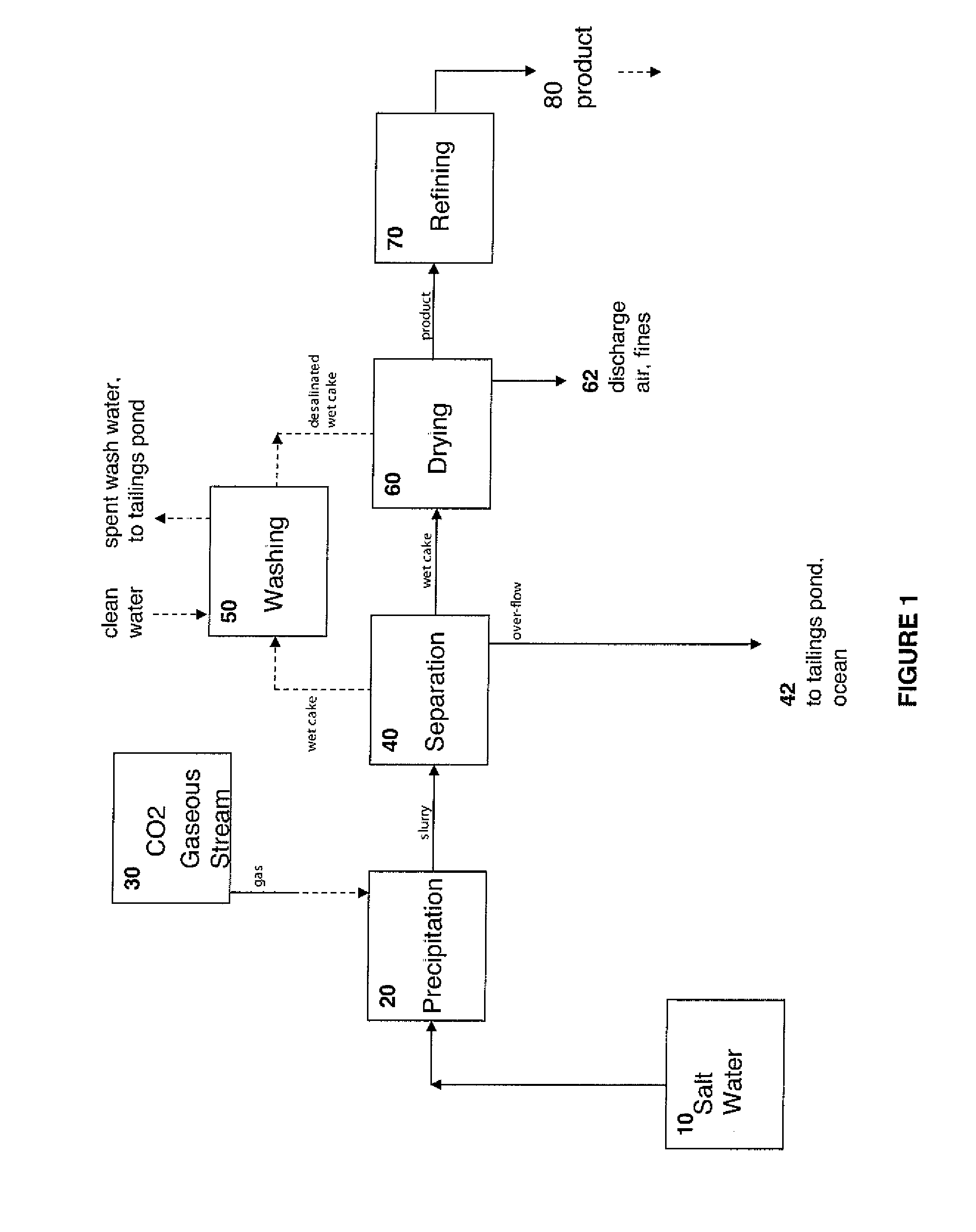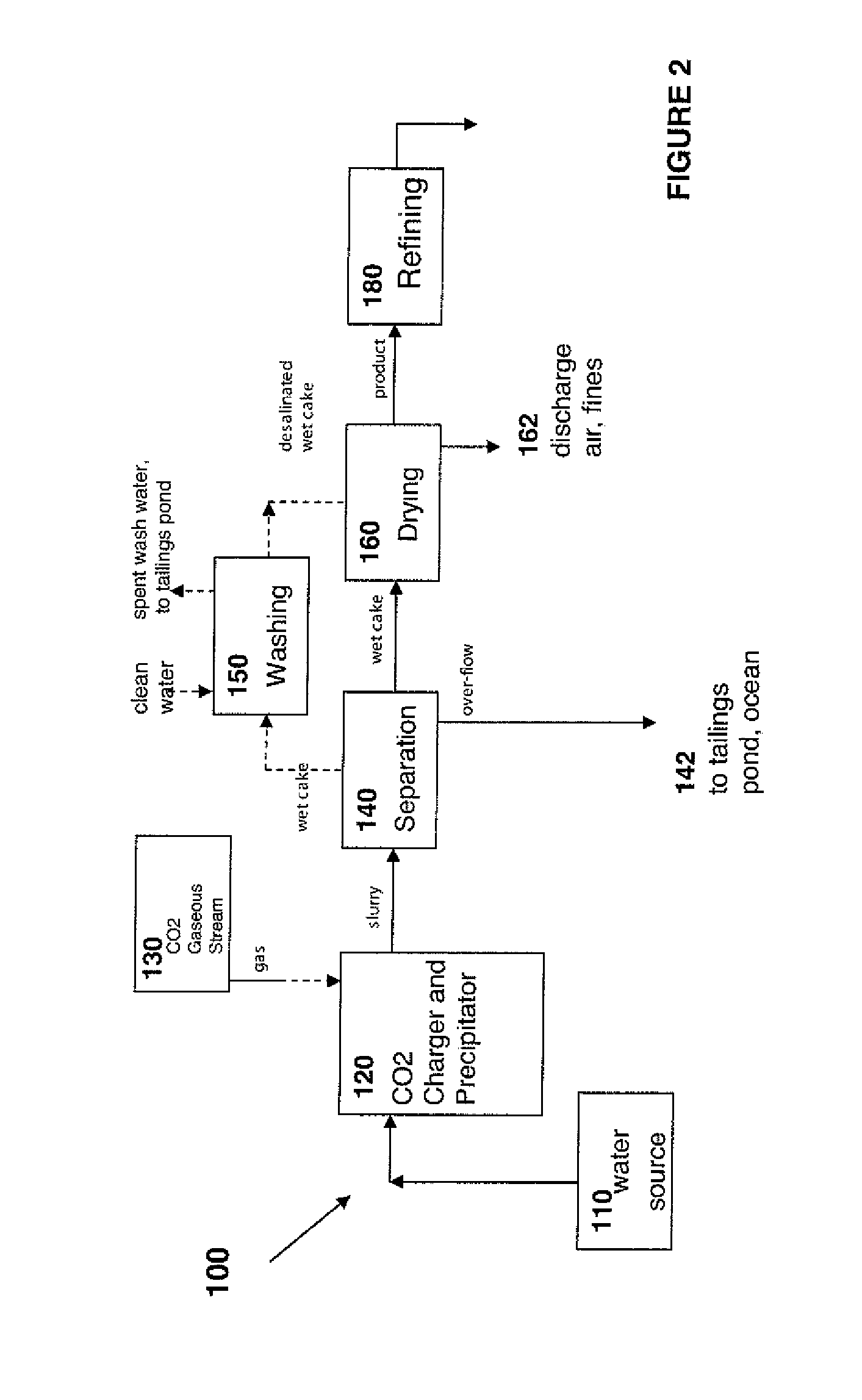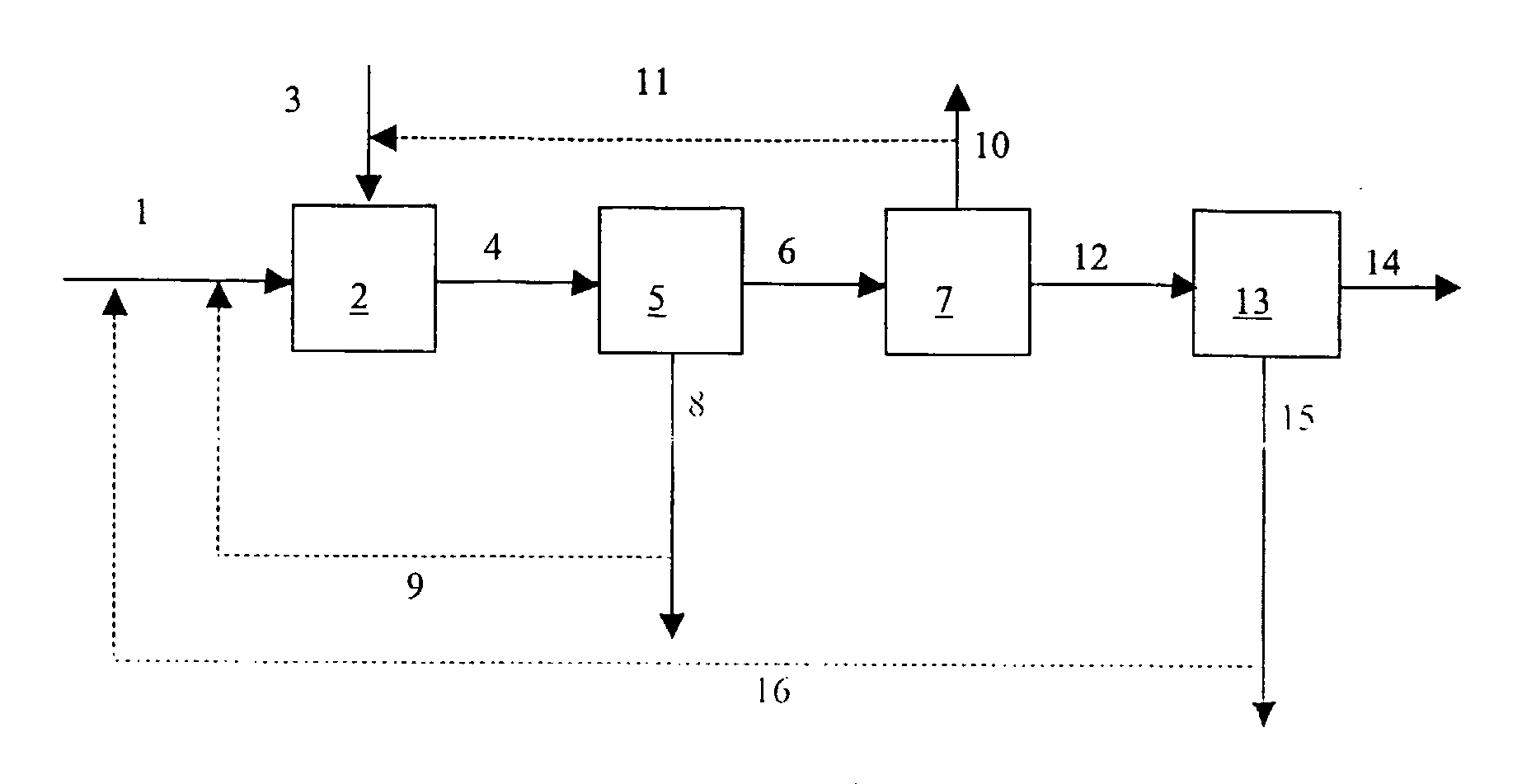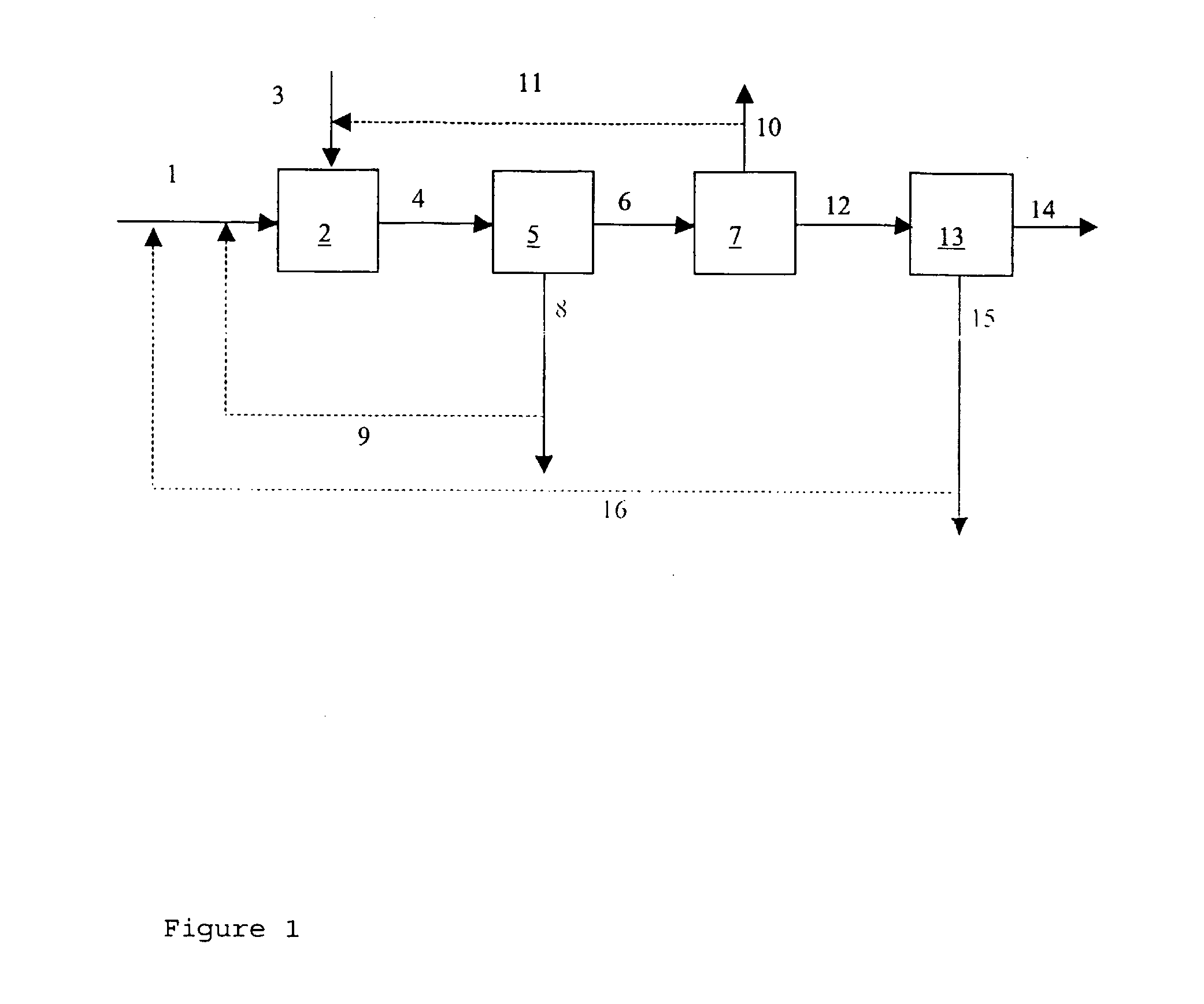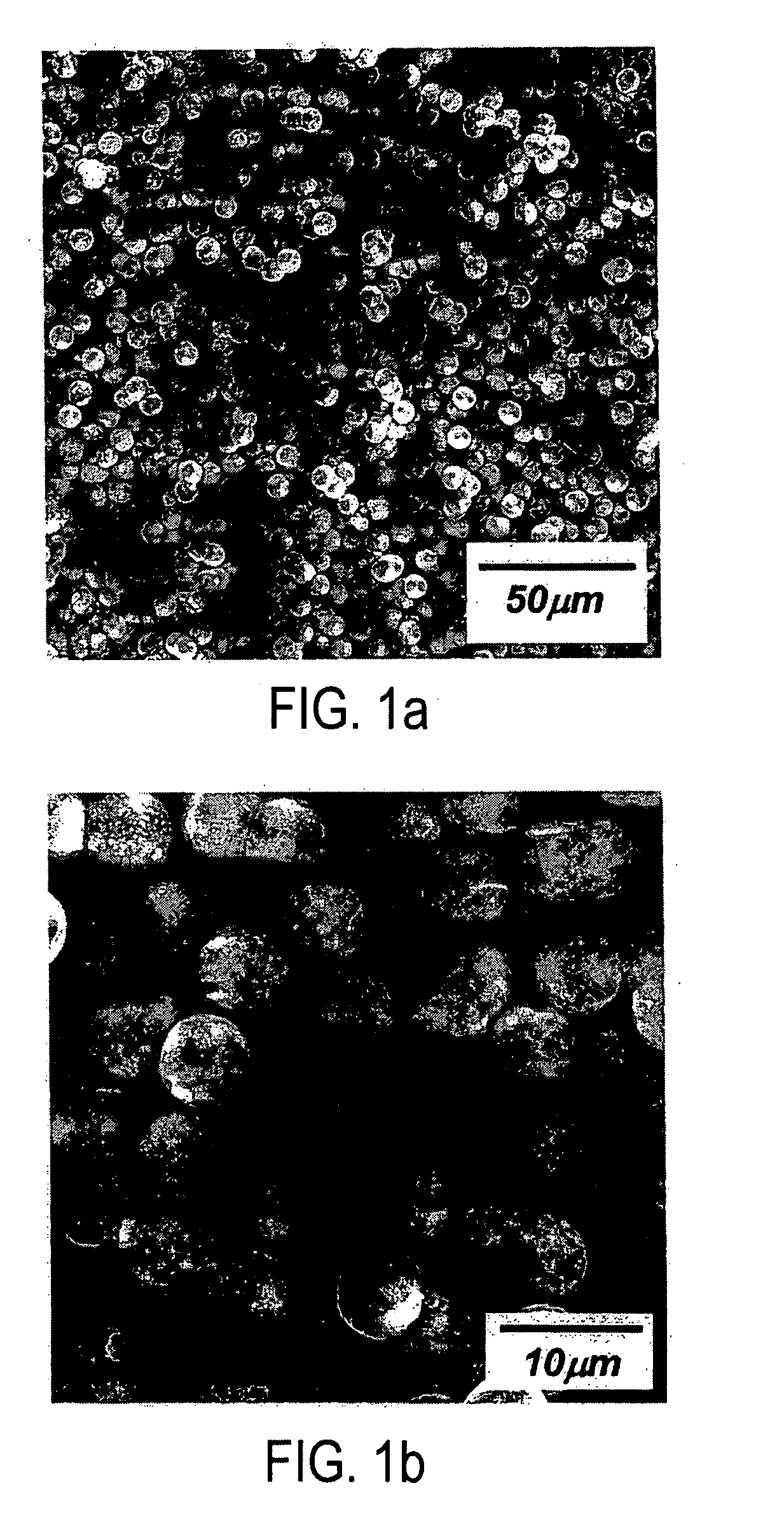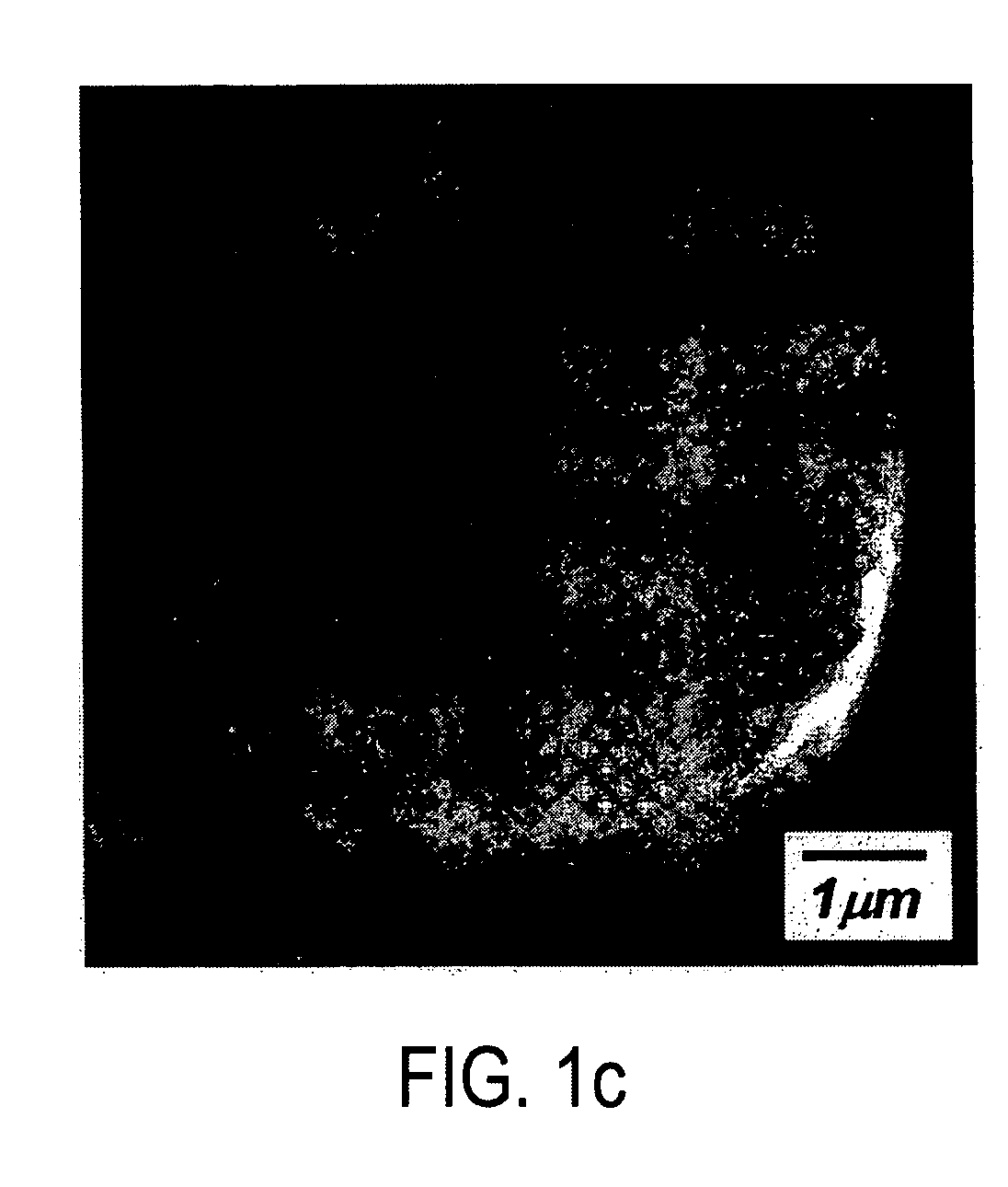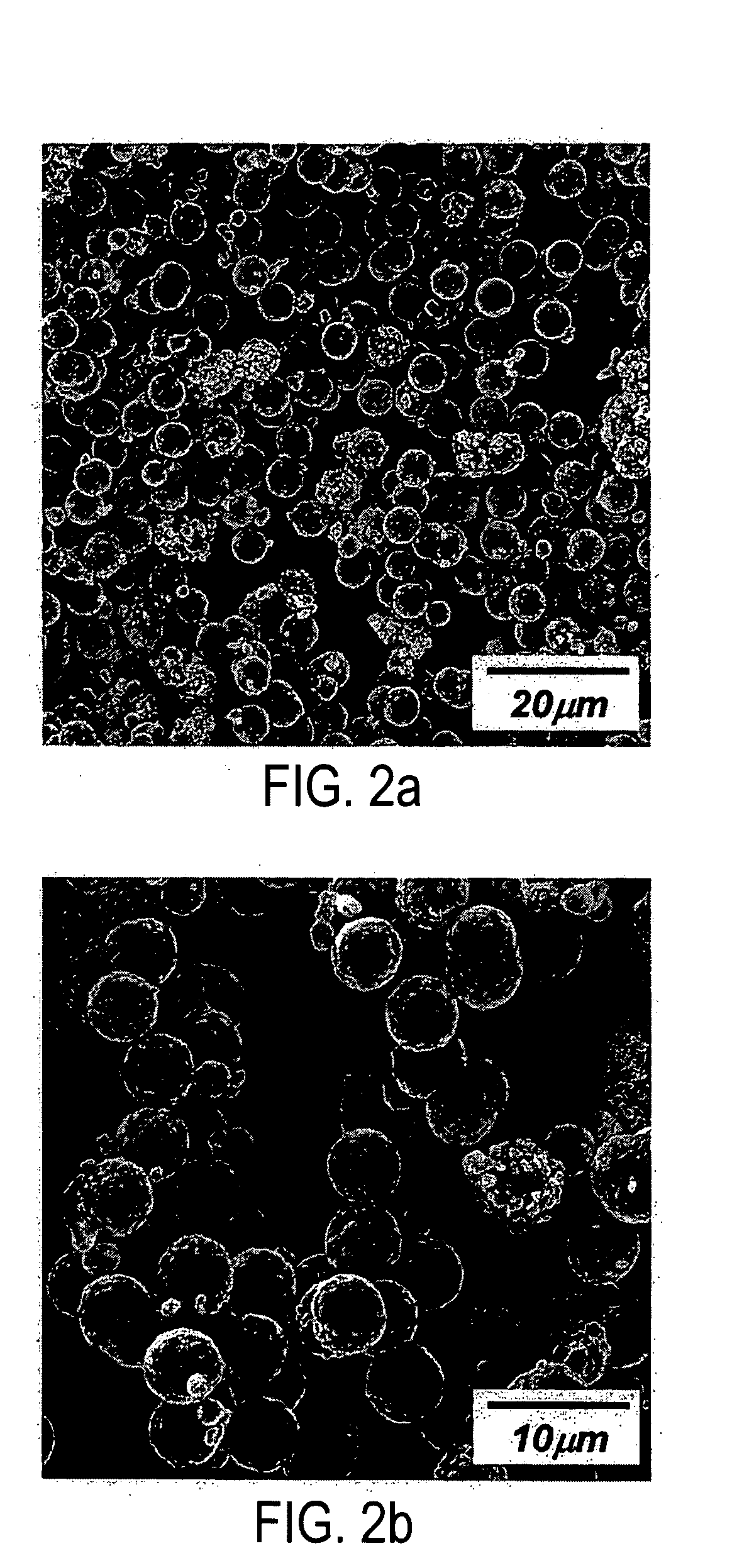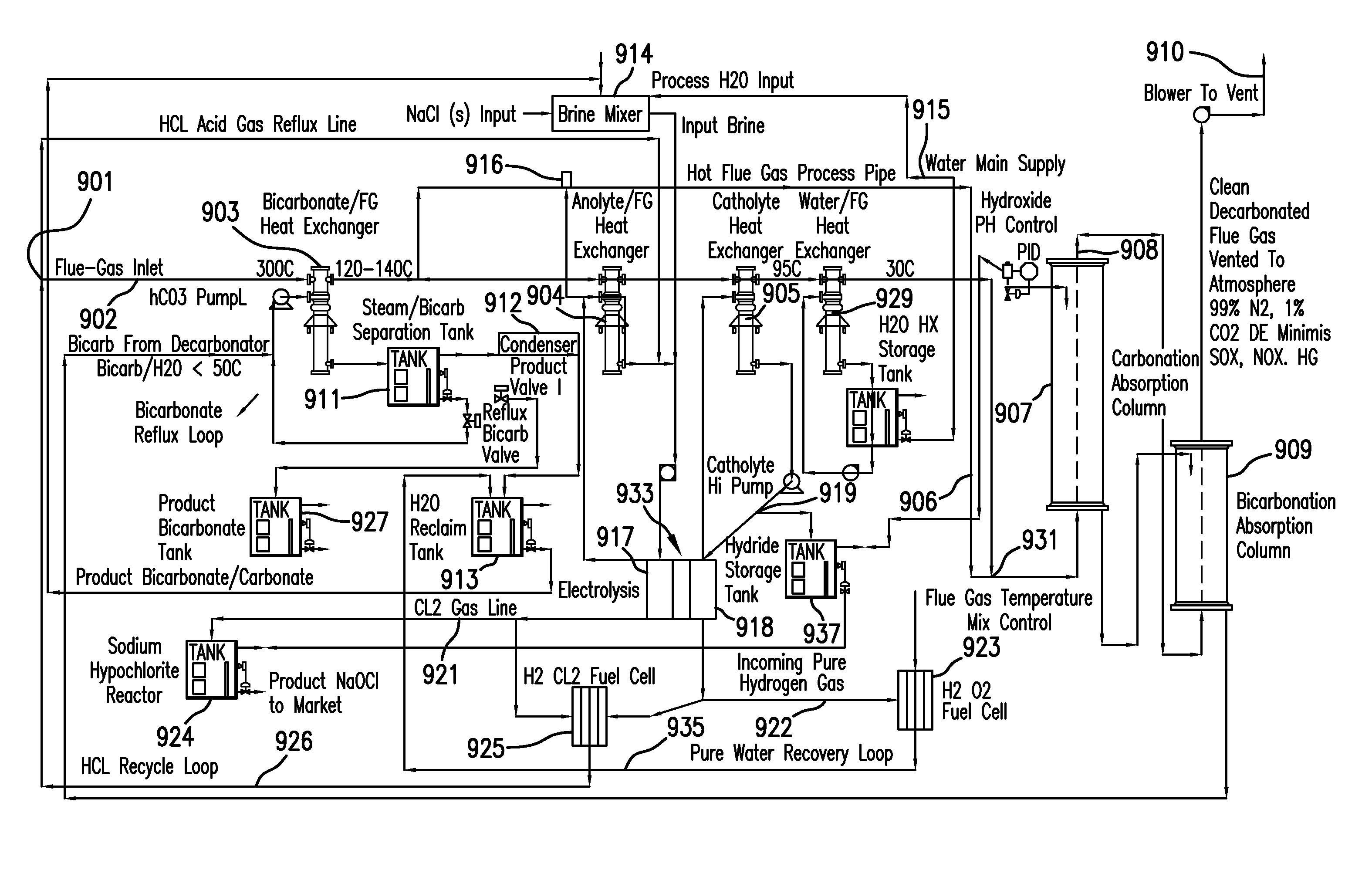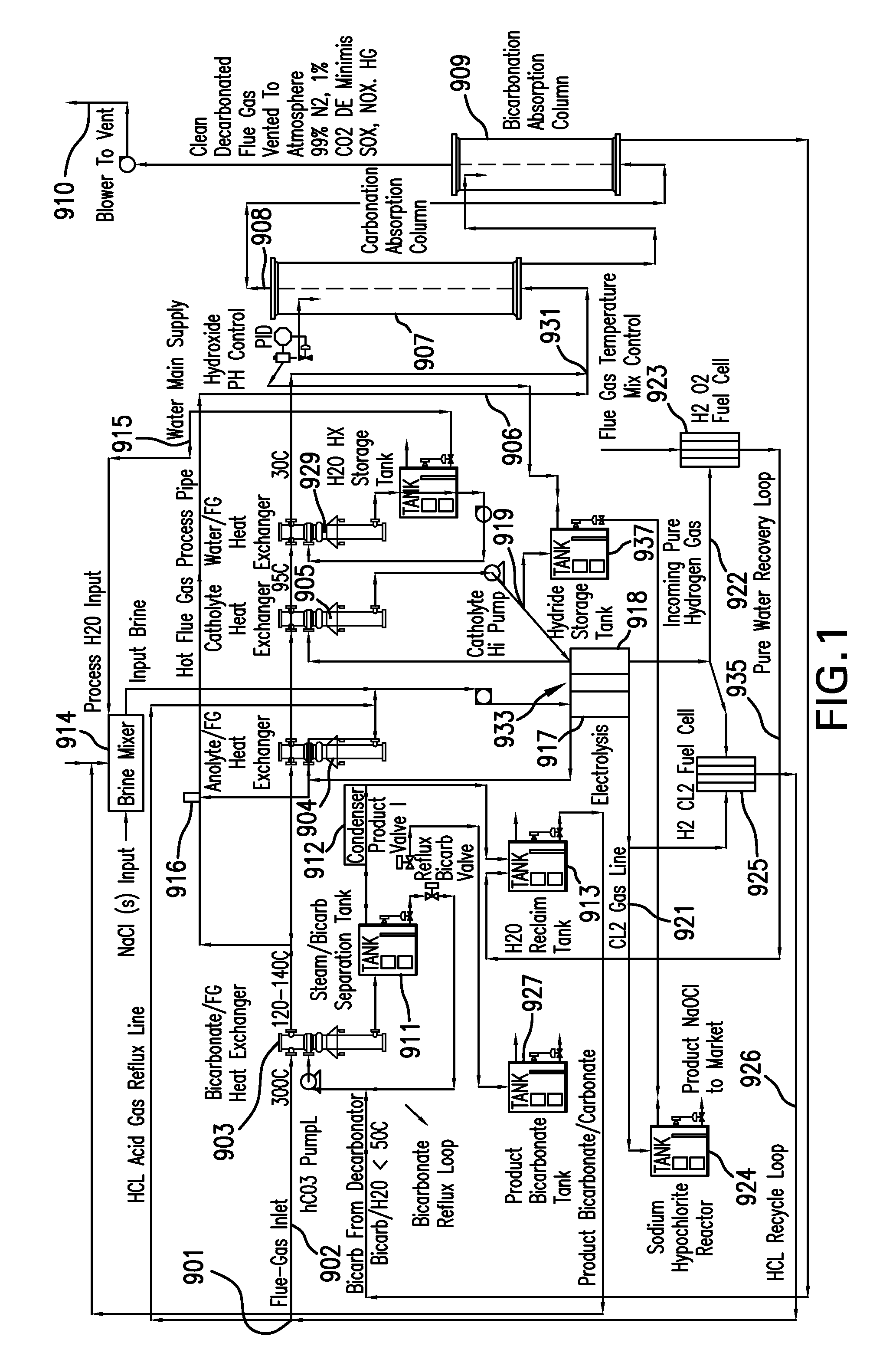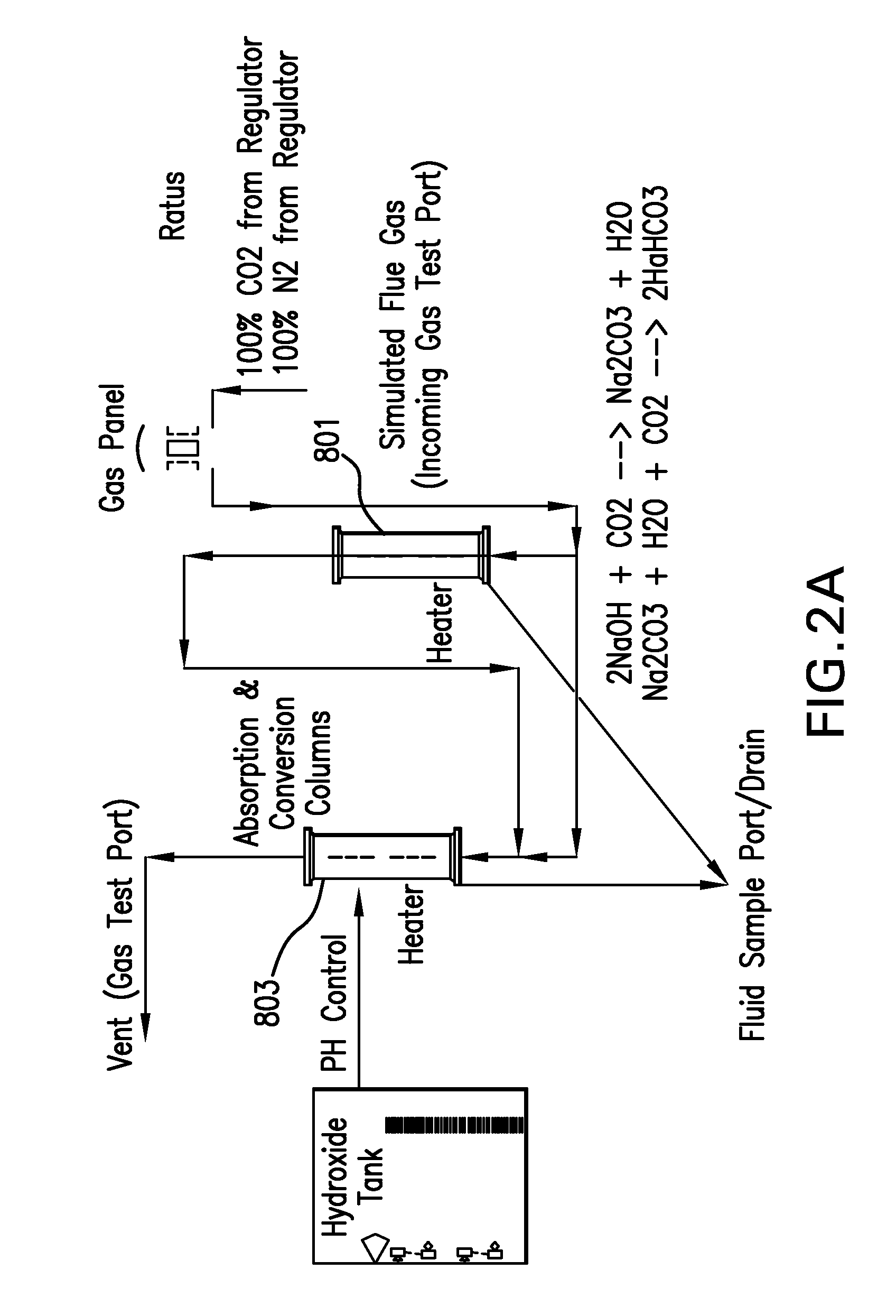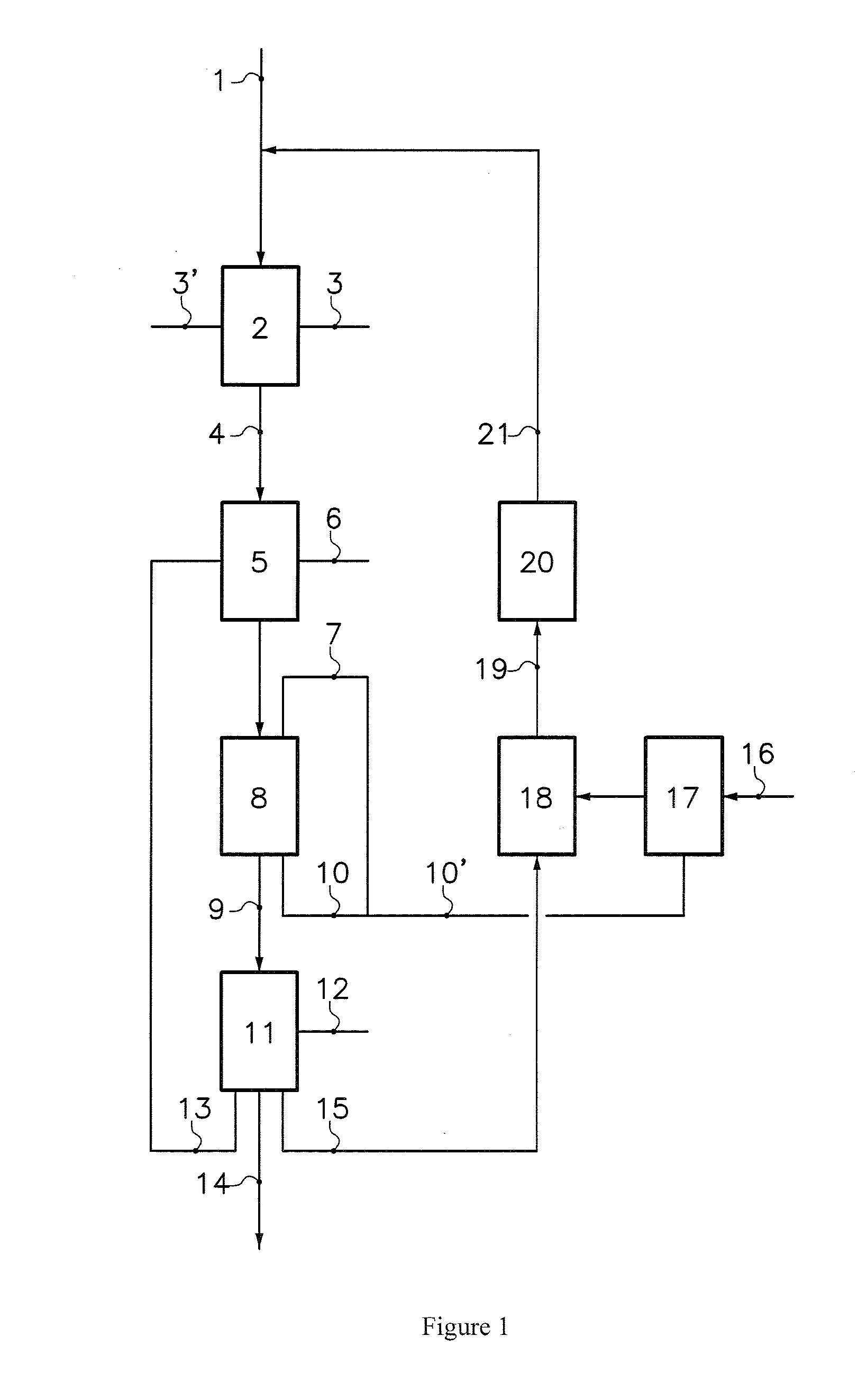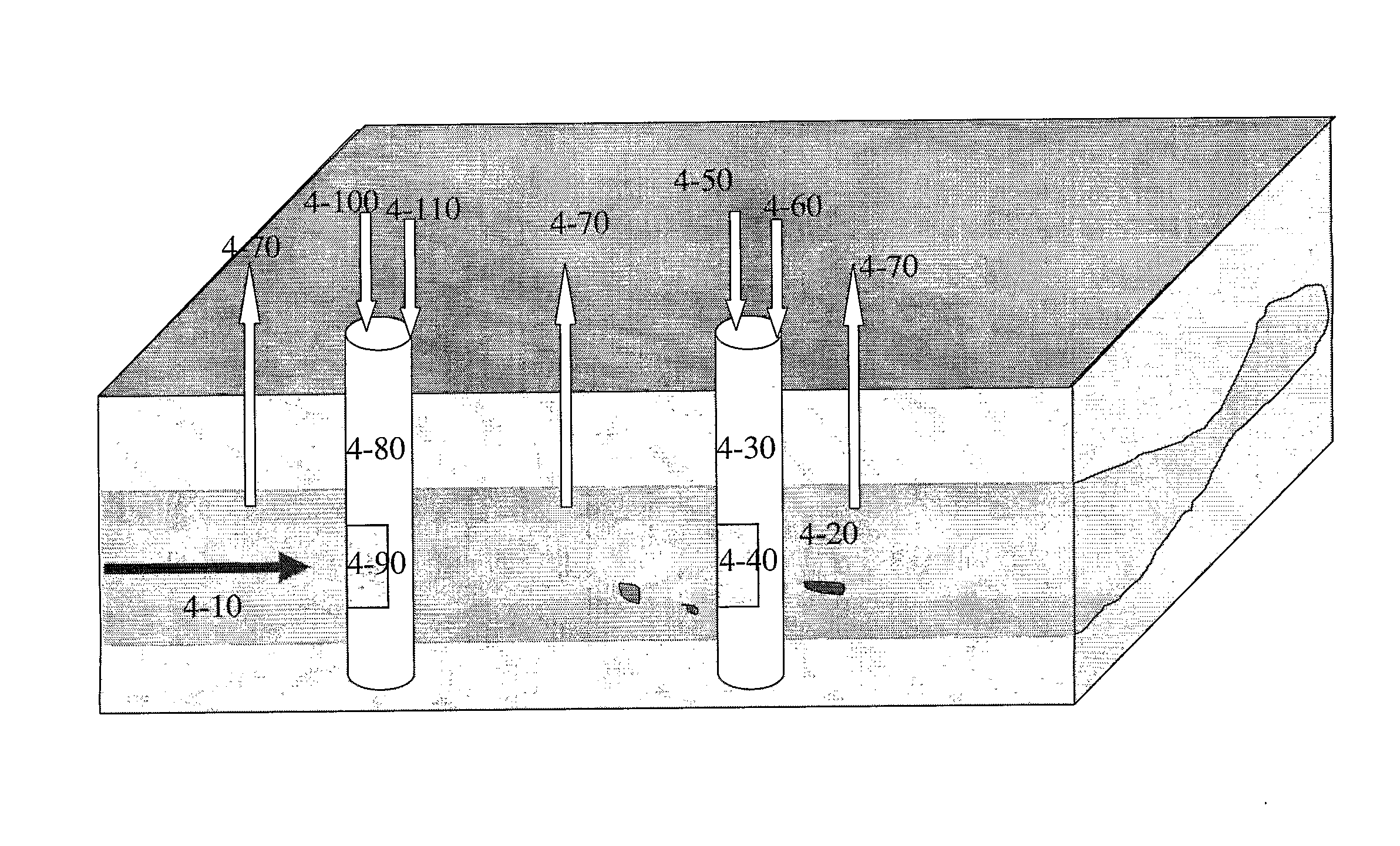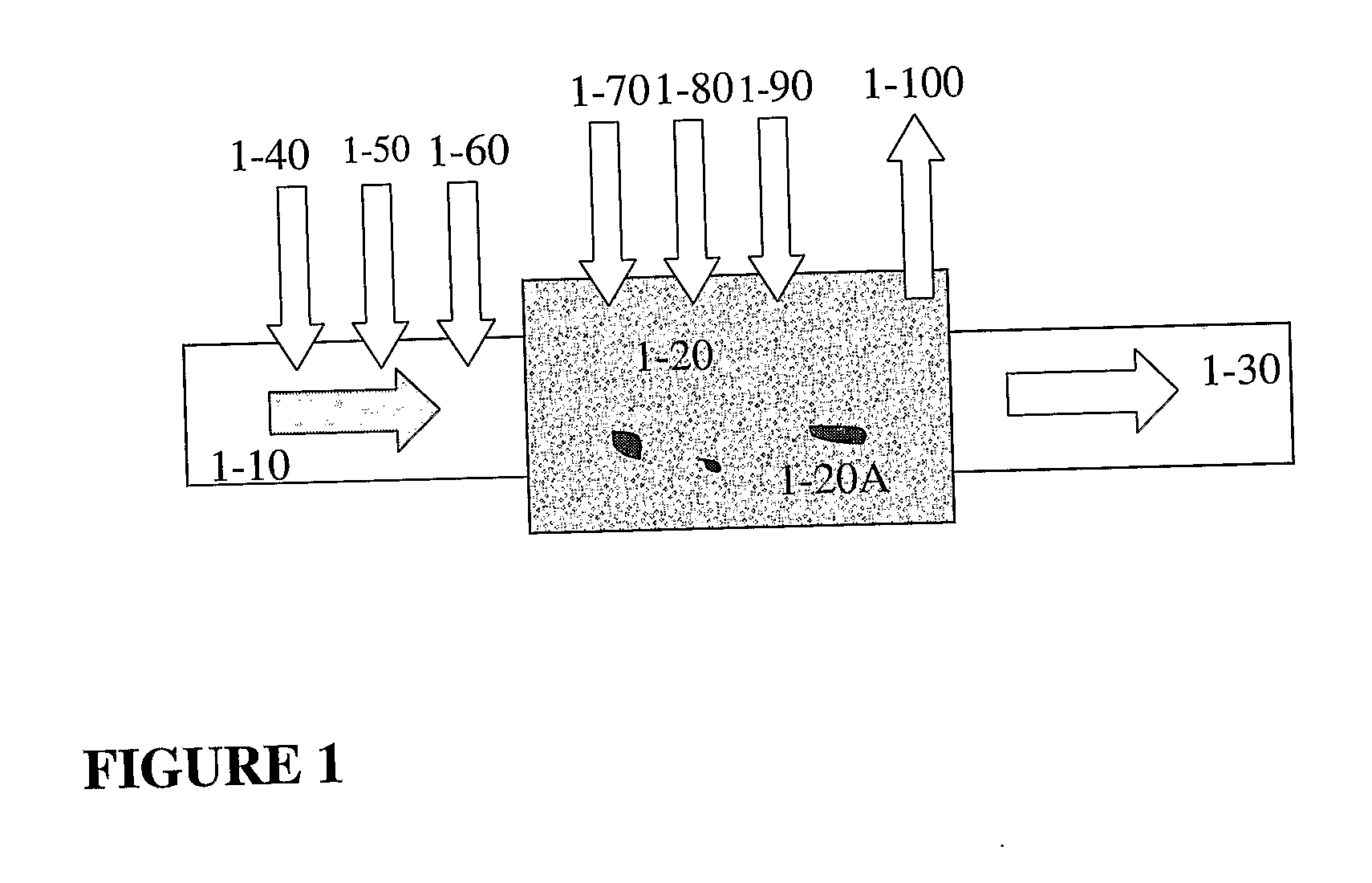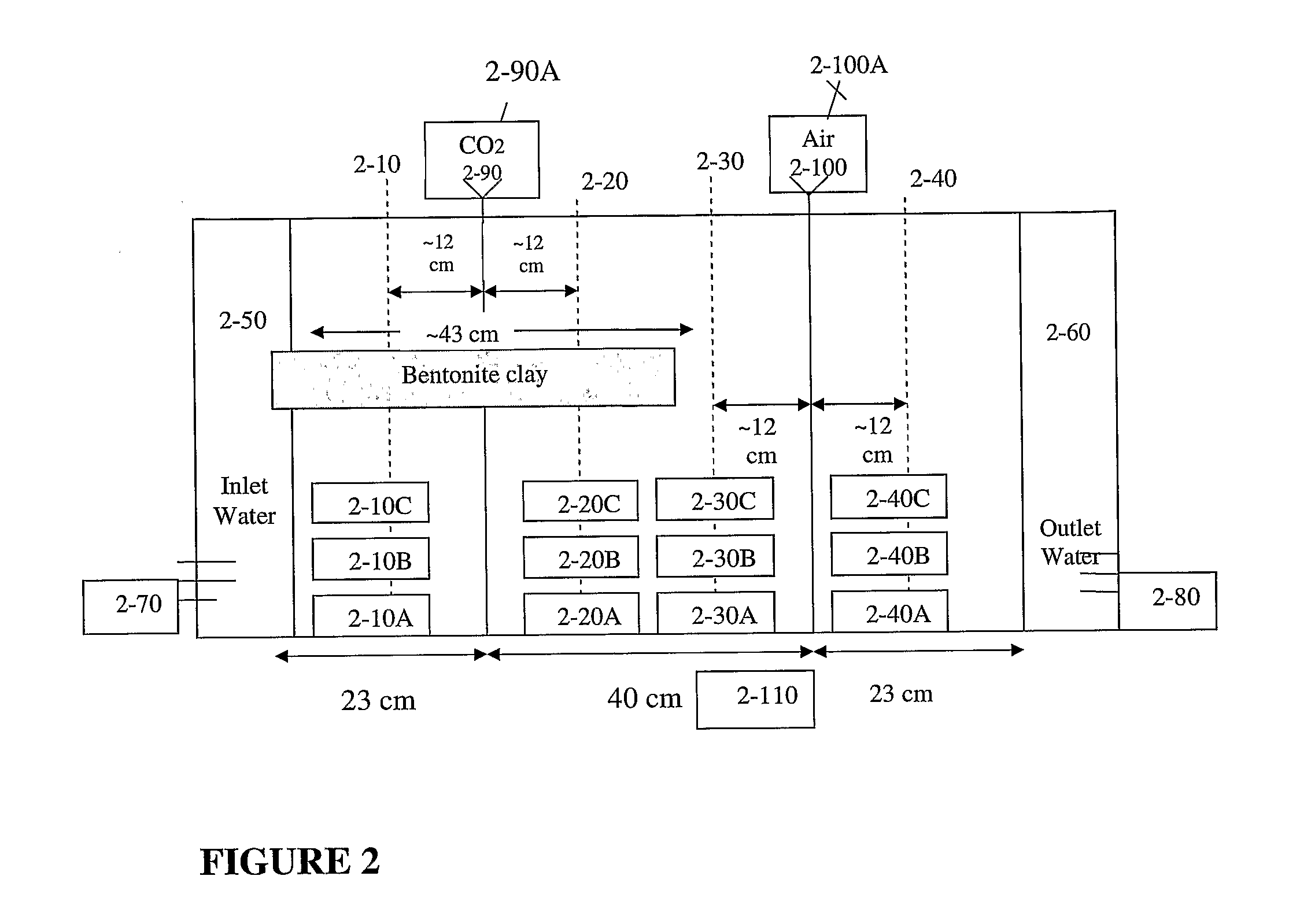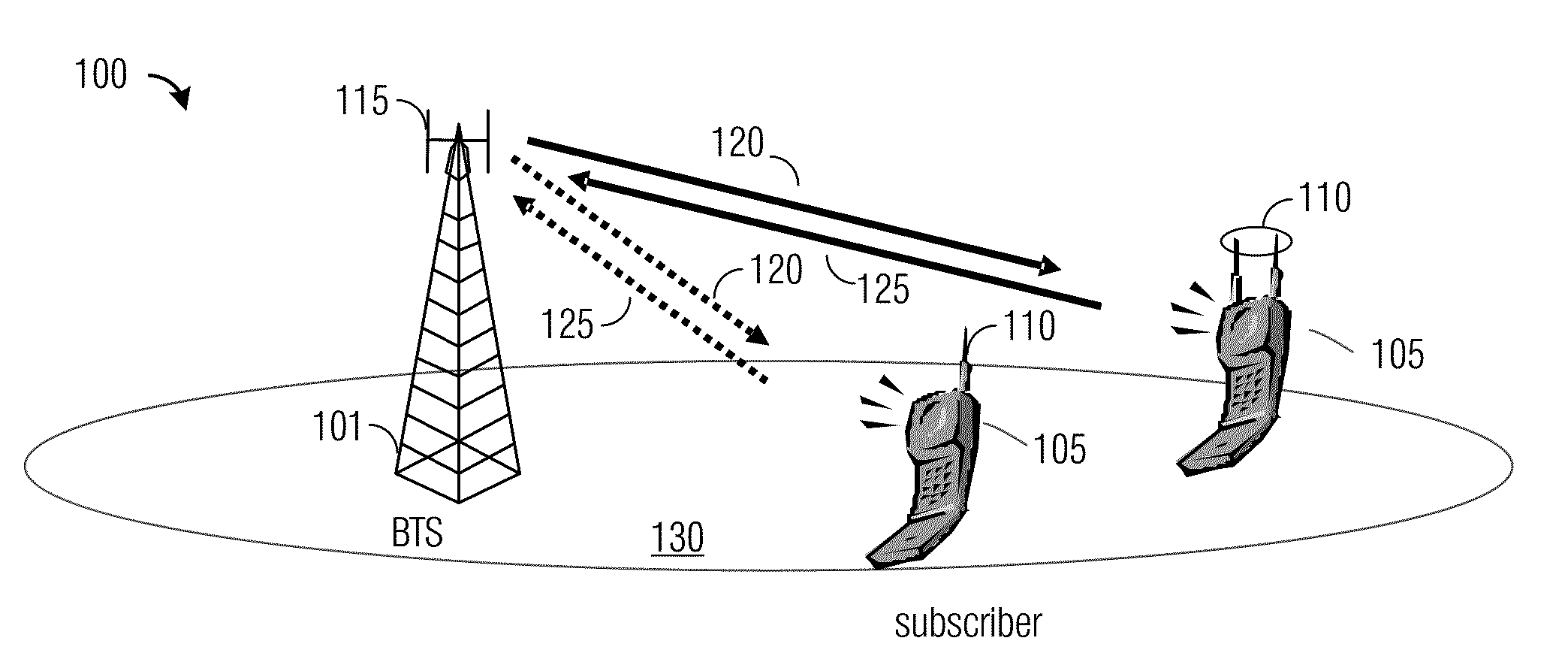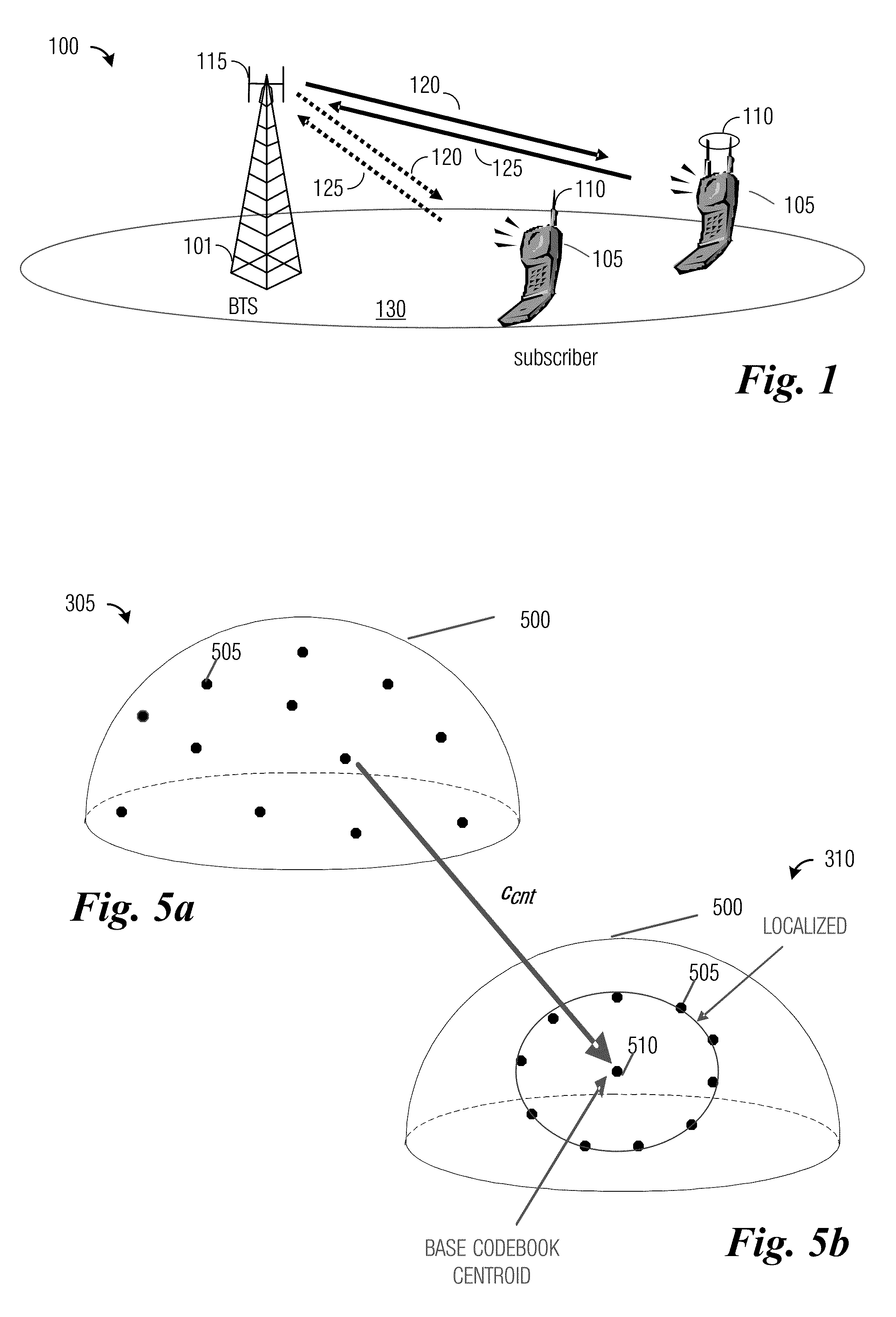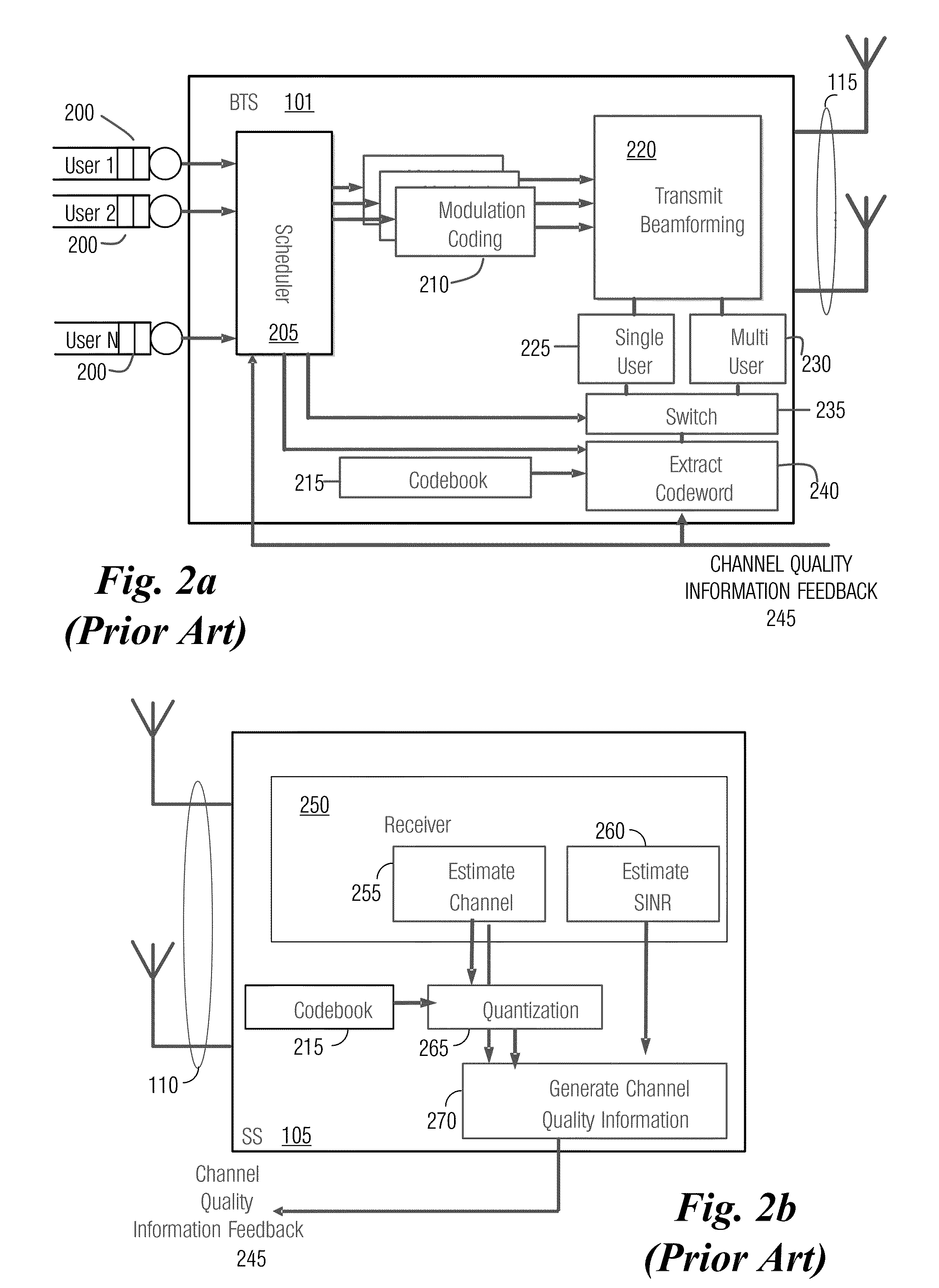Patents
Literature
Hiro is an intelligent assistant for R&D personnel, combined with Patent DNA, to facilitate innovative research.
416results about "Carbonate/bicarbonate preparation" patented technology
Efficacy Topic
Property
Owner
Technical Advancement
Application Domain
Technology Topic
Technology Field Word
Patent Country/Region
Patent Type
Patent Status
Application Year
Inventor
Cartridges useful in cleaning dialysis solutions
InactiveUS20020112609A1Avoid a lotSolve the blockageIsotope separationLoose filtering material filtersHemodialysis membraneChemistry
Owner:RENAL SOLUTIONS
Methods of sequestering co2
Methods of sequestering carbon dioxide (CO2) are provided. Aspects of the methods include precipitating a storage stable carbon dioxide sequestering product from an alkaline-earth-metal-containing water and then disposing of the product, e.g., by placing the product in a disposal location or using the product as a component of a manufactured composition. Also provided are systems for practicing methods of the invention.
Owner:ARELAC INC
Sodium zirconium carbonate and zirconium basic carbonate and methods of making the same
InactiveUS6627164B1Quality improvementImprove adsorption capacityHeavy metal active ingredientsOther chemical processesSufficient timeFiltration
A method of making sodium zirconium carbonate is described which involves forming a mixture of zirconium oxychloride with soda ash and then heating at a sufficient temperature and for a sufficient time to form the sodium zirconium carbonate. Subsequent washing and filtration steps can further form parts of this process. A novel sodium zirconium carbonate is further described which contains from about 2 wt % to about 5 wt % Na<+>; from about 44 wt % to about 50 wt % ZrO2; from about 12 wt % to about 18 wt % CO3<2->; and from about 32 wt % to about 35 wt % H2O.
Owner:RENAL SOLUTIONS
Hydraulic cements comprising carbonate compound compositions
Hydraulic cement compositions that include a carbonate compound composition, e.g., a salt-water derived carbonate compound composition containing crystalline and / or amorphous carbonate compounds, are provided. Also provided are methods of making and using the hydraulic cements, as well as settable compositions, such as concretes and mortars, prepared therefrom. The cements and compositions produced therefrom find use in a variety of applications, including use in a variety of building materials and building applications.
Owner:ARELAC INC
Sequestration of carbon dioxide
ActiveUS7132090B2Safe storageLarge specific surface areaCalcium/strontium/barium carbonatesProductsProduct gasMineral ions
A process for selectively removing carbon dioxide from a gaseous stream by converting the carbon dioxide to a solid, stable form is provided. In a sequestration process, carbon dioxide enriched air is passed through a gas diffusion membrane to transfer the carbon dioxide to a fluid medium. The carbon dioxide rich fluid is then passed through a matrix containing a catalyst specific for carbon dioxide, which accelerates the conversion of the carbon dioxide to carbonic acid. In the final step, a mineral ion is added to the reaction so that a precipitate of carbonate salt is formed. This solid mineral precipitate can be safely stored for extended periods of time, such as by burying the precipitate in the ground or depositing the precipitate into storage sites either on land or into a body of water. An apparatus for removing carbon dioxide from a gaseous stream is also provided.
Owner:GM GLOBAL TECH OPERATIONS LLC
High energy density redox flow device
ActiveUS20110200848A1Avoid accumulationHigh enough specific energyOrganic chemistryFlow propertiesElectrochemical responseHigh energy
Redox flow devices are described in which at least one of the positive electrode or negative electrode-active materials is a semi-solid or is a condensed ion-storing electroactive material, and in which at least one of the electrode-active materials is transported to and from an assembly at which the electrochemical reaction occurs, producing electrical energy. The electronic conductivity of the semi-solid is increased by the addition of conductive particles to suspensions and / or via the surface modification of the solid in semi-solids (e.g., by coating the solid with a more electron conductive coating material to increase the power of the device). High energy density and high power redox flow devices are disclosed. The redox flow devices described herein can also include one or more inventive design features. In addition, inventive chemistries for use in redox flow devices are also described.
Owner:MASSACHUSETTS INST OF TECH +2
Process for sequestering carbon dioxide and sulfur dioxide
A process for sequestering carbon dioxide, which includes reacting a silicate based material with an acid to form a suspension, and combining the suspension with carbon dioxide to create active carbonation of the silicate-based material, and thereafter producing a metal salt, silica and regenerating the acid in the liquid phase of the suspension.
Owner:PENN STATE RES FOUND
Rocks and aggregate, and methods of making and using the same
ActiveUS20100024686A1Calcium/strontium/barium carbonatesPigmenting treatmentCarbonateToxic industrial waste
Compositions comprising synthetic rock, e.g., aggregate, and methods of producing and using them are provided. The rock, e.g., aggregate, contains CO2 and / or other components of an industrial waste stream. The CO2 may be in the form of divalent cation carbonates, e.g., magnesium and calcium carbonates. Aspects of the invention include contacting a CO2 containing gaseous stream with a water to dissolve CO2, and placing the water under precipitation conditions sufficient to produce a carbonate containing precipitate product, e.g., a divalent cation carbonate.
Owner:ARELAC INC
Removing carbon dioxide from waste streams through co-generation of carbonate and/or bicarbonate minerals
ActiveUS20060185985A1Improve ecologic efficiency of processEcologic efficiencyCalcium/strontium/barium carbonatesElectrolysis componentsElectrolysisWaste stream
Apparatuses and methods for removing carbon dioxide and other pollutants from a gas stream are provided. The methods include obtaining hydroxide in an aqueous mixture, and mixing the hydroxide with the gas stream to produce carbonate and / or bicarbonate. Some of the apparatuses of the present invention comprise an electrolysis chamber for providing hydroxide and mixing equipment for mixing the hydroxide with a gas stream including carbon dioxide to form an admixture including carbonate and / or bicarbonate.
Owner:CARBONFREE CHEM HLDG LLC
Catalysts, activating agents, support media, and related methodologies useful for making catalyst systems especially when the catalyst is deposited onto the support media using physical vapor deposition
InactiveUS20050095189A1Improve performanceEasy to useMaterial nanotechnologyInternal combustion piston enginesGas phaseAdditive ingredient
Use of physical vapor deposition methodologies to deposit nanoscale gold on activating support media makes the use of catalytically active gold dramatically easier and opens the door to significant improvements associated with developing, making, and using gold-based, catalytic systems. The present invention, therefore, relates to novel features, ingredients, and formulations of gold-based, heterogeneous catalyst systems generally comprising nanoscale gold deposited onto a nanoporous support.
Owner:3M INNOVATIVE PROPERTIES CO
Systems and methods for carbon capture and sequestration and compositions derived therefrom
ActiveUS20090143211A1Promote formationCalcium/strontium/barium carbonatesNitrogen compoundsInterior spaceProduct formation
A method of sequestering a greenhouse gas is described, which comprises: (i) providing a solution carrying a first reagent that is capable of reacting with a greenhouse gas; (ii) contacting the solution with a greenhouse gas under conditions that promote a reaction between the at least first reagent and the greenhouse gas to produce at least a first reactant; (iii) providing a porous matrix having interstitial spaces and comprising at least a second reactant; (iv) allowing a solution carrying the at least first reactant to infiltrate at least a substantial portion of the interstitial spaces of the porous matrix under conditions that promote a reaction between the at least first reactant and the at least second reactant to provide at least a first product; and (v) allowing the at least first product to form and fill at least a portion of the interior spaces of the porous matrix, thereby sequestering a greenhouse gas.
Owner:RUTGERS THE STATE UNIV
Capture and Sequestration of Carbon Dioxide in Flue Gases
ActiveUS20090202410A1Calcium/strontium/barium carbonatesPigmenting treatmentAlkaline earth metalOxidation state
There is provided a process for the capture and sequestration of carbon dioxide that would otherwise enter the atmosphere and contribute to global warming and other problems. CO2 capture is accomplished by reacting carbon dioxide in flue gas with an alkali metal carbonate, or a metal oxide, particularly containing an alkaline earth metal or iron, to form a carbonate salt. A preferred carbonate for CO2 capture is a dilute aqueous solution of additive-free (Na2CO3). Other carbonates include (K2CO3) or other metal ion that can produce both a carbonate and a bicarbonate salt. Examples of suitable metal oxides include several alkaline earths including CaO and MgO. The captured CO2 is preferably sequestered using any available mineral or industrial waste that contains calcium magnesium or iron in non-carbonate forms, or iron in the Fe+2 oxidation state.
Owner:MICHIGAN TECHNOLOGICAL UNIVERSITY
Catalysts, activating agents, support media, and related methodologies useful for making catalyst systems especially when the catalyst is deposited onto the support media using physical vapor deposition
InactiveUS7727931B2High catalytic activityTendency increaseMaterial nanotechnologyInternal combustion piston enginesGas phasePhysical chemistry
Use of physical vapor deposition methodologies to deposit nanoscale gold on activating support media makes the use of catalytically active gold dramatically easier and opens the door to significant improvements associated with developing, making, and using gold-based, catalytic systems. The present invention, therefore, relates to novel features, ingredients, and formulations of gold-based, heterogeneous catalyst systems generally comprising nanoscale gold deposited onto a nanoporous support.
Owner:3M INNOVATIVE PROPERTIES CO
Methods of sequestering co2
Methods of sequestering carbon dioxide (CO2) are provided. Aspects of the methods include precipitating a storage stable carbon dioxide sequestering product from an alkaline-earth-metal-containing water and then disposing of the product, e.g., by placing the product in a disposal location or using the product as a component of a manufactured composition. Also provided are systems for practicing methods of the invention.
Owner:CALERA CORP
Integrated oxygen generation and carbon dioxide absorption method apparatus and systems
InactiveUS20050031522A1Improvement in mission durationLower acquisition costsFuel cell auxillariesMachines/enginesChemical speciesCo2 absorption
A method for producing oxygen and absorbing carbon dioxide in a single operation using a solution that contains an oxygen source and a redox partner that can react to form oxygen and a chemical species that can form an insoluble carbonate to precipitate and chemically store carbon dioxide. Carbon dioxide is introduced into the solution and the carbonate precipitates as the oxygen is generated. In particular, the invention uses an aqueous solution of permanganate and hydrogen peroxide that react in the presence of a catalyst to produce oxygen and manganese (II) ions. Carbon dioxide gas introduced into the solution reacts with the manganese (II) ions to precipitate manganese carbonate. Other cations capable of reacting with carbon dioxide to form an insoluble carbonate, for example calcium, barium and magnesium, may also be added to the solution to precipitate carbonate salts. Calcium permanganate may used as a source of both calcium and permanganate.
Owner:CAPITAL MANAGEMENT +1
Methods of sequestering co2
Methods of sequestering carbon dioxide (CO2) are provided. Aspects of the methods include precipitating a storage stable carbon dioxide sequestering product from an alkaline-earth-metal-containing water and then disposing of the product, e.g., by placing the product in a disposal location or using the product as a component of a manufactured composition. Also provided are systems for practicing methods of the invention.
Owner:CALERA CORP
Method and apparatus for preparation of spherical metal carbonates and lithium metal oxides for lithium rechargeable batteries
ActiveUS7435402B2Improve impedance characteristicsImproved stability of the layered oxide structureConductive materialOxide conductorsDopantLithium metal
A number of materials with the composition Li1+xNiαMnβCoγM′δO2−zFz (M′=Mg,Zn,Al,Ga,B,Zr,Ti) for use with rechargeable batteries, wherein x is between about 0 and 0.3, α is between about 0.2 and 0.6, β is between about 0.2 and 0.6, γ is between about 0 and 0.3, δ is between about 0 and 0.15, and z is between about 0 and 0.2. Adding the above metal and fluorine dopants affects capacity, impedance, and stability of the layered oxide structure during electrochemical cycling. Another aspect of the invention includes materials with the composition Li1+xNiαCoβMnγM′δOyFz (M′=Mg,Zn,Al,Ga,B,Zr,Ti), where the x is between 0 and 0.2, the α between 0 and 1, the β between 0 and 1, the γ between 0 and 2, the δ between about 0 and about 0.2, the y is between 2 and 4, and the z is between 0 and 0.5.
Owner:UCHICAGO ARGONNE LLC
Electrochemical methods of sequestering co2
InactiveUS20100135865A1Calcium/strontium/barium carbonatesCombination devicesAlkaline earth metalElectrochemical cell
Methods of sequestering carbon dioxide (CO2) are provided. Aspects of the methods include precipitating a storage stable carbon dioxide sequestering product from an alkaline-earth-metal-containing water and then disposing of the product, e.g., by placing the product in a disposal location or using the product as a component of a manufactured composition. Also provided are systems for practicing methods of the invention.
Owner:CALERA CORP
Rocks and Aggregate, and Methods of Making and Using the Same
InactiveUS20100144521A1Calcium/strontium/barium carbonatesGas treatmentCarbonateToxic industrial waste
Compositions comprising synthetic rock, e.g., aggregate, and methods of producing and using them are provided. The rock, e.g., aggregate, contains CO2 and / or other components of an industrial waste stream. The CO2 may be in the form of divalent cation carbonates, e.g., magnesium and calcium carbonates. Aspects of the invention include contacting a CO2 containing gaseous stream with a water to dissolve CO2, and placing the water under precipitation conditions sufficient to produce a carbonate containing precipitate product, e.g., a divalent cation carbonate.
Owner:CALERA CORP
Non-cementitious compositions comprising co2 sequestering additives
Non-cementitious CO2 sequestering compositions are provided. The compositions of the invention include a CO2 sequestering additive, e.g., a CO2 sequestering carbonate composition. Additional aspects of the invention include methods of making and using the non-cementitious CO2 sequestering compositions.
Owner:CALERA CORP
Carbonation of metal silicates for long-term co2 sequestration
In a preferred embodiment, the invention relates to a process of sequestering carbon dioxide. The process comprises the steps of: (a) reacting a metal silicate with a caustic alkali-metal hydroxide to produce a hydroxide of the metal formerly contained in the silicate; (b) reacting carbon dioxide with at least one of a caustic alkali-metal hydroxide and an alkali-metal silicate to produce at least one of an alkali-metal carbonate and an alkali-metal bicarbonate; and (c) reacting the metal hydroxide product of step (a) with at least one of the alkali-metal carbonate and the alkali-metal bicarbonate produced in step (b) to produce a carbonate of the metal formerly contained in the metal silicate of step (a).
Owner:UT BATTELLE LLC +2
Non-cementitious compositions comprising co2 sequestering additives
Non-cementitious CO2 sequestering compositions are provided. The compositions of the invention include a CO2 sequestering additive, e.g., a CO2 sequestering carbonate composition. Additional aspects of the invention include methods of making and using the non-cementitious CO2 sequestering compositions.
Owner:ARELAC INC
Hydraulic Cements Comprising Carbonate Compound Compositions
ActiveUS20100132591A1Energy based wastewater treatmentCarbonate/bicarbonate preparationSalt waterCarbonate
Hydraulic cement compositions that include a carbonate compound composition, e.g., a salt-water derived carbonate compound composition containing crystalline and / or amorphous carbonate compounds, are provided. Also provided are methods of making and using the hydraulic cements, as well as settable compositions, such as concretes and mortars, prepared therefrom. The cements and compositions produced therefrom find use in a variety of applications, including use in a variety of building materials and building applications.
Owner:ARELAC INC
Process for Producing Caco3 or Mgco3
InactiveUS20070202032A1Reduce the temperatureLow pressureCalcium/strontium/barium compoundsMagnesium carbonatesAqueous solutionMixed metal
The present invention relates to a process for producing CaCO3 or MgCO3 from a feedstock comprising a Ca- or Mg-comprising mixed metal oxide, wherein: (a) an aqueous slurry of the feedstock is contacted with a C02 containing gas to form an aqueous solution of Ca(HCO3)2 or Mg(HCO3)2 and a solid Ca- or Mg-depleted feedstock; (b) part or all of the aqueous solution of Ca(HCO3)2 or Mg(HCO3)2 is separated from the solid Ca- or Mg-depleted feedstock; (c) CaCO3 or MgCO3 is precipitated from the separated aqueous solution of Ca(HCO3)2 or Mg(HCO3)2; and (d) the precipitated CaCO3 or MgCO3 is recovered as product. The invention further relates to a process for the production of an aqueous solution of Ca(HCO3)2 or Mg(HCO3)2.
Owner:SHELL OIL CO
Cathode material for lithium secondary battery and method of producing same
InactiveUS20060121350A1Stable supplyImprove sinterabilityOxygen/ozone/oxide/hydroxideElectrode manufacturing processesElectrical batteryPhysical chemistry
Stable supply of a cathode material for a lithium secondary battery that exels in sinterbility and composition stability and can exhibit satisfactory battery performance is accomplished by reducing to 100 ppm or less both the contents of Na and S being impurity elements in multiple oxides as materials for a cathode material for a lithium secondary battery and carbonic salts as precursor materials for the production of a cathode material for a lithium secondary battery.
Owner:NIKKO MATERIALS CO LTD
Method and apparatus for preparation of spherical metal carbonates and lithium metal oxides for lithium rechargeable batteries
ActiveUS20050058588A1Improve impedance characteristicsImprove stabilityConductive materialOxide conductorsDopantLithium metal
A number of materials with the composition Li1+xNiαMnβCoγM′δO2−zFz (M′=Mg,Zn,Al,Ga,B,Zr,Ti) for use with rechargeable batteries, wherein x is between about 0 and 0.3, α is between about 0.2 and 0.6, β is between about 0.2 and 0.6, γ is between about 0 and 0.3, δ is between about 0 and 0.15, and z is between about 0 and 0.2. Adding the above metal and fluorine dopants affects capacity, impedance, and stability of the layered oxide structure during electrochemical cycling. Another aspect of the invention includes materials with the composition Li1+xNiαCoβMnγM′δOyFz (M′=Mg,Zn,Al,Ga,B,Zr,Ti), where the x is between 0 and 0.2, the α between 0 and 1, the β between 0 and 1, the γ between 0 and 2, the δ between about 0 and about 0.2, the y is between 2 and 4, and the z is between 0 and 0.5.
Owner:UCHICAGO ARGONNE LLC
Removing carbon dioxide from waste streams through co-generation of carbonate and/or bicarbonate minerals
ActiveUS7727374B2Calcium/strontium/barium carbonatesPhotography auxillary processesElectrolysisWaste stream
Apparatuses and methods for removing carbon dioxide and other pollutants from a gas stream are provided. The methods include obtaining hydroxide in an aqueous mixture, and mixing the hydroxide with the gas stream to produce carbonate and / or bicarbonate. Some of the apparatuses of the present invention comprise an electrolysis chamber for providing hydroxide and mixing equipment for mixing the hydroxide with a gas stream including carbon dioxide to form an admixture including carbonate and / or bicarbonate.
Owner:CARBONFREE CHEM HLDG LLC
Process for producing sodium bicarbonate for flue gas desulphurization
InactiveUS20100290967A1Electrolysis componentsVolume/mass flow measurementSodium bicarbonateFlue gas
Process for producing sodium bicarbonate for purifying flue gases, according to which an aqueous solution containing sodium sulfate is subjected to electrodialysis to produce a sodium hydroxide solution and a sodium bisulfate solution, the sodium hydroxide solution being carbonated in order to obtain sodium bicarbonate.
Owner:SOLVAY SA
Methods and apparatuses for decreasing the co2 concentration of a fluid
InactiveUS20100258506A1Reduce concentrationSedimentation separationChemical/physical/physico-chemical processesCarbon dioxideChemistry
Owner:YEDA RES & DEV CO LTD
System and Method for Wireless Communications
ActiveUS20100054212A1Avoid transmit power imbalanceReduce computational complexityMultiplex communicationSecret communicationComputer hardwareCommunication device
A system and method for wireless communications is provided. A method for operating in a communications network includes receiving a codebook, the codebook includes a plurality of codewords, and determining if the codebook satisfies a constant modulus property. The method also includes in response to determining that the codebook does not satisfy the constant modulus property, converting the codebook into a codebook satisfying the constant modulus property, and storing the codebook satisfying the constant modulus property. The method further includes storing the codebook in response to determining that the codebook does satisfy the constant modulus property, and causing to transmit a transmission to a communications device, wherein the transmission is encoded using a codeword in the stored codebook.
Owner:FUTUREWEI TECH INC
Features
- R&D
- Intellectual Property
- Life Sciences
- Materials
- Tech Scout
Why Patsnap Eureka
- Unparalleled Data Quality
- Higher Quality Content
- 60% Fewer Hallucinations
Social media
Patsnap Eureka Blog
Learn More Browse by: Latest US Patents, China's latest patents, Technical Efficacy Thesaurus, Application Domain, Technology Topic, Popular Technical Reports.
© 2025 PatSnap. All rights reserved.Legal|Privacy policy|Modern Slavery Act Transparency Statement|Sitemap|About US| Contact US: help@patsnap.com


